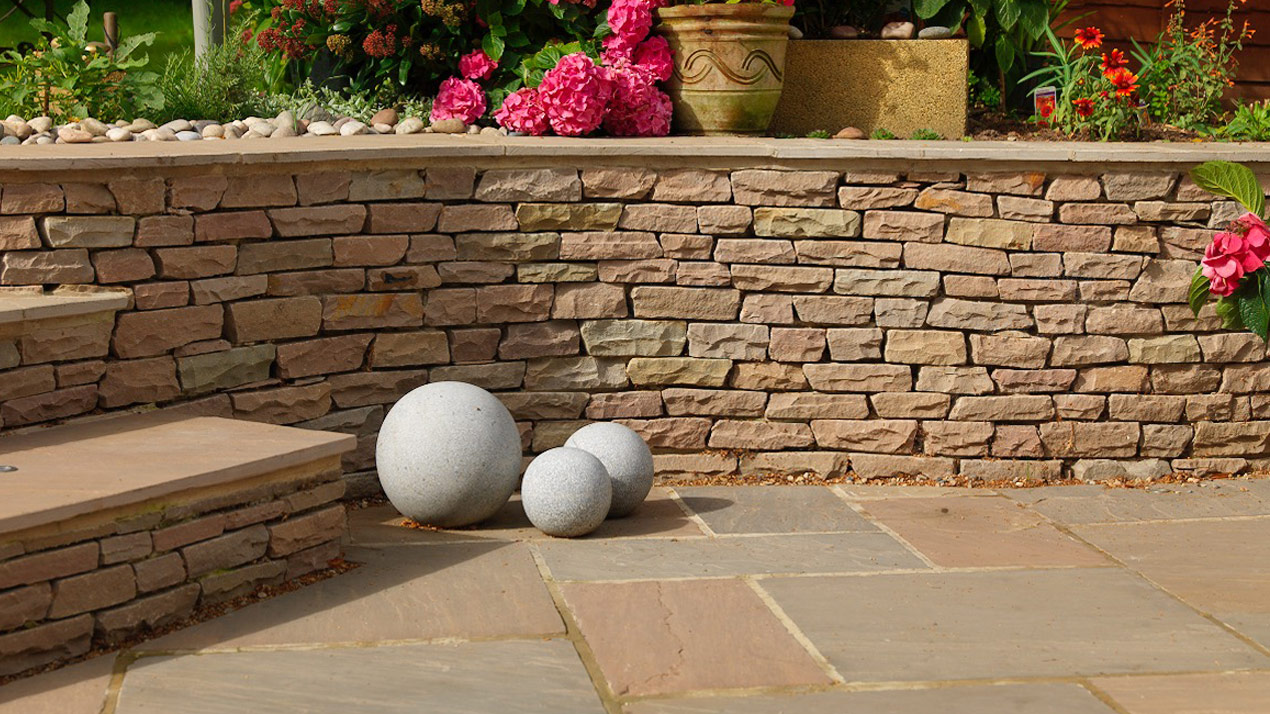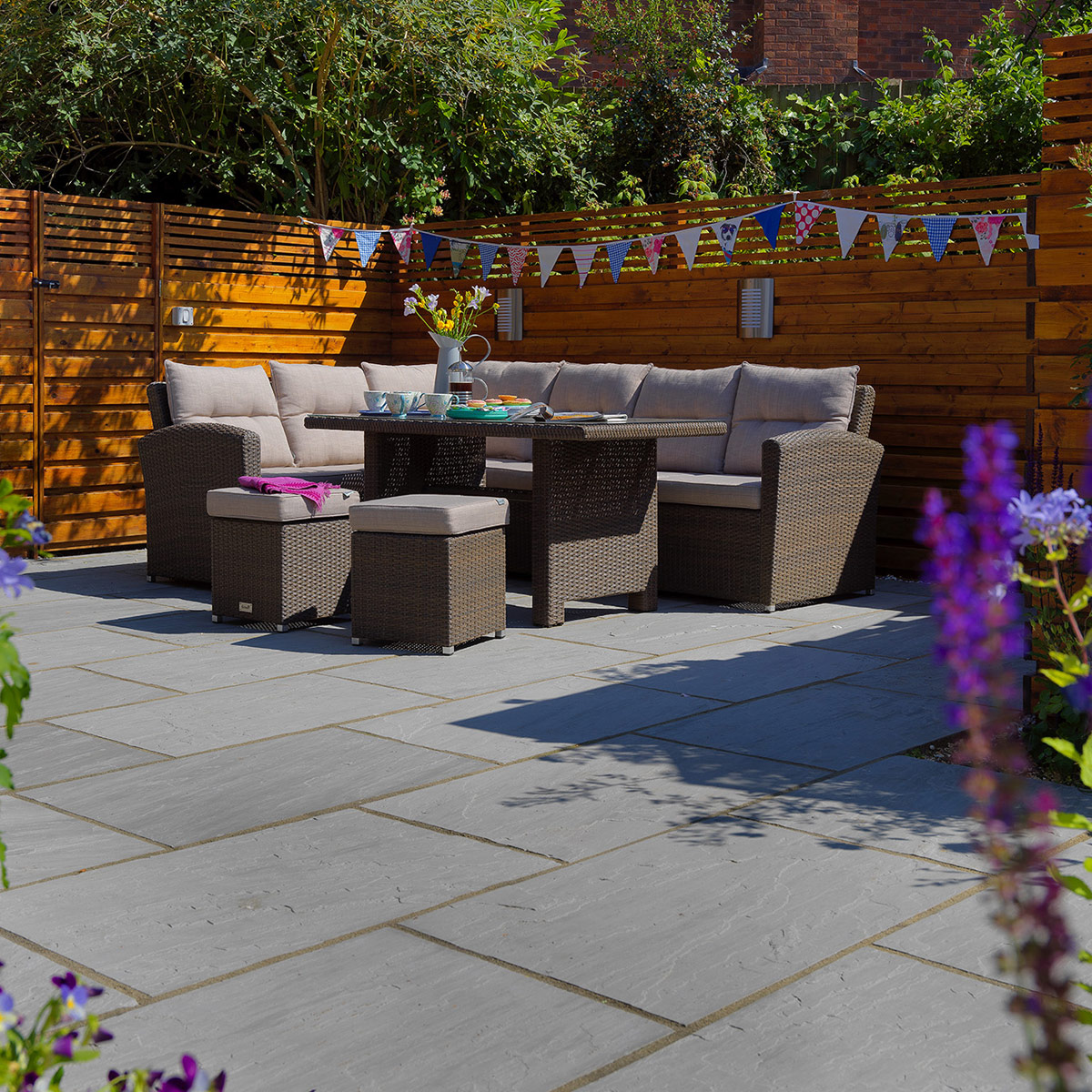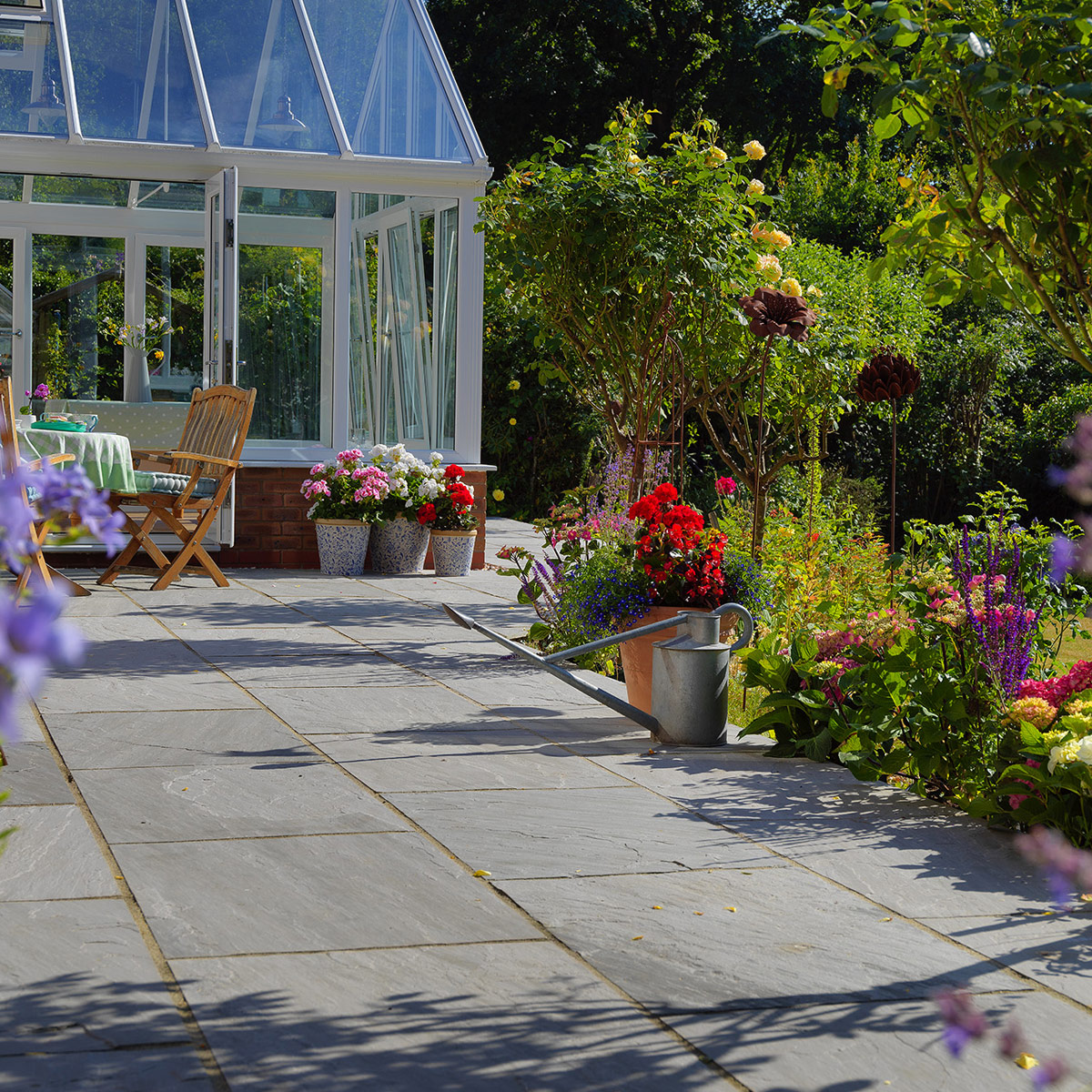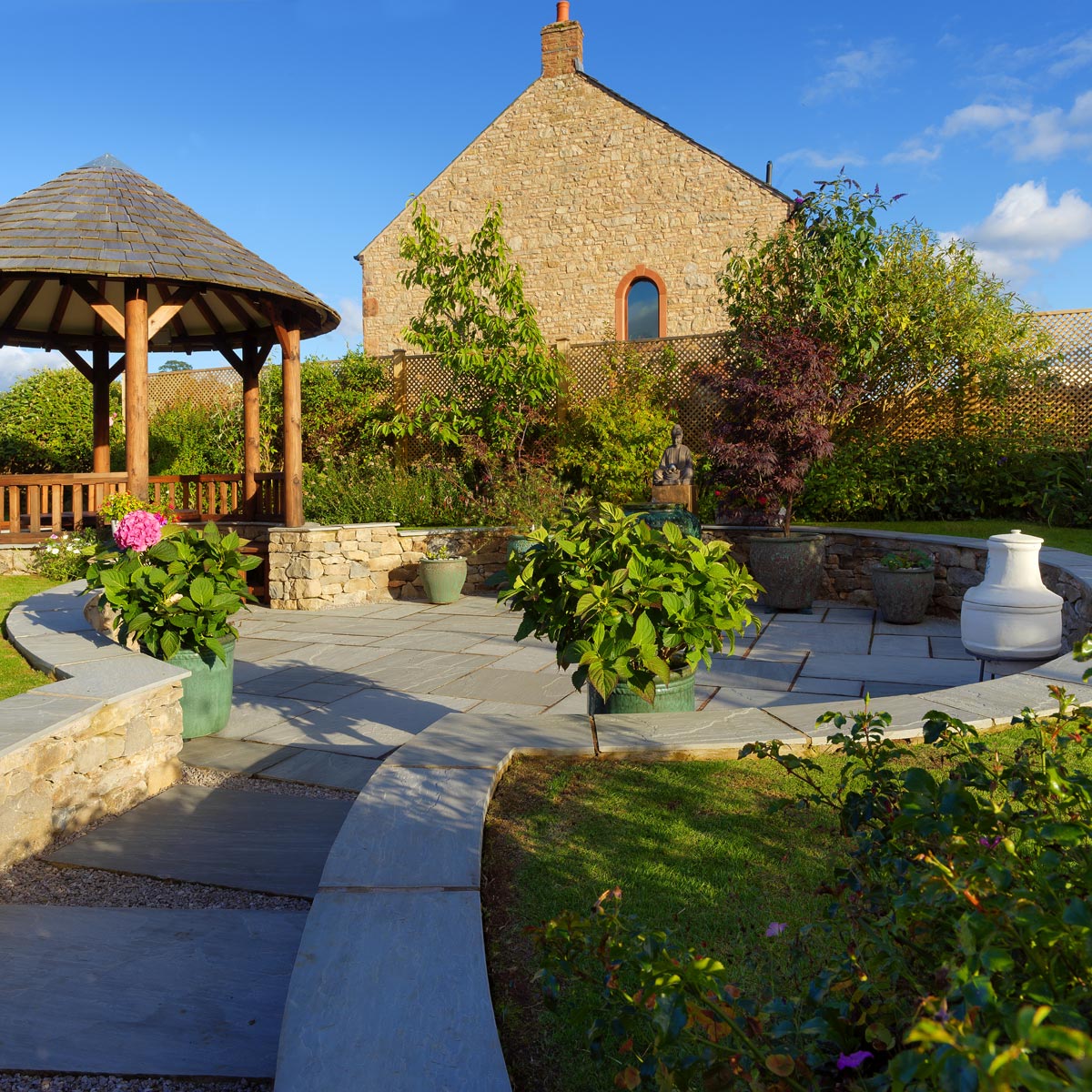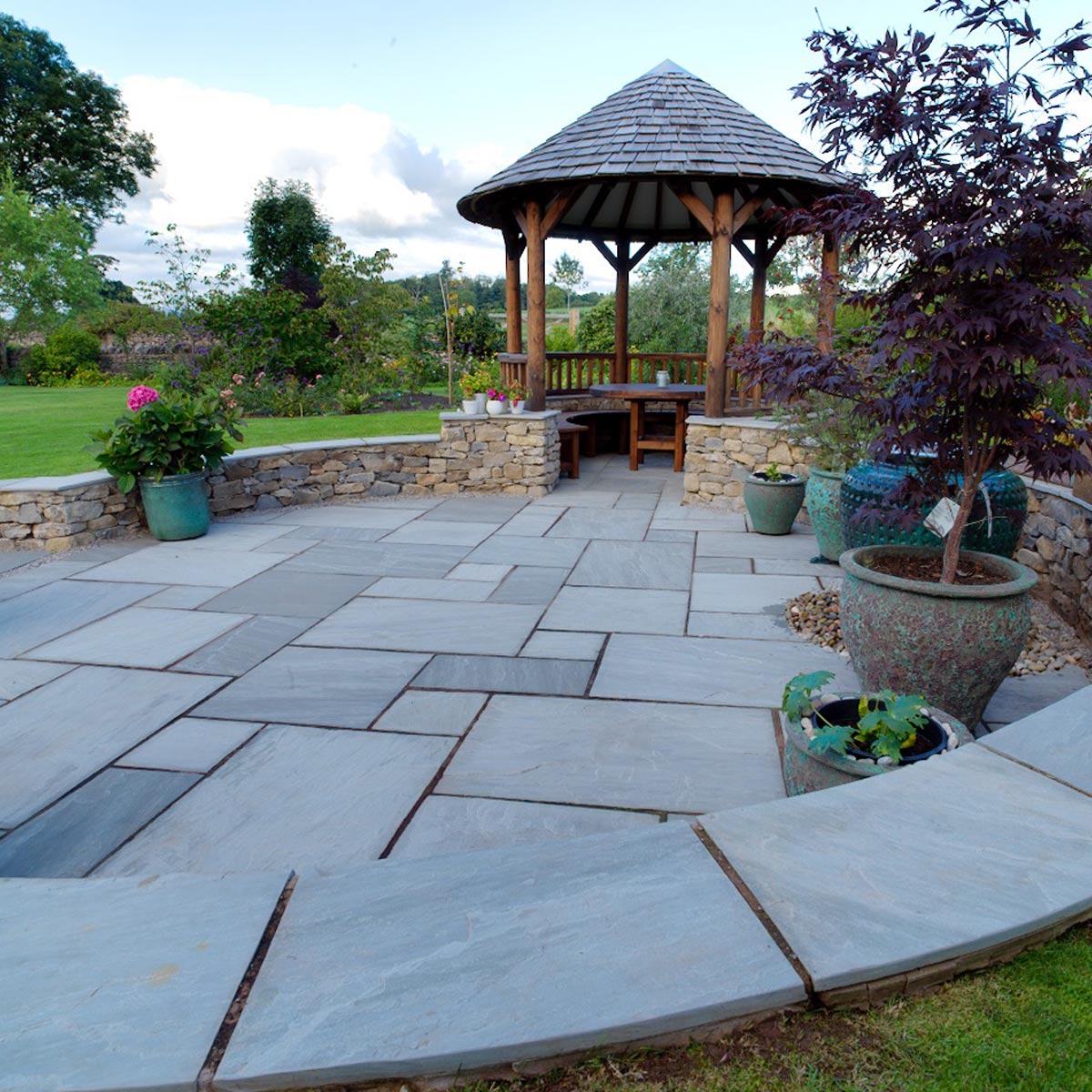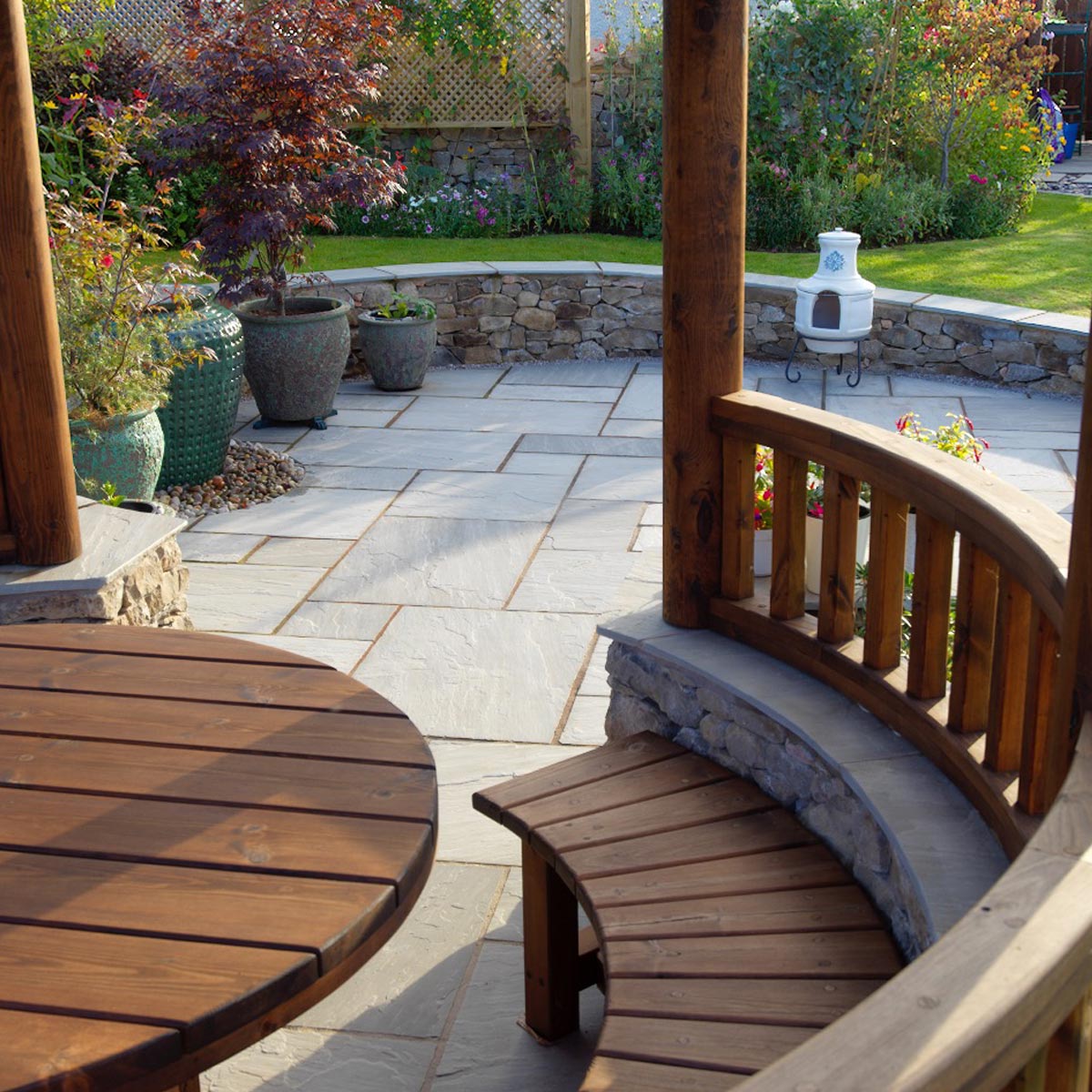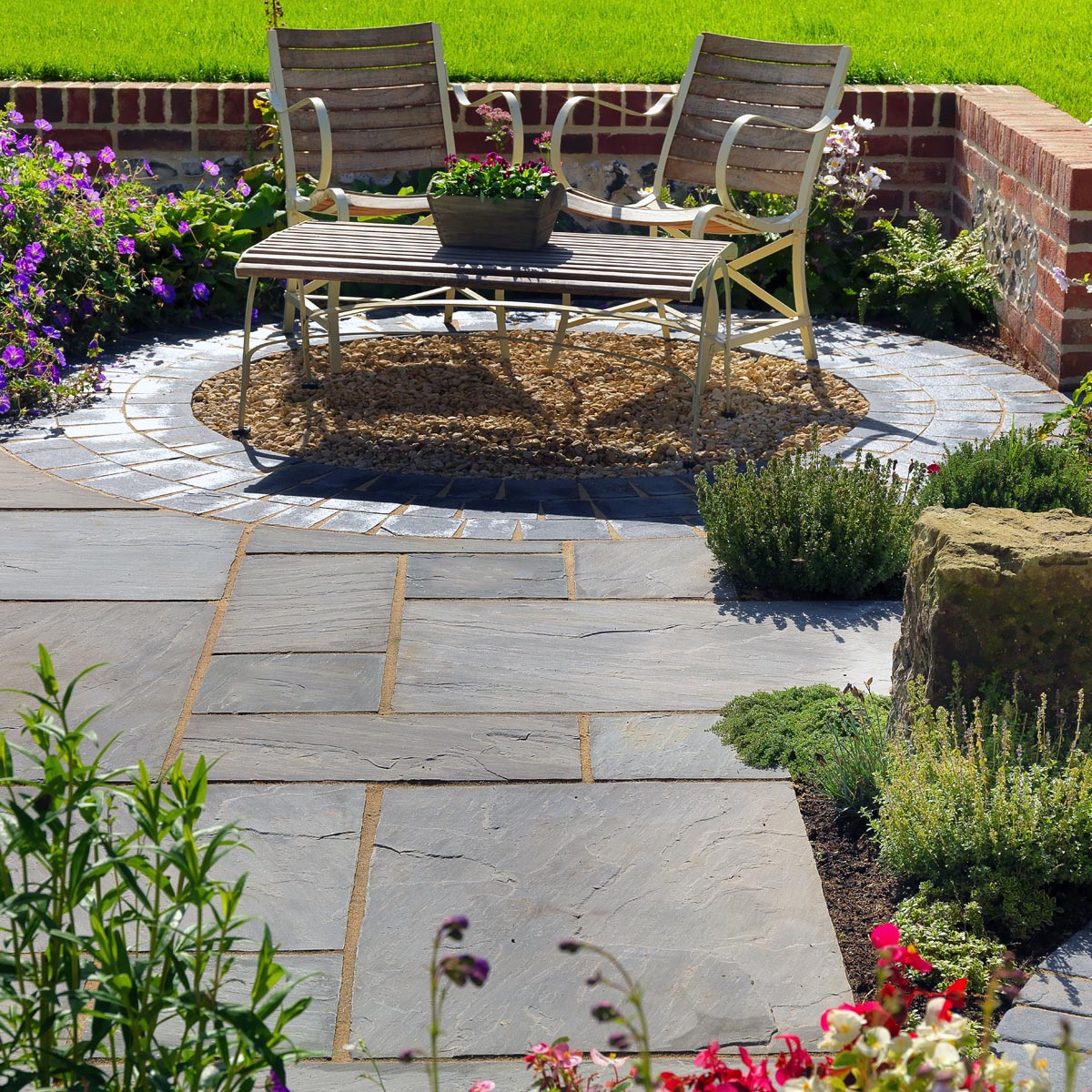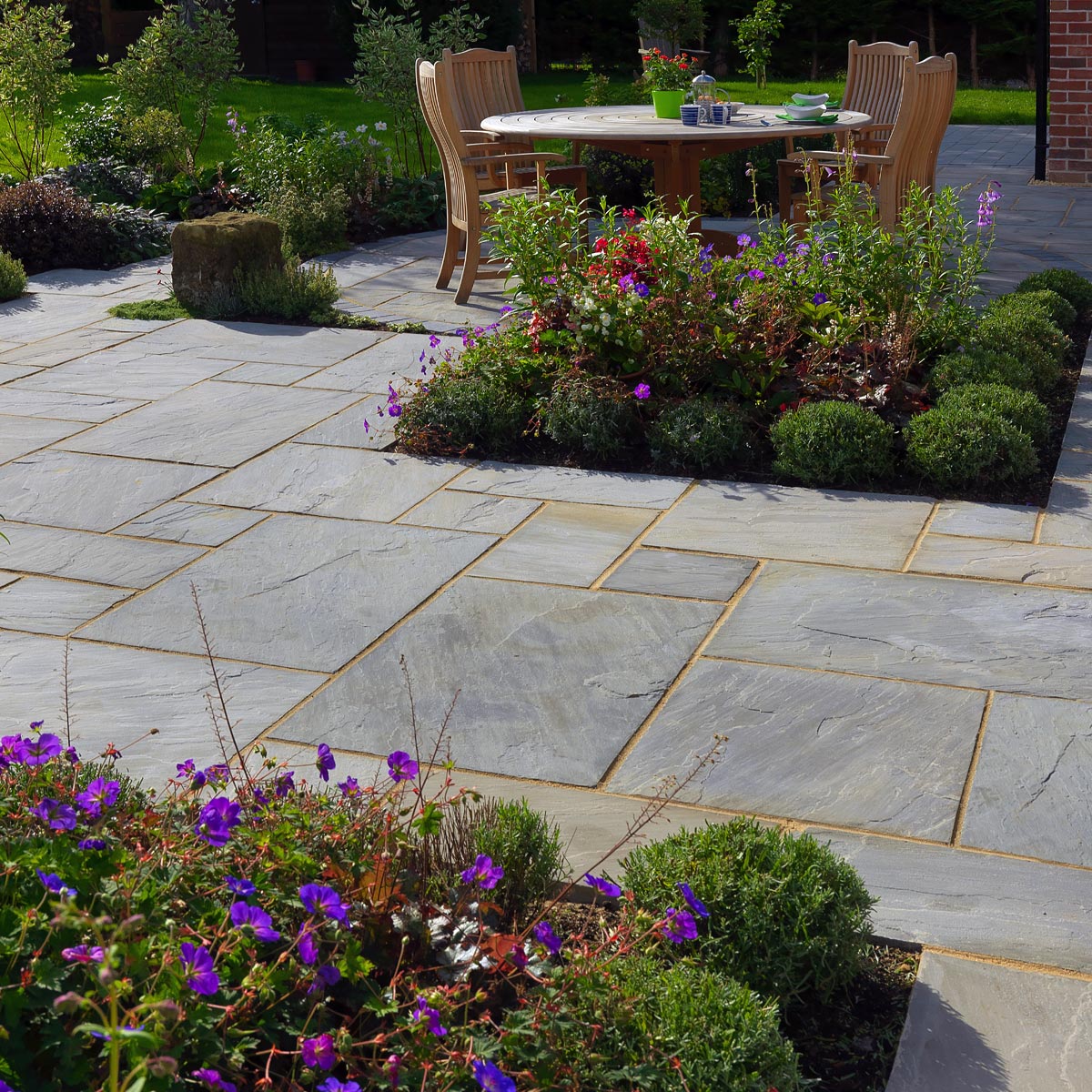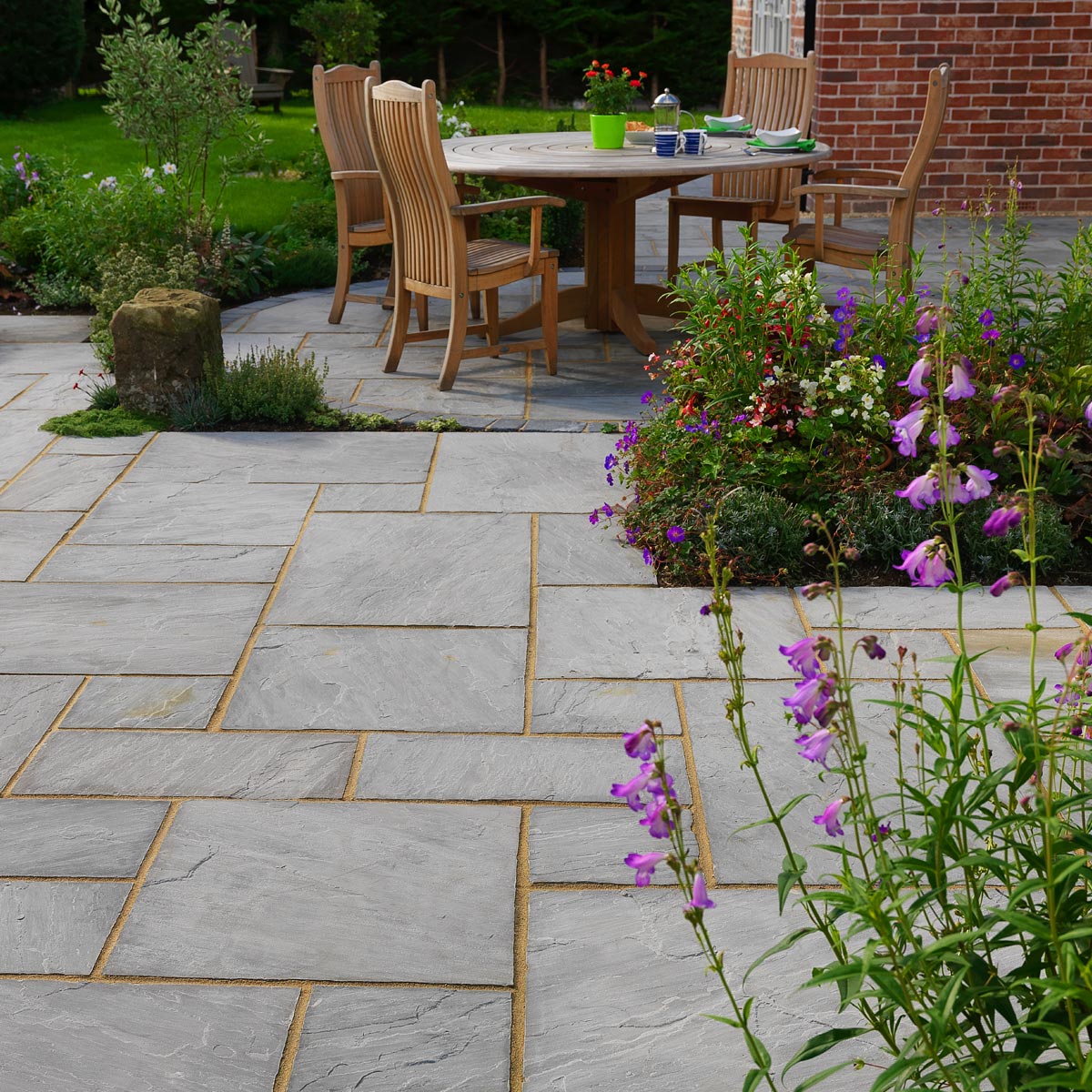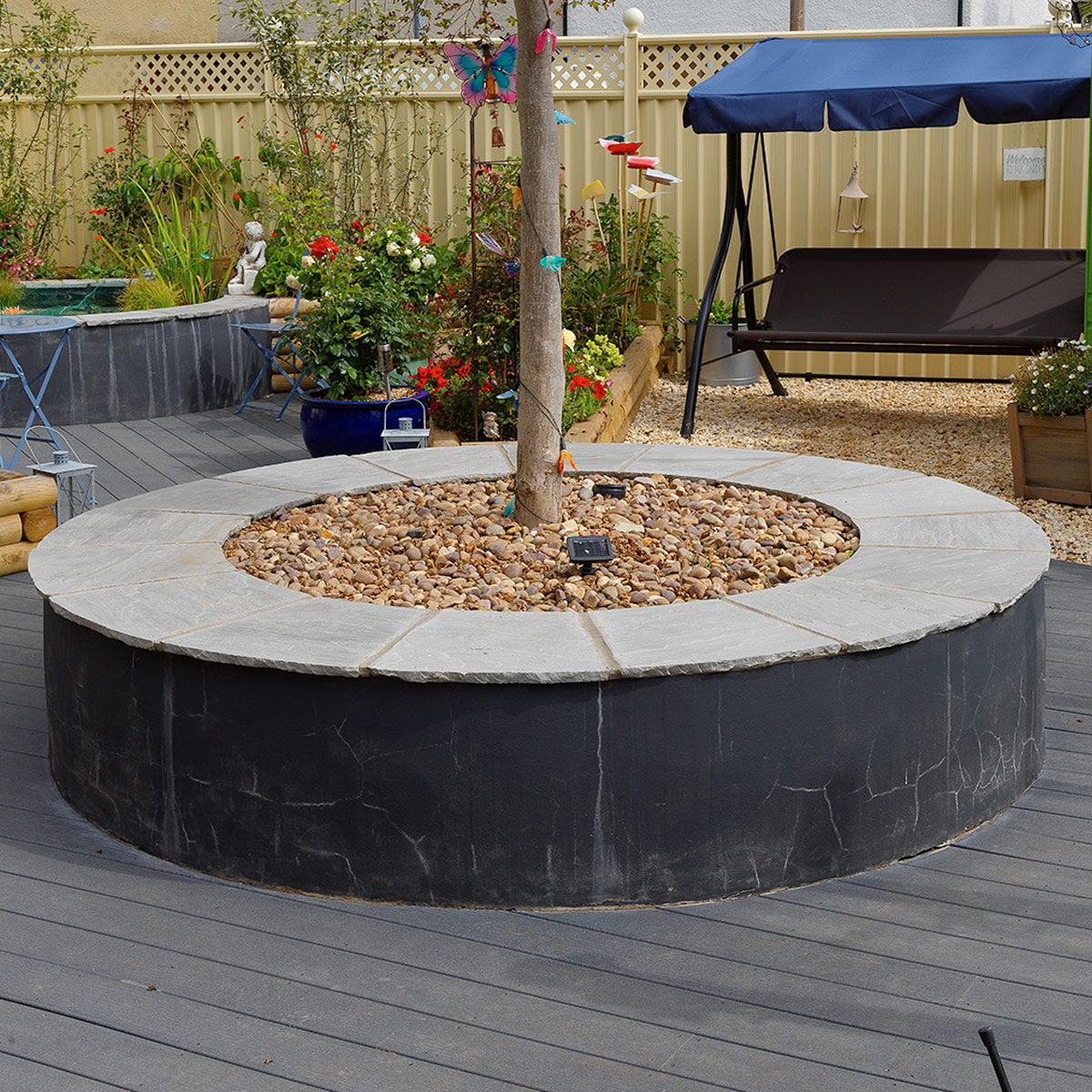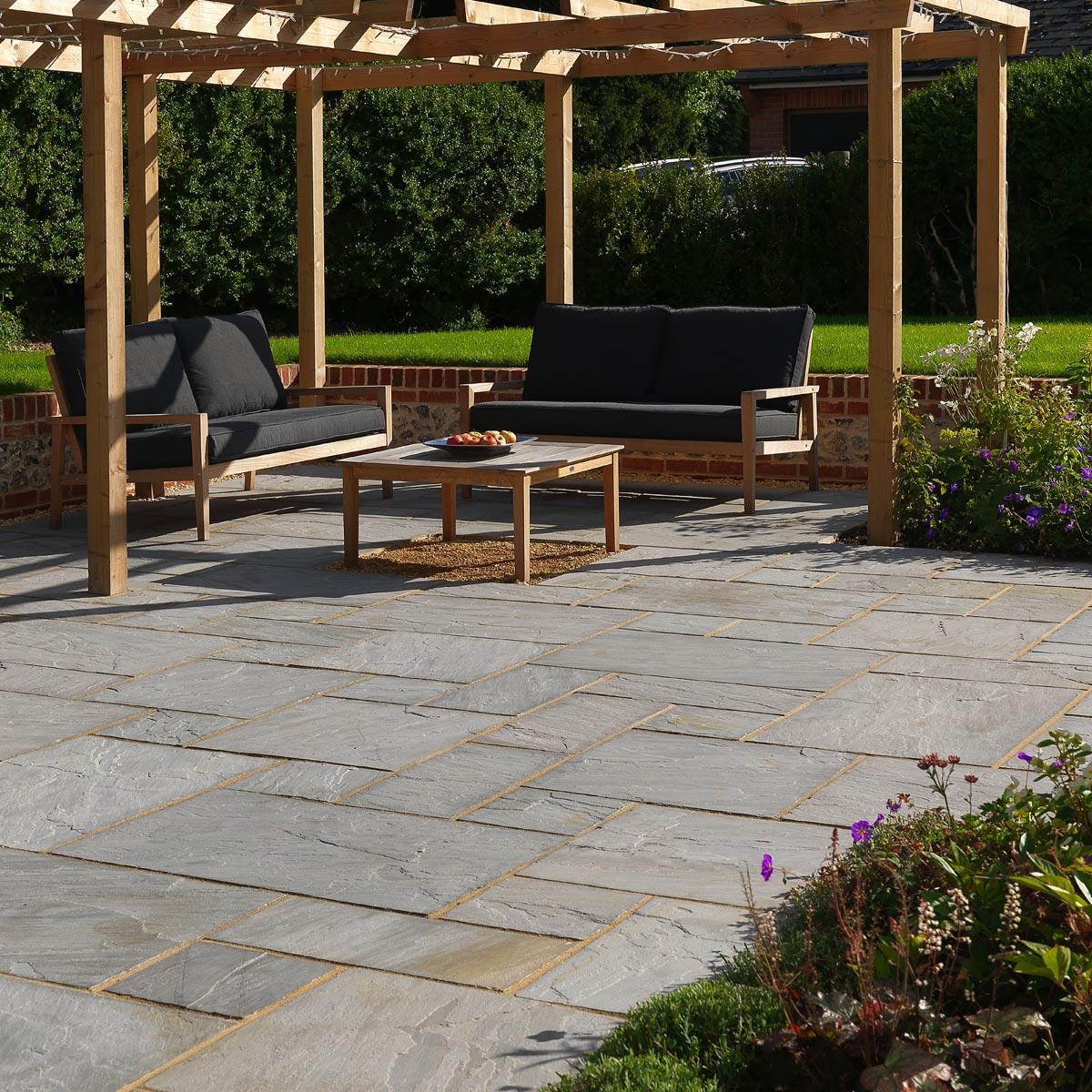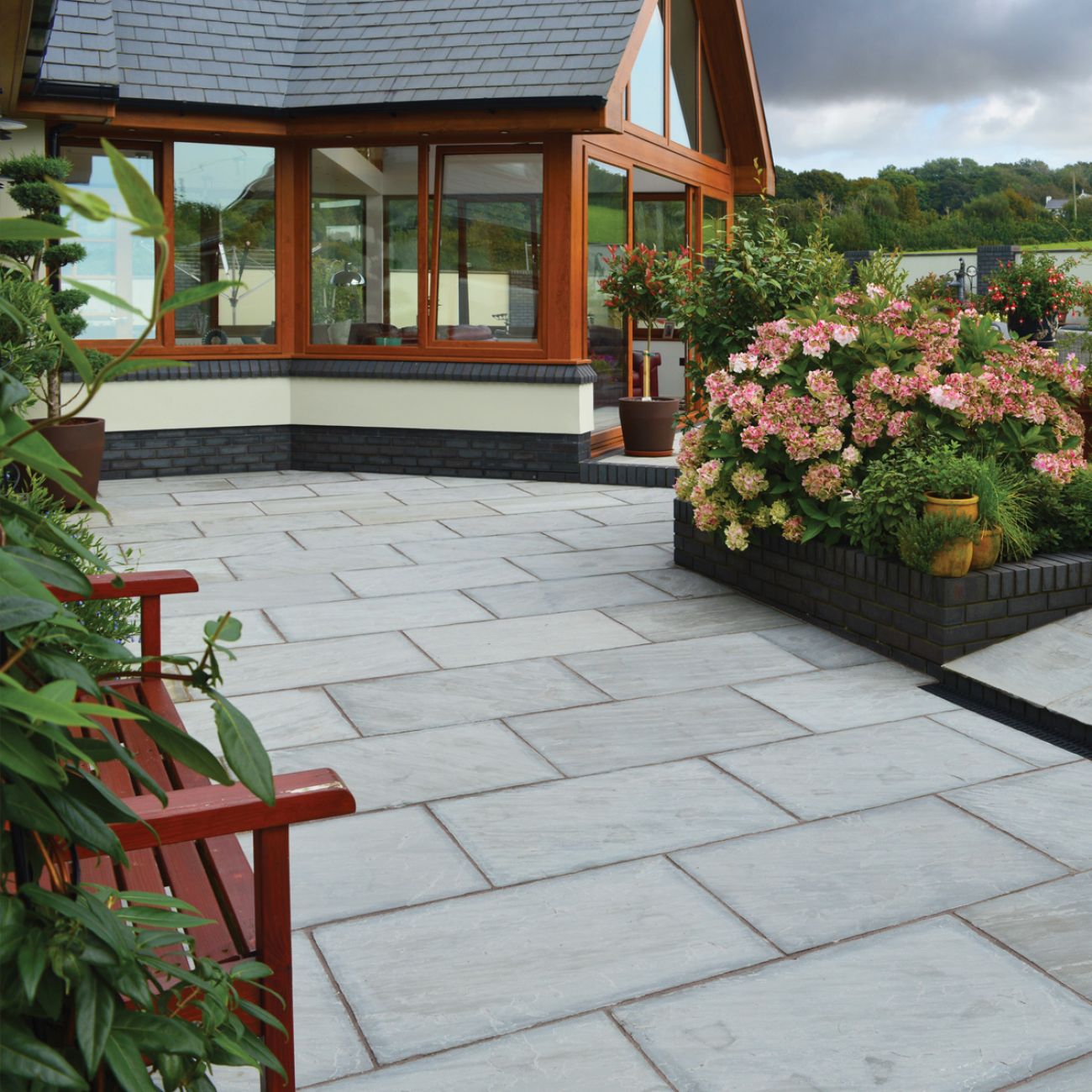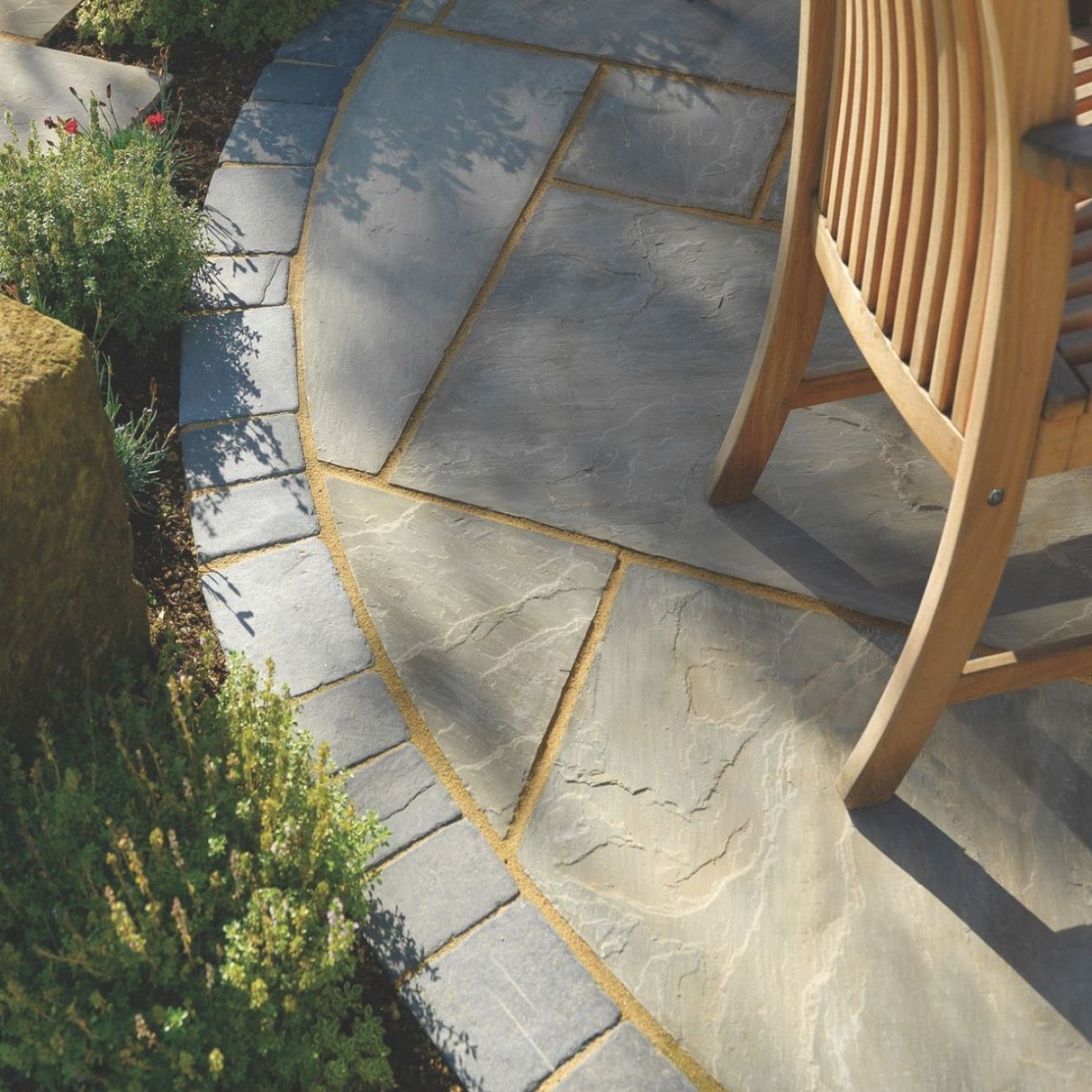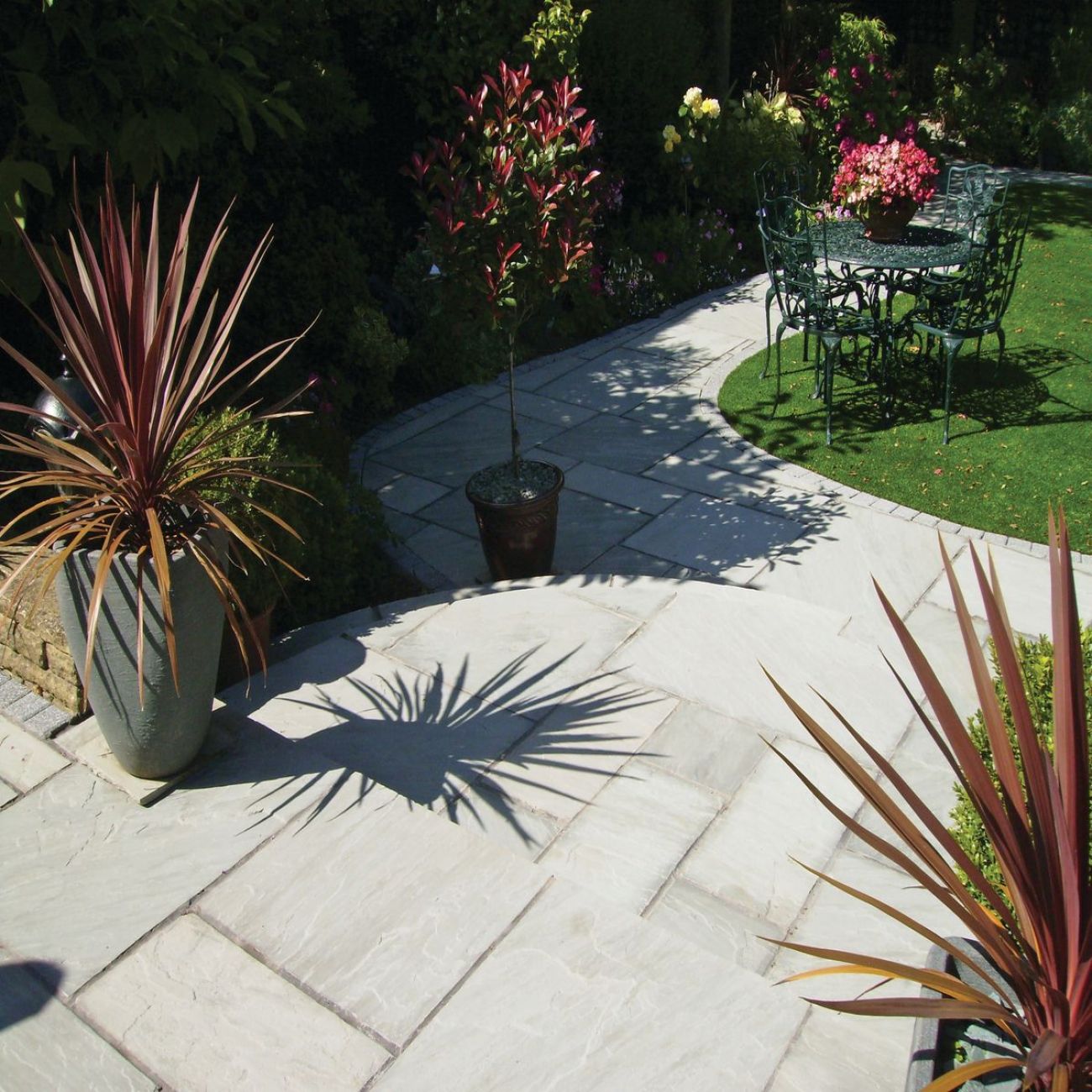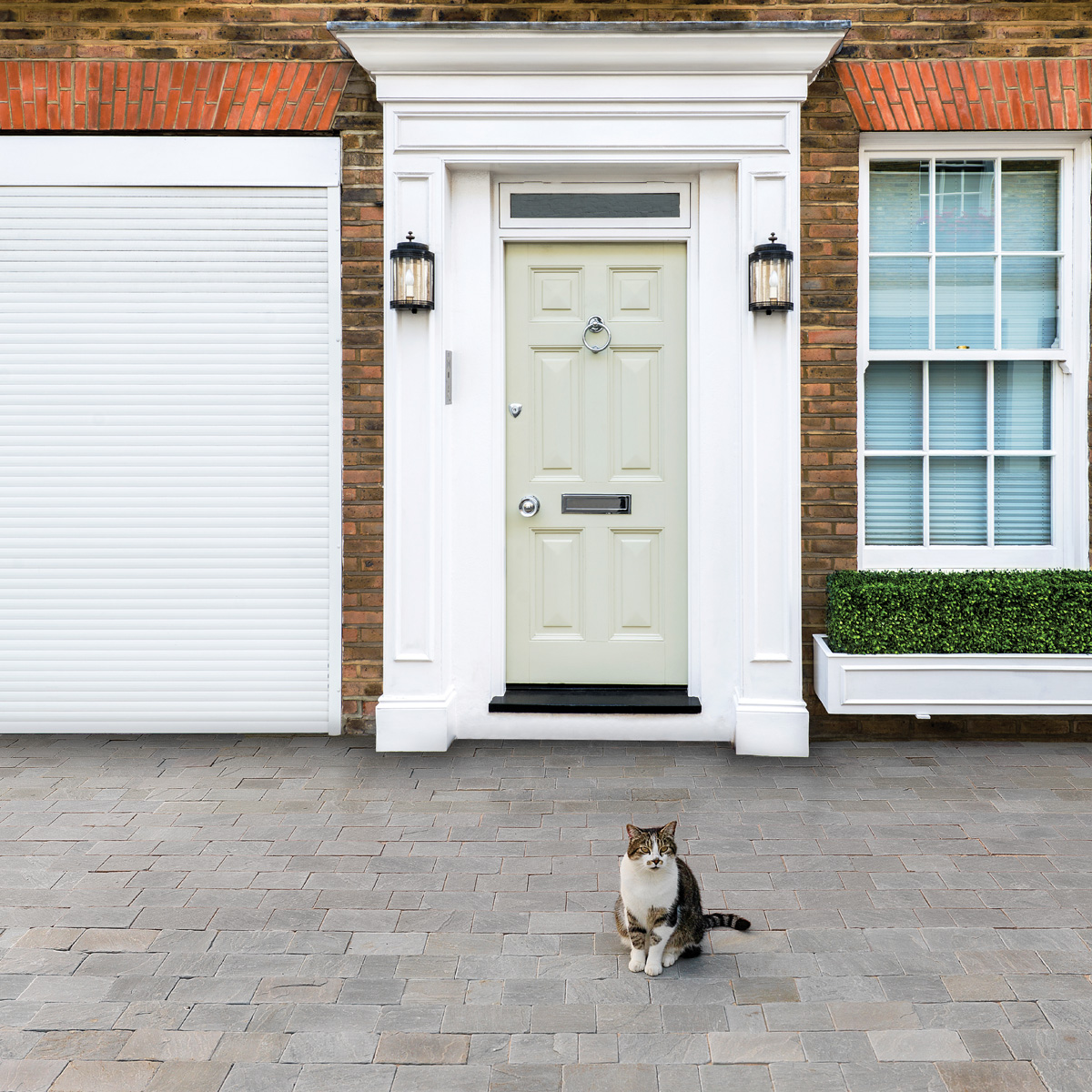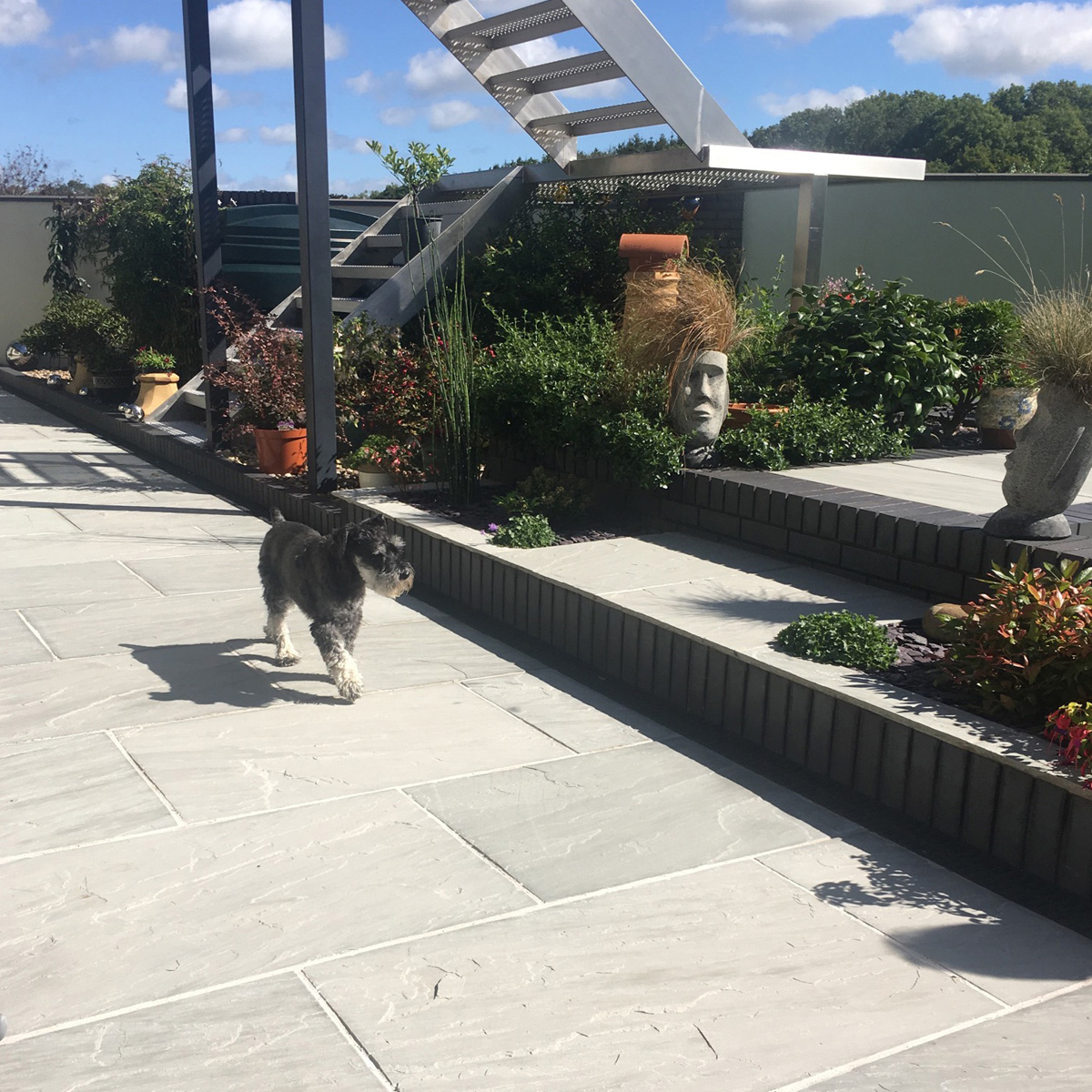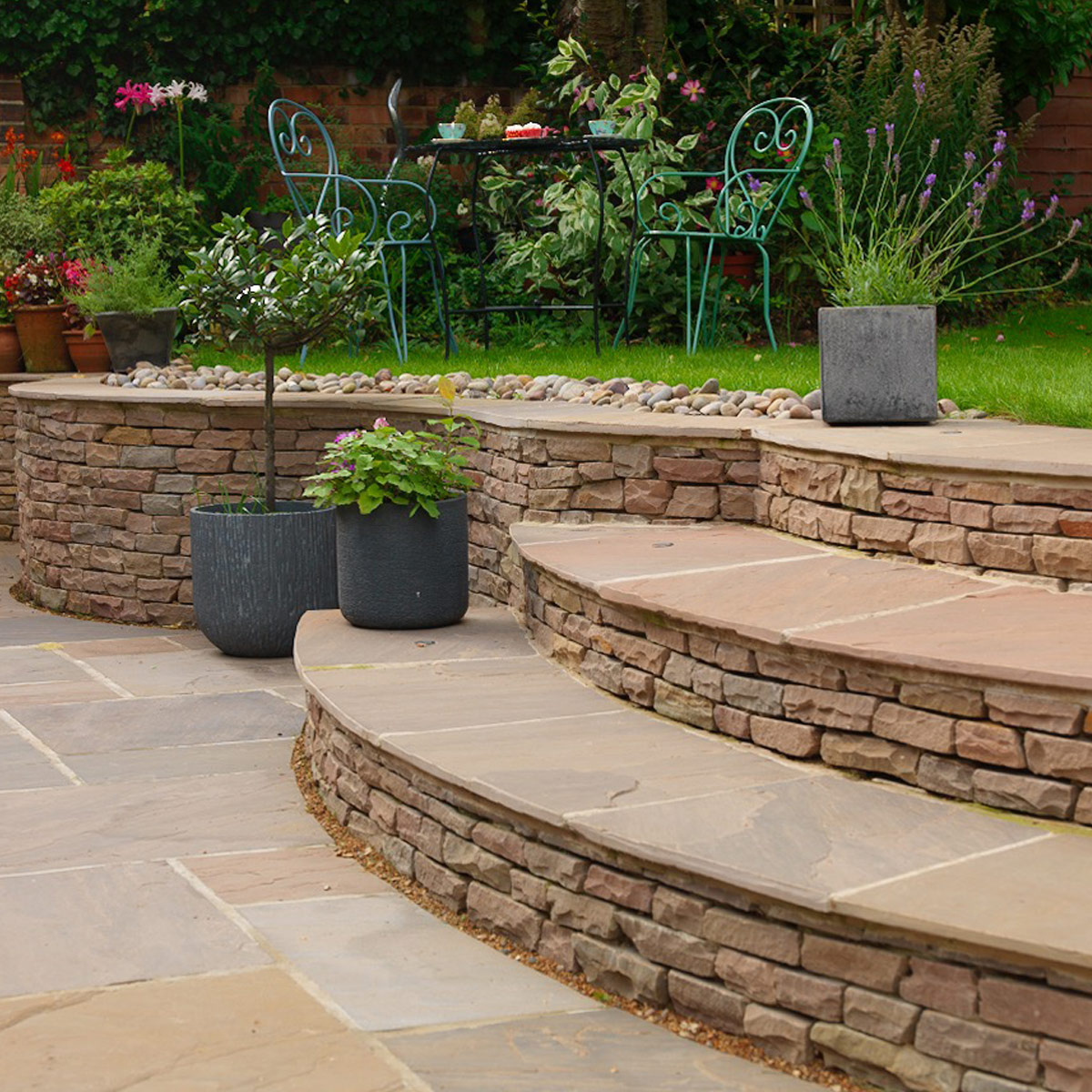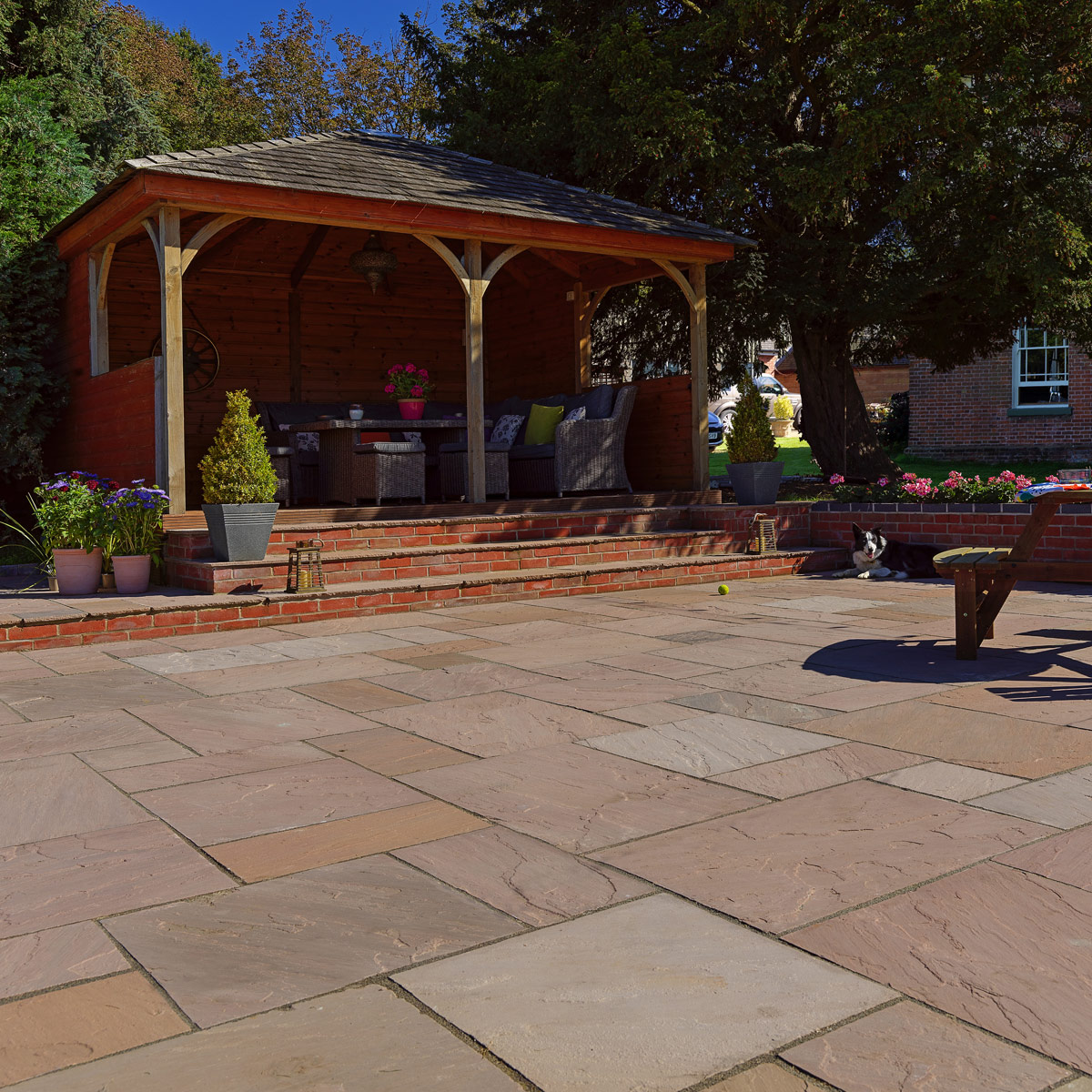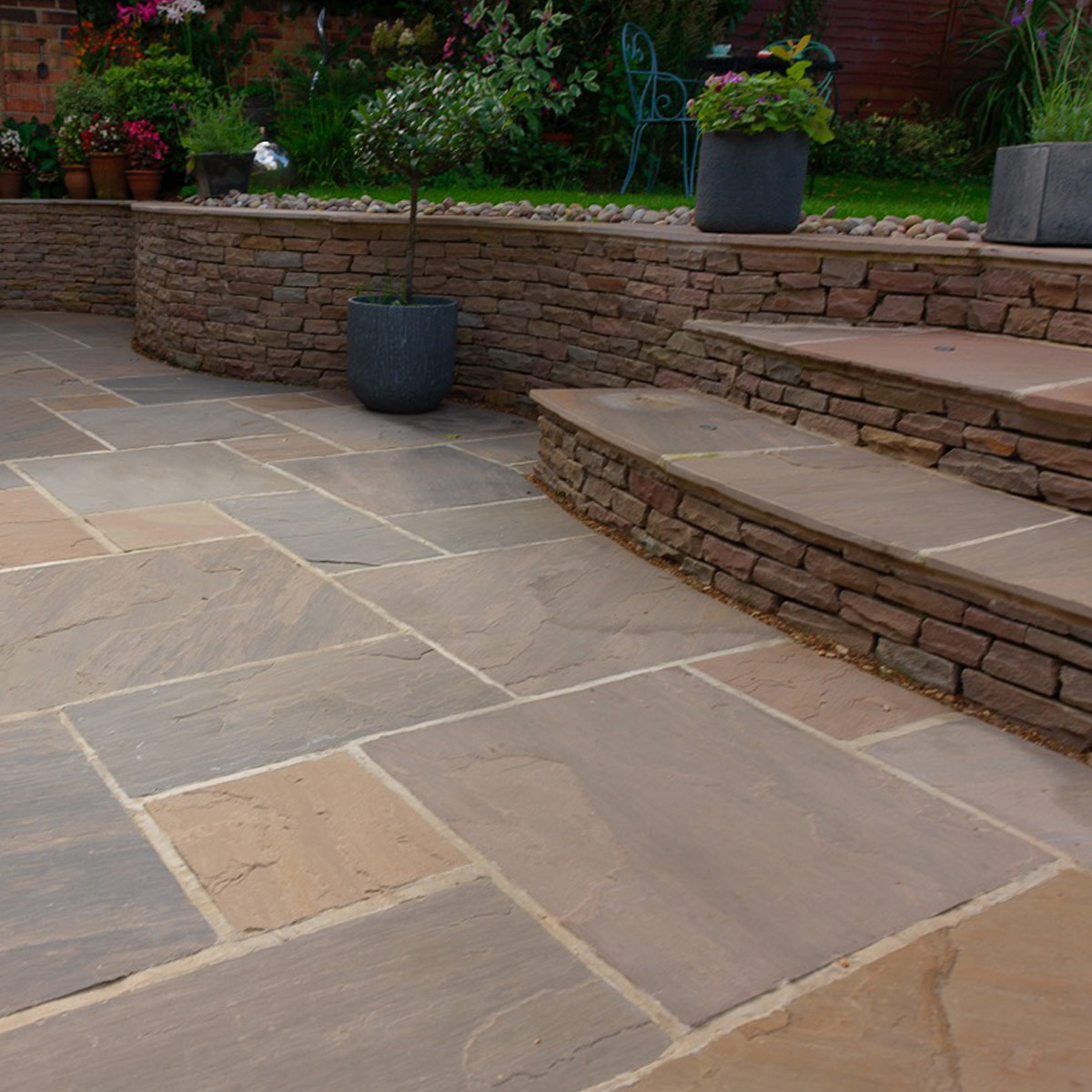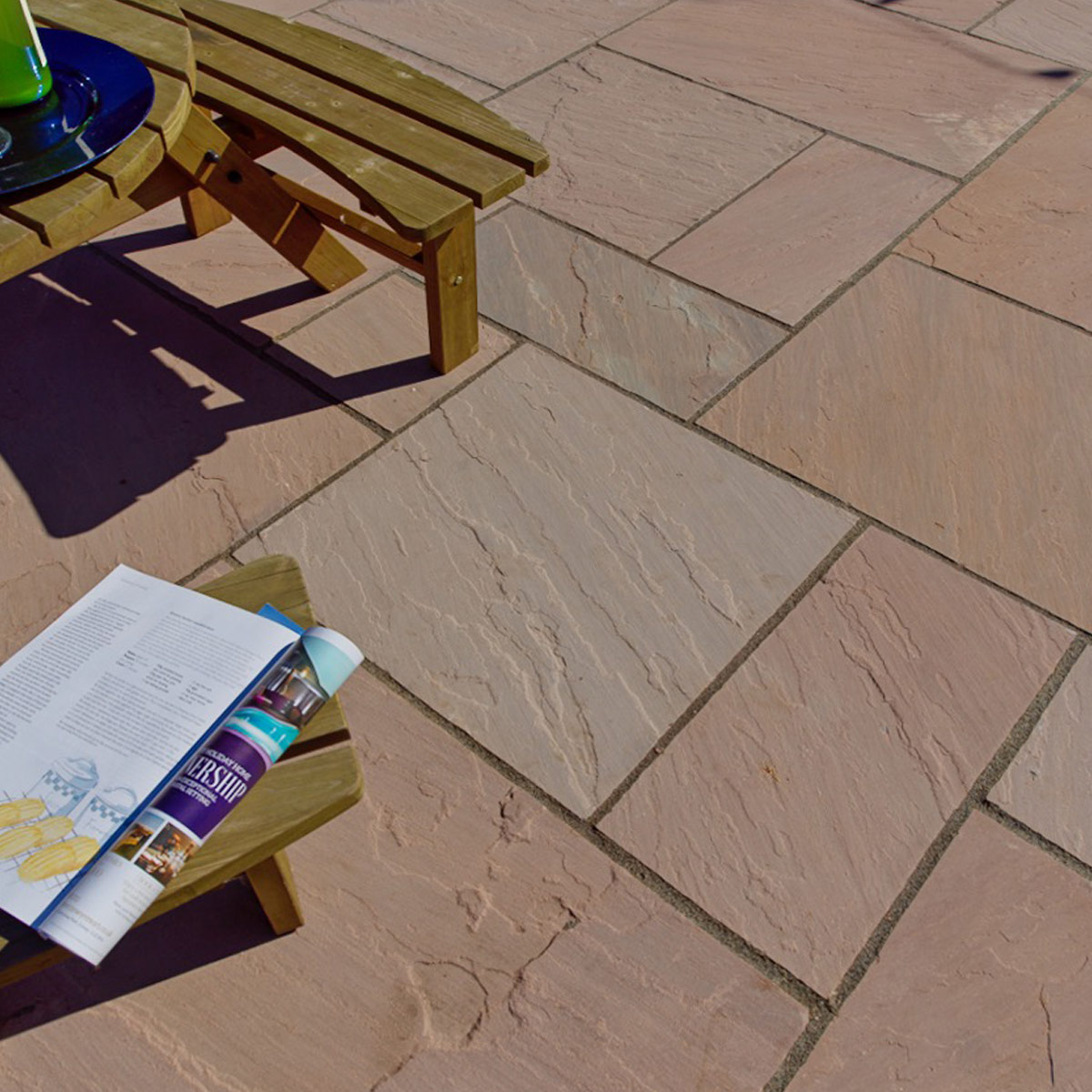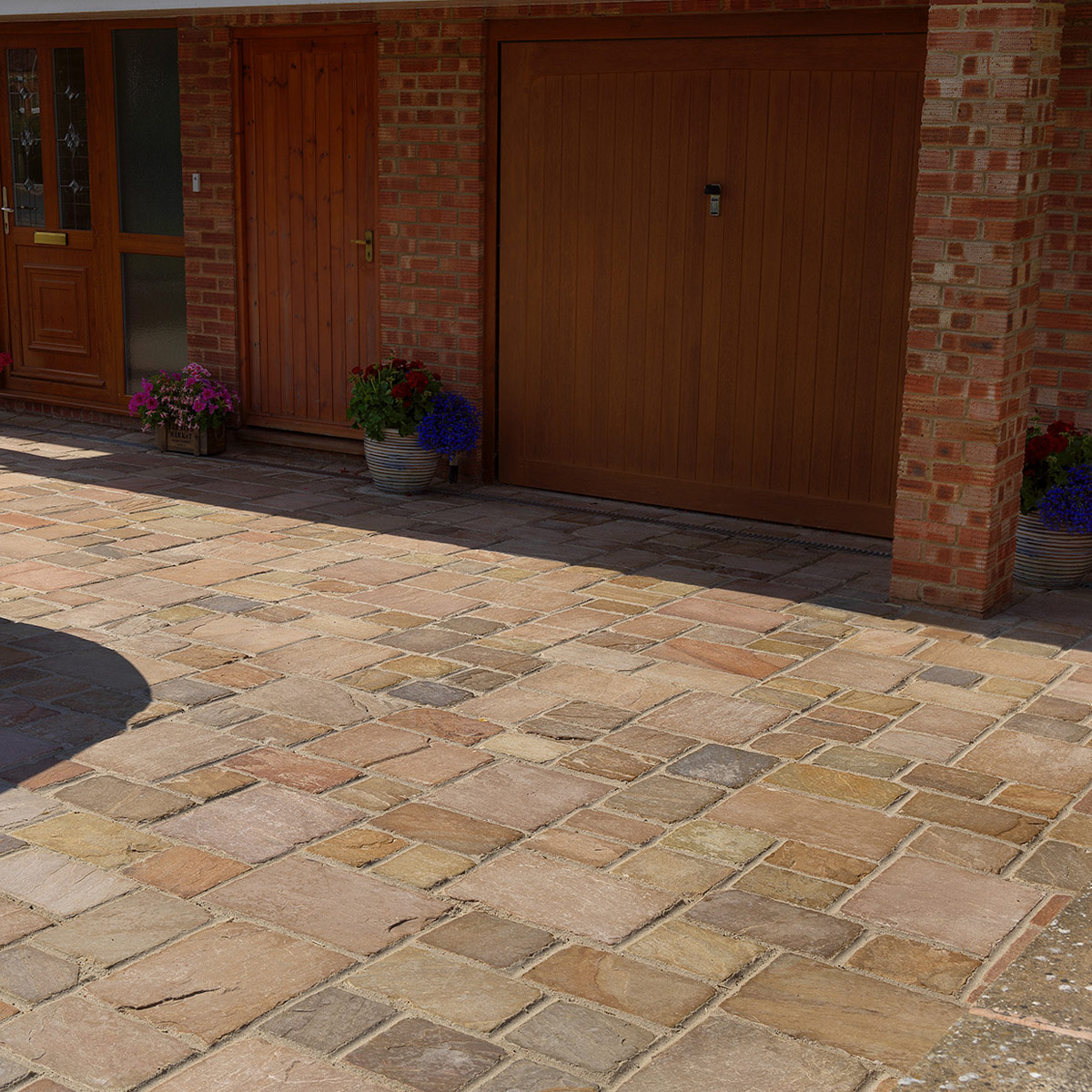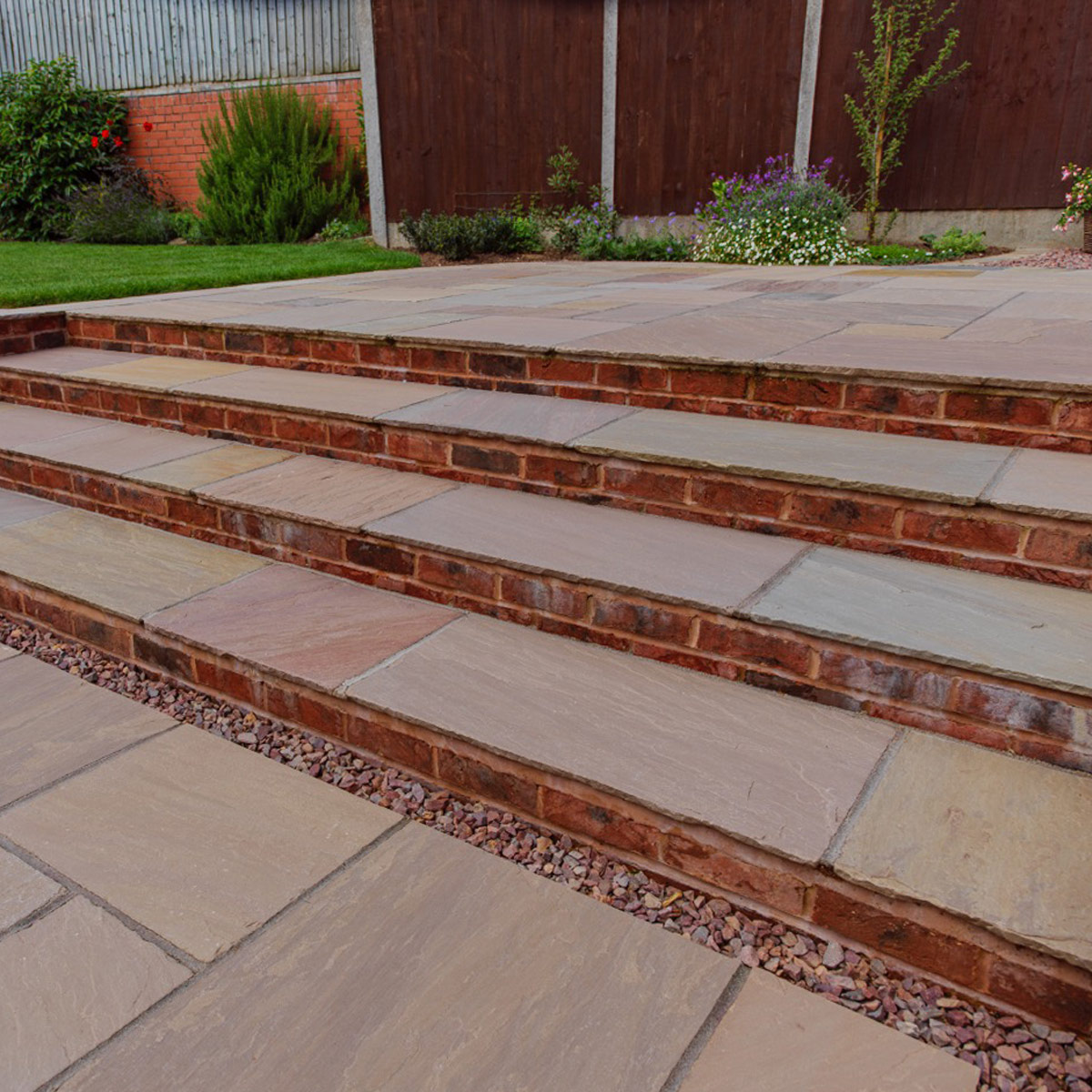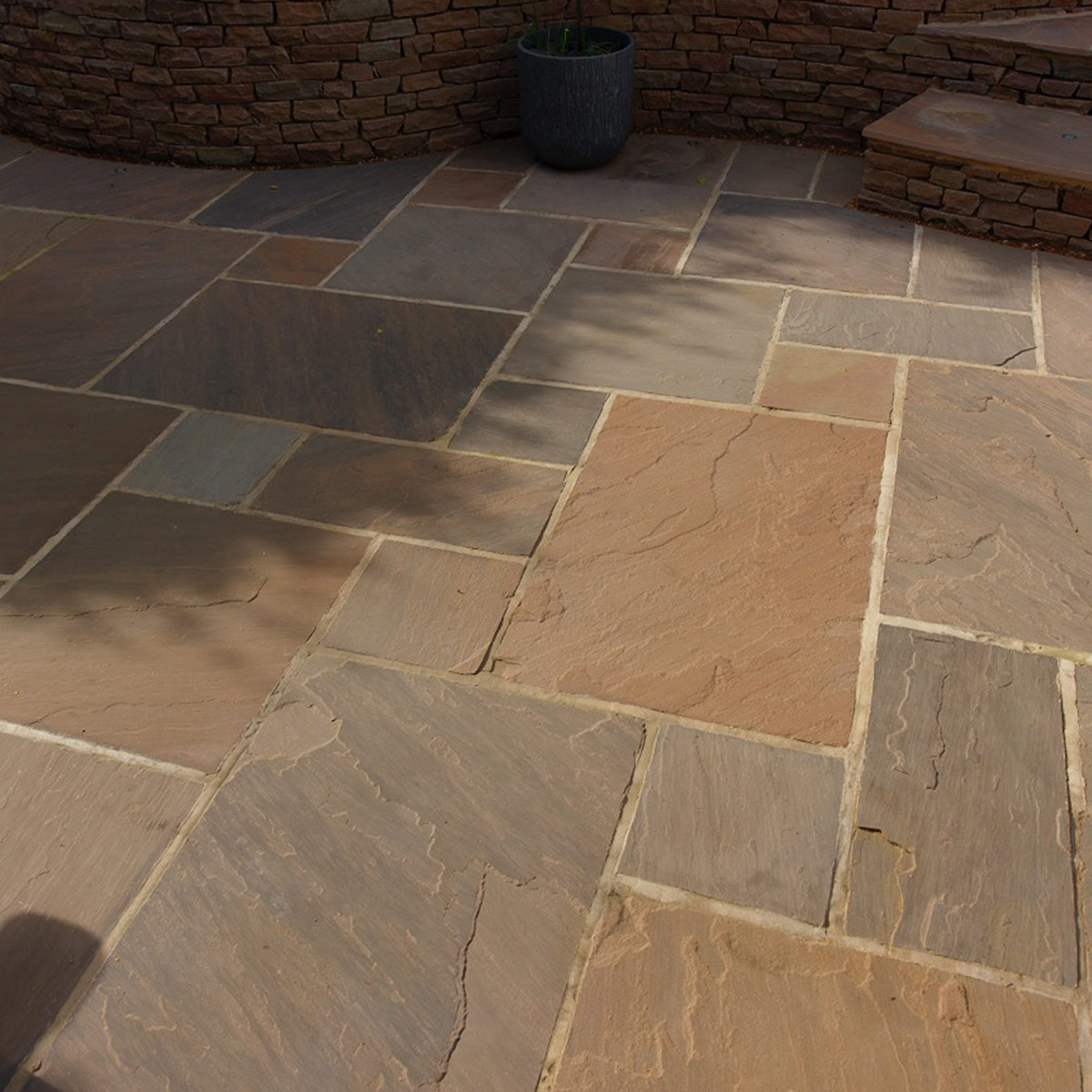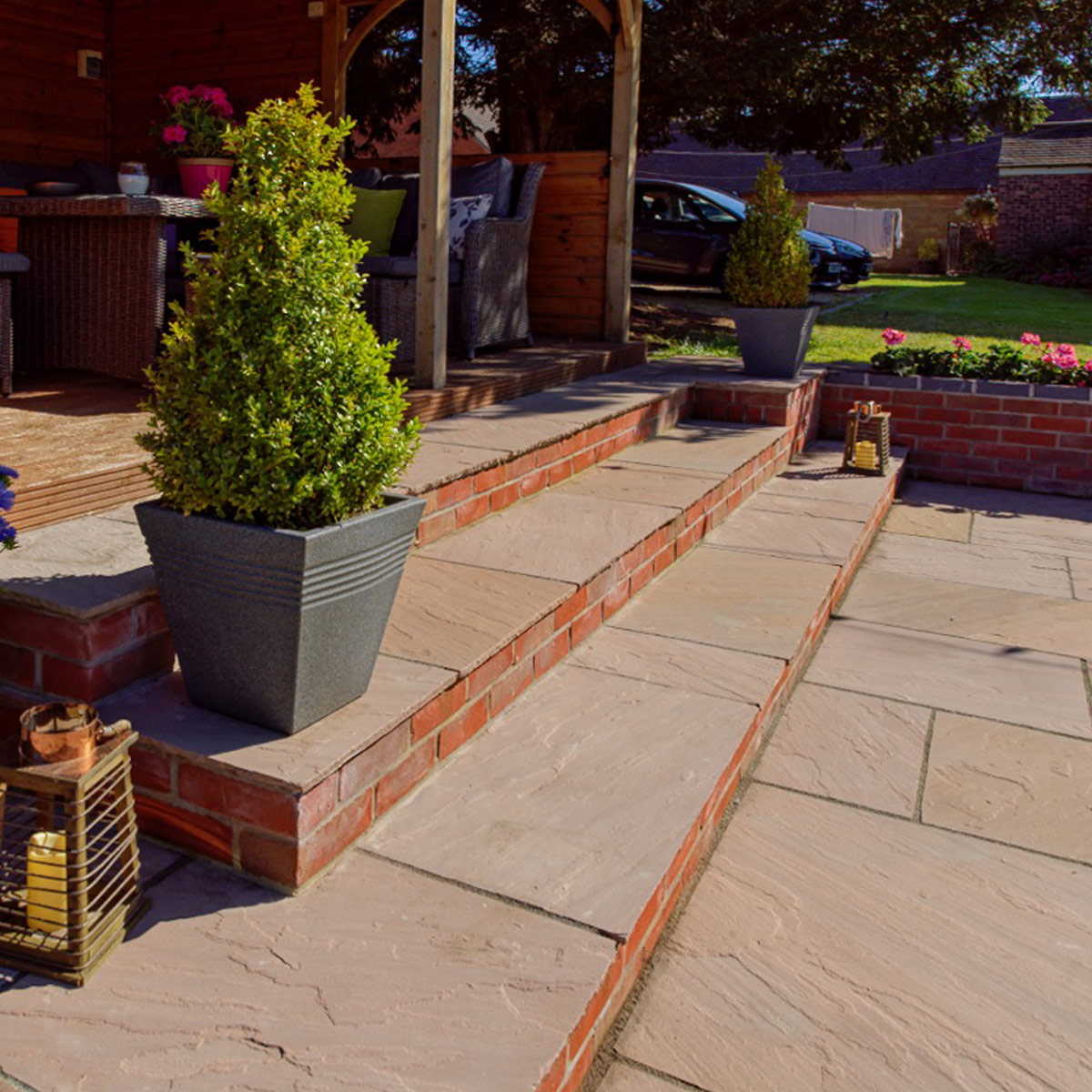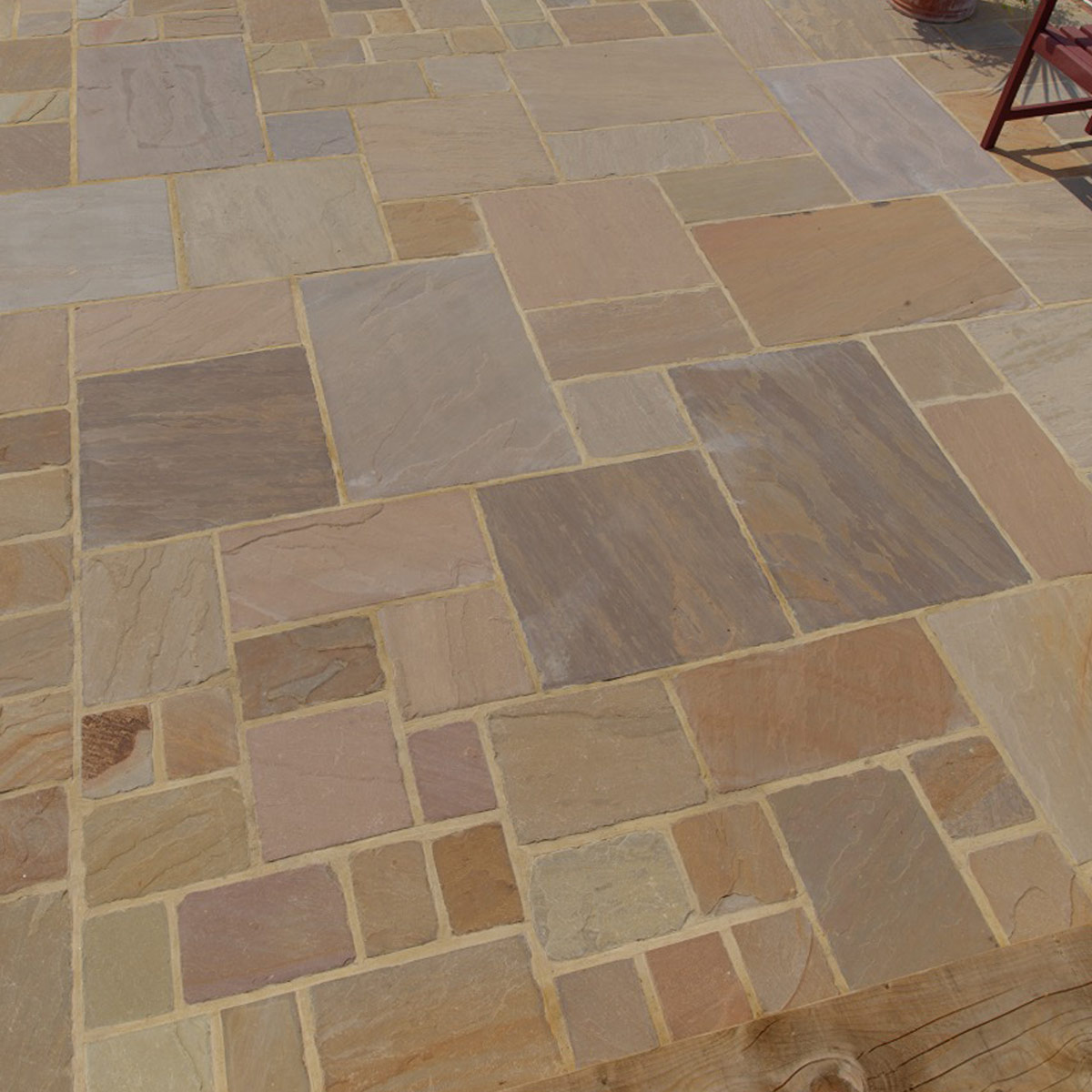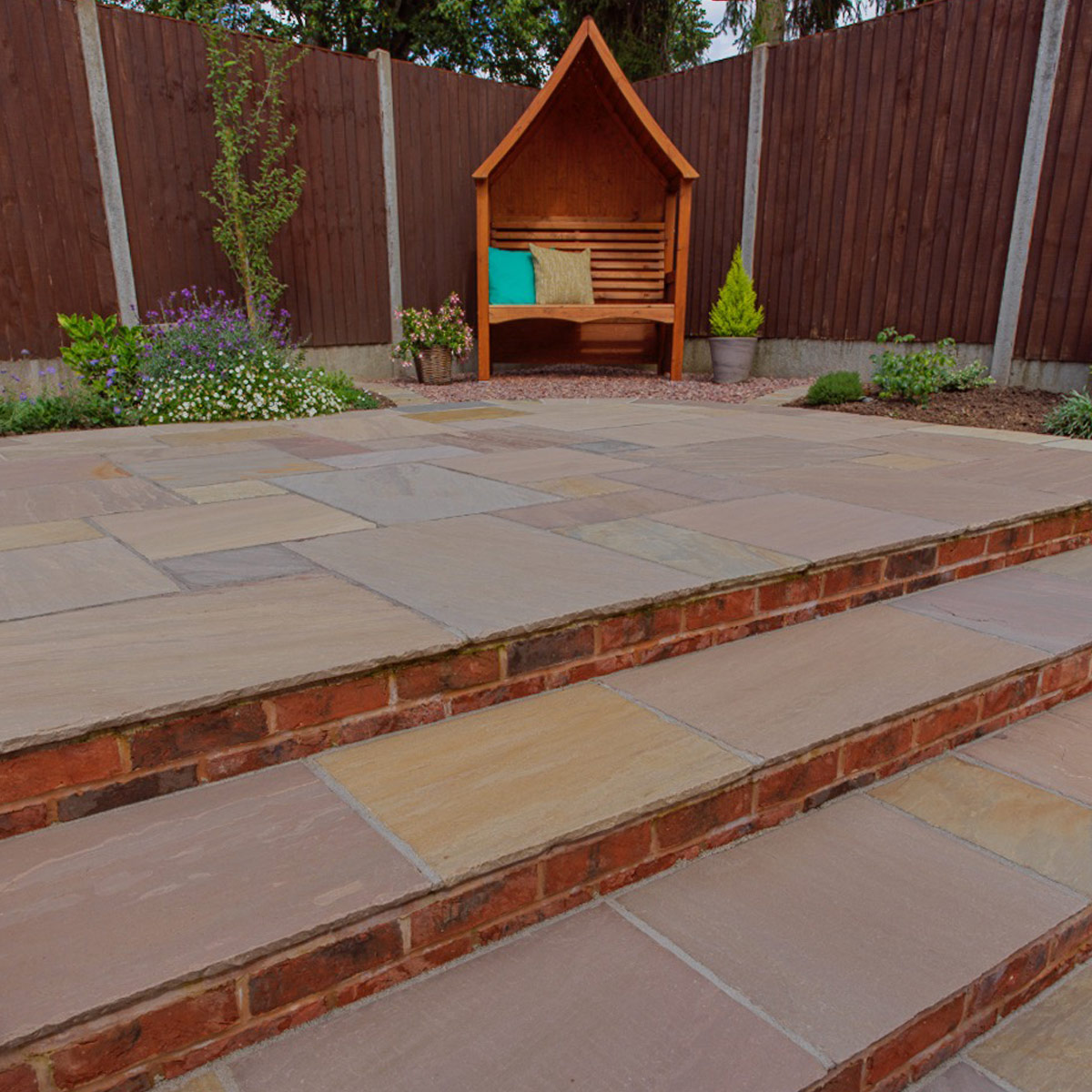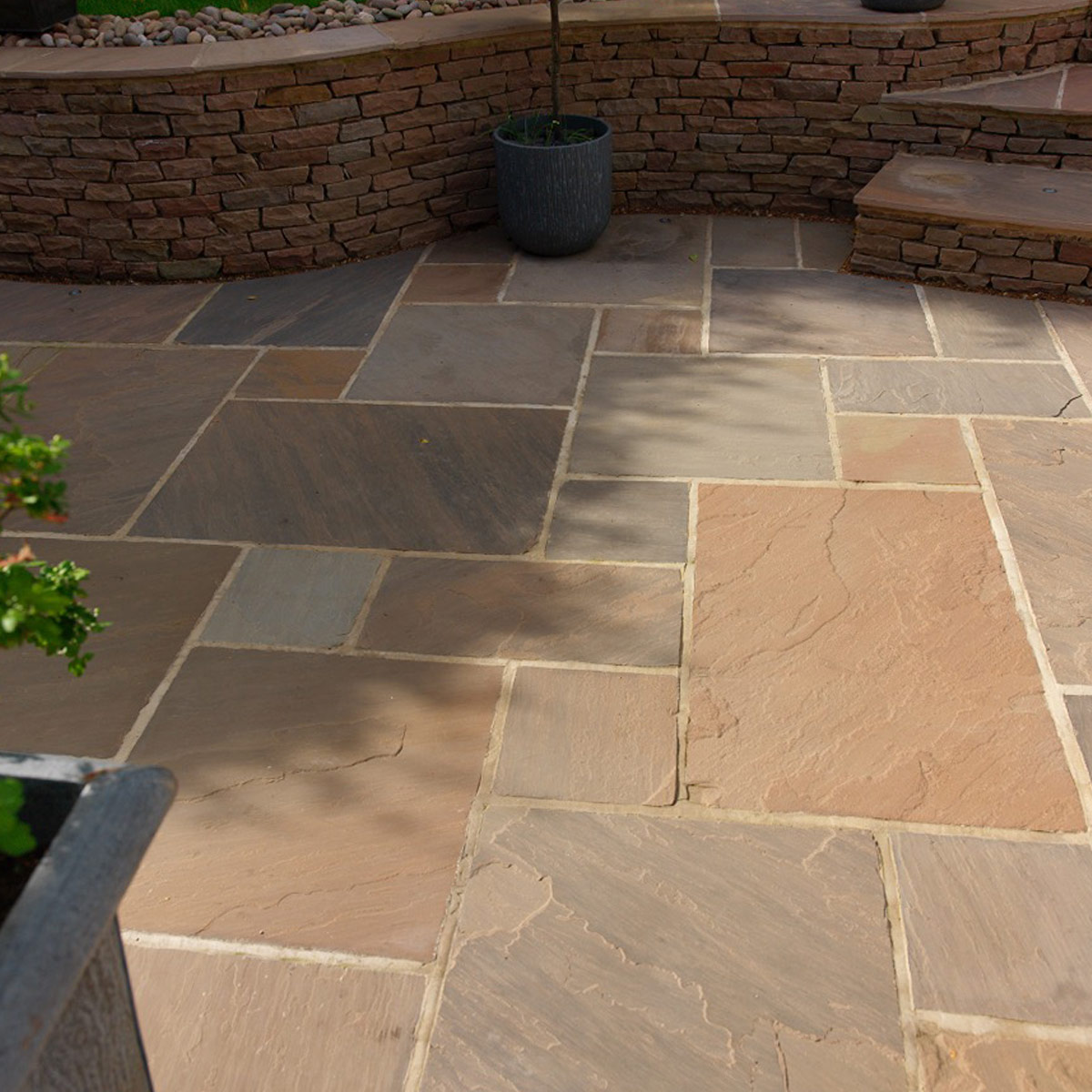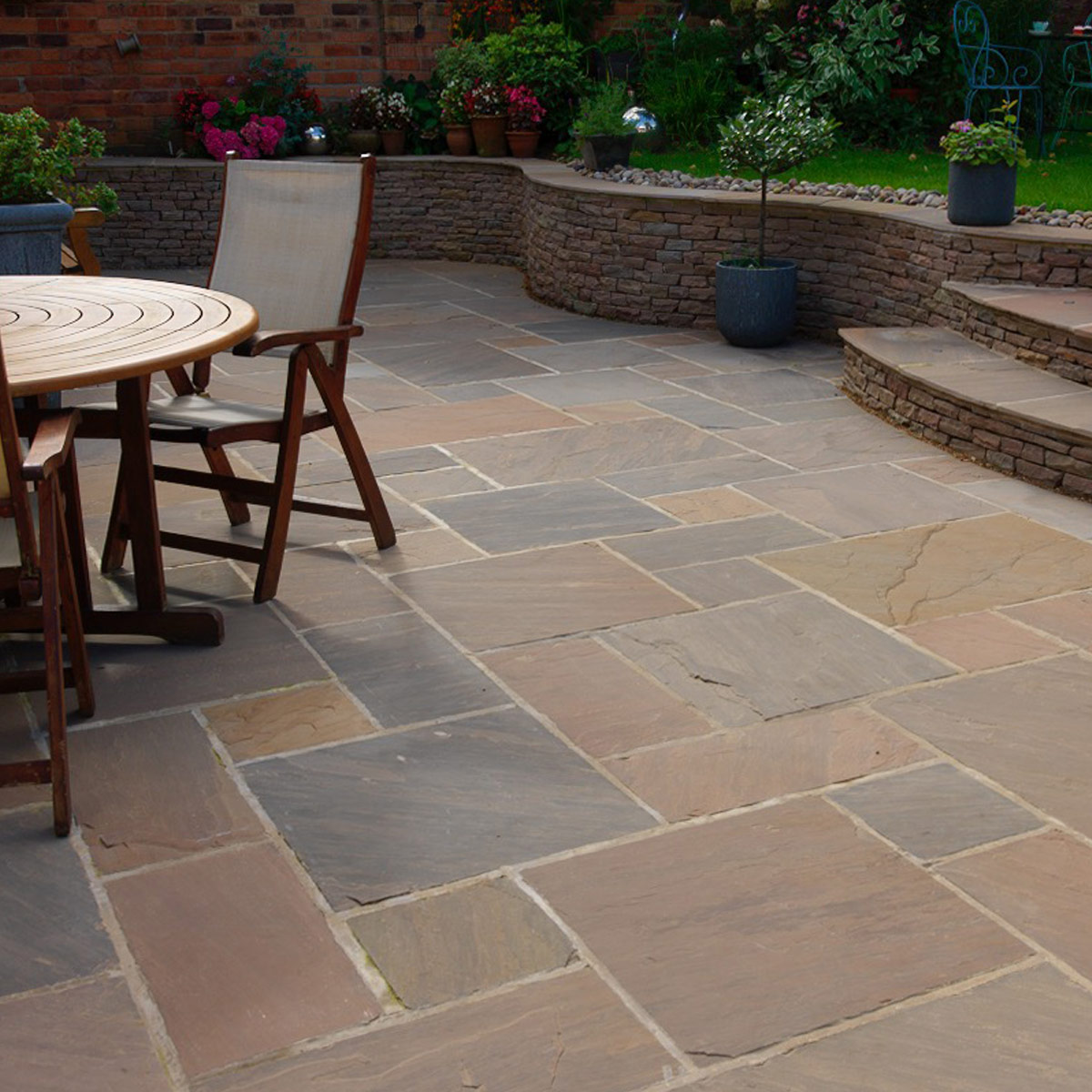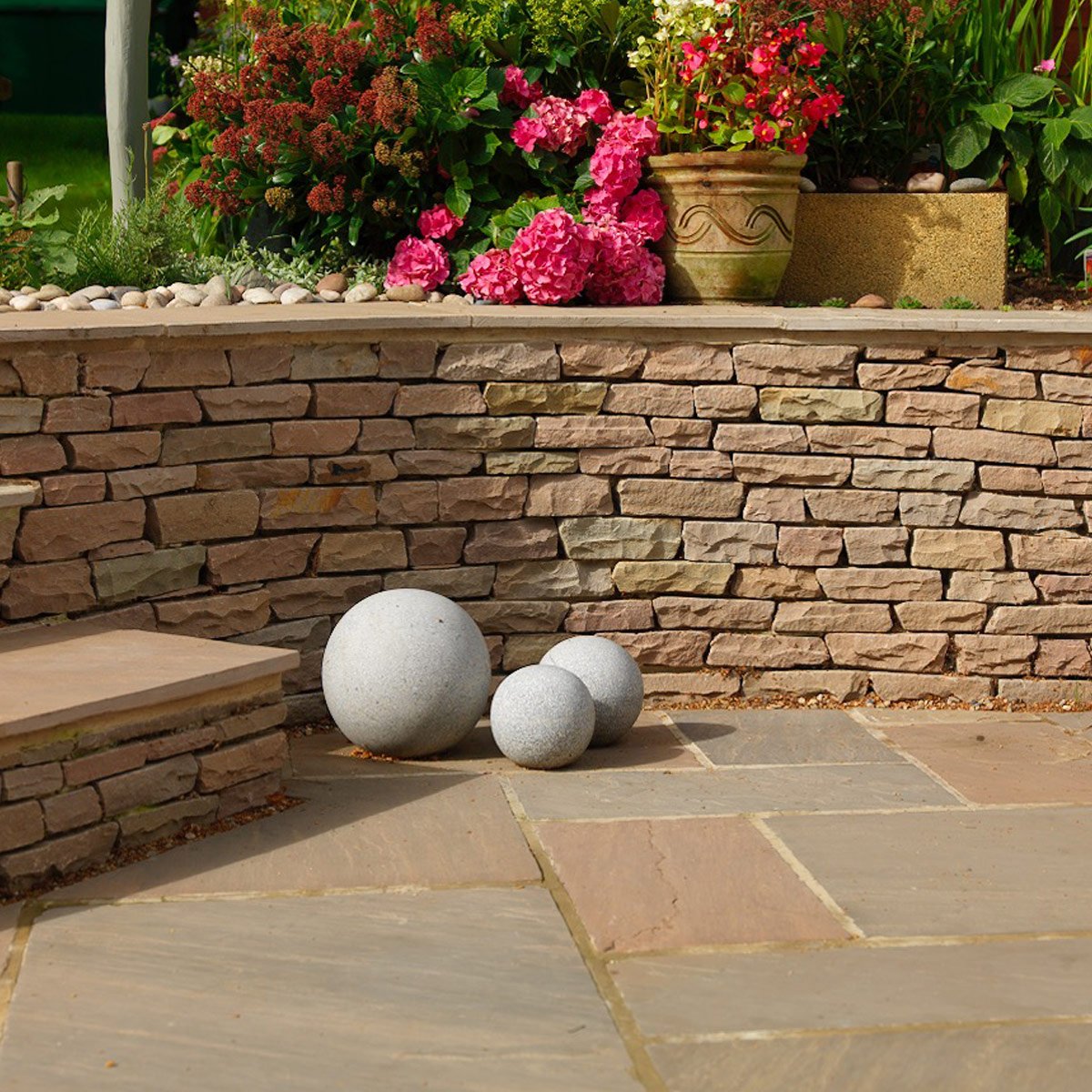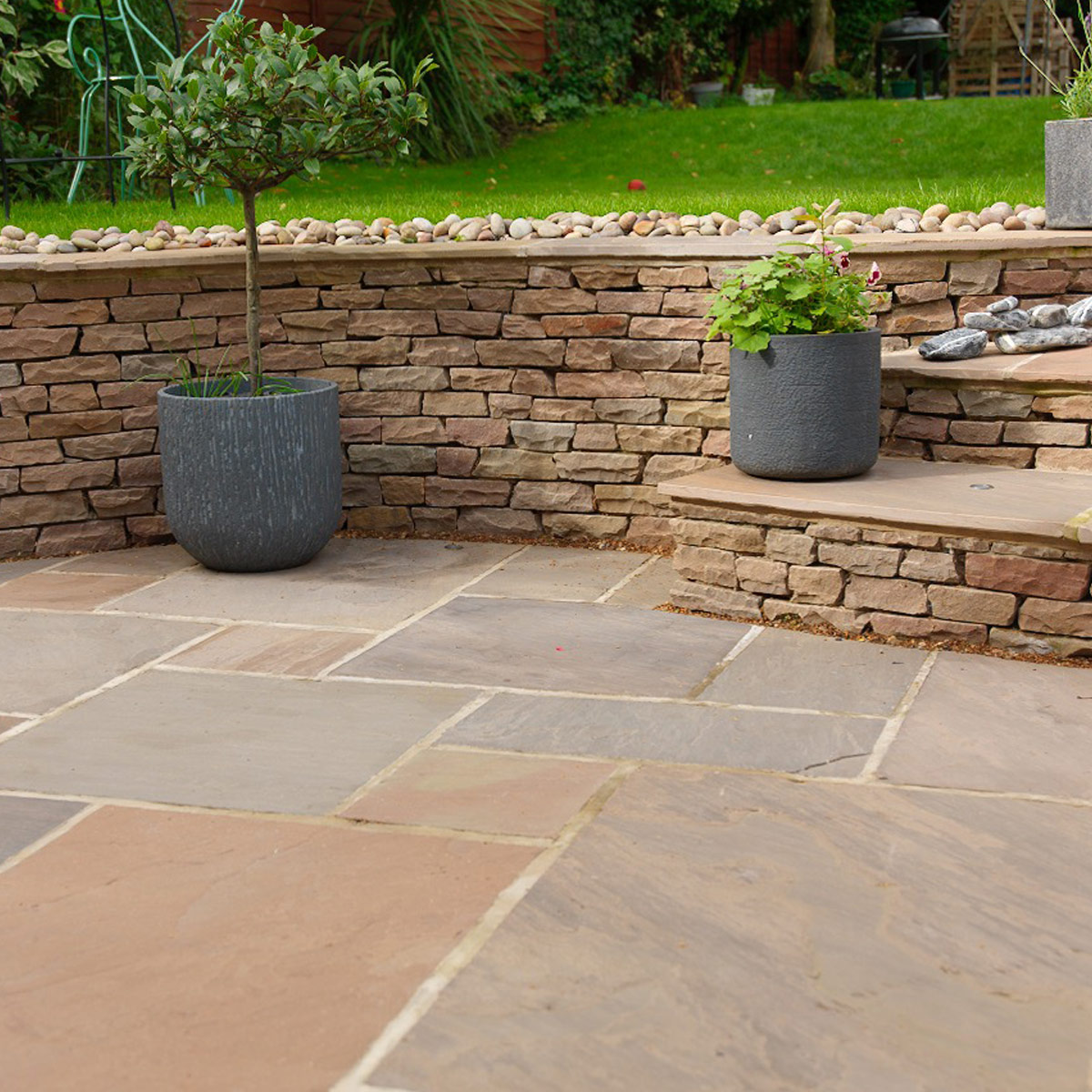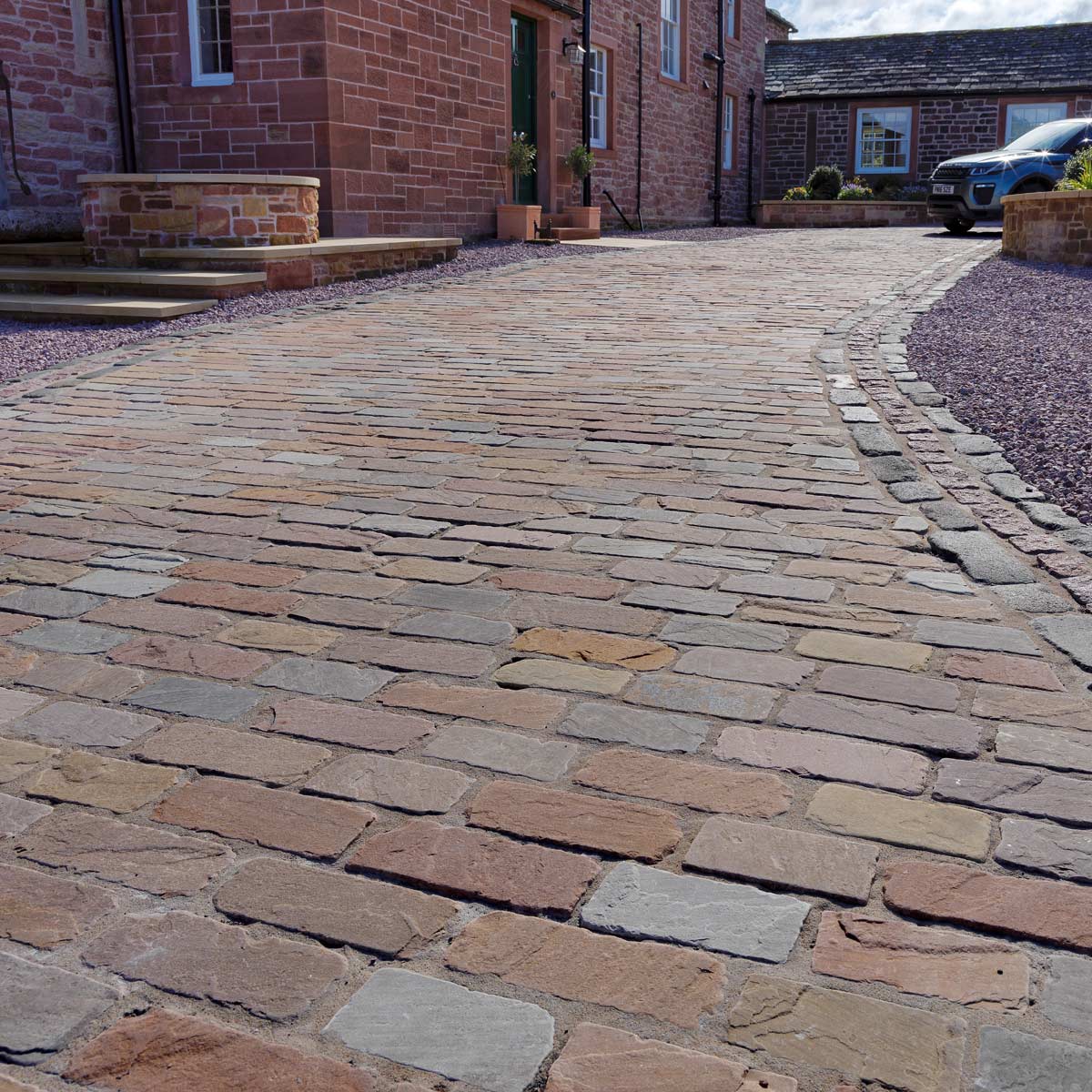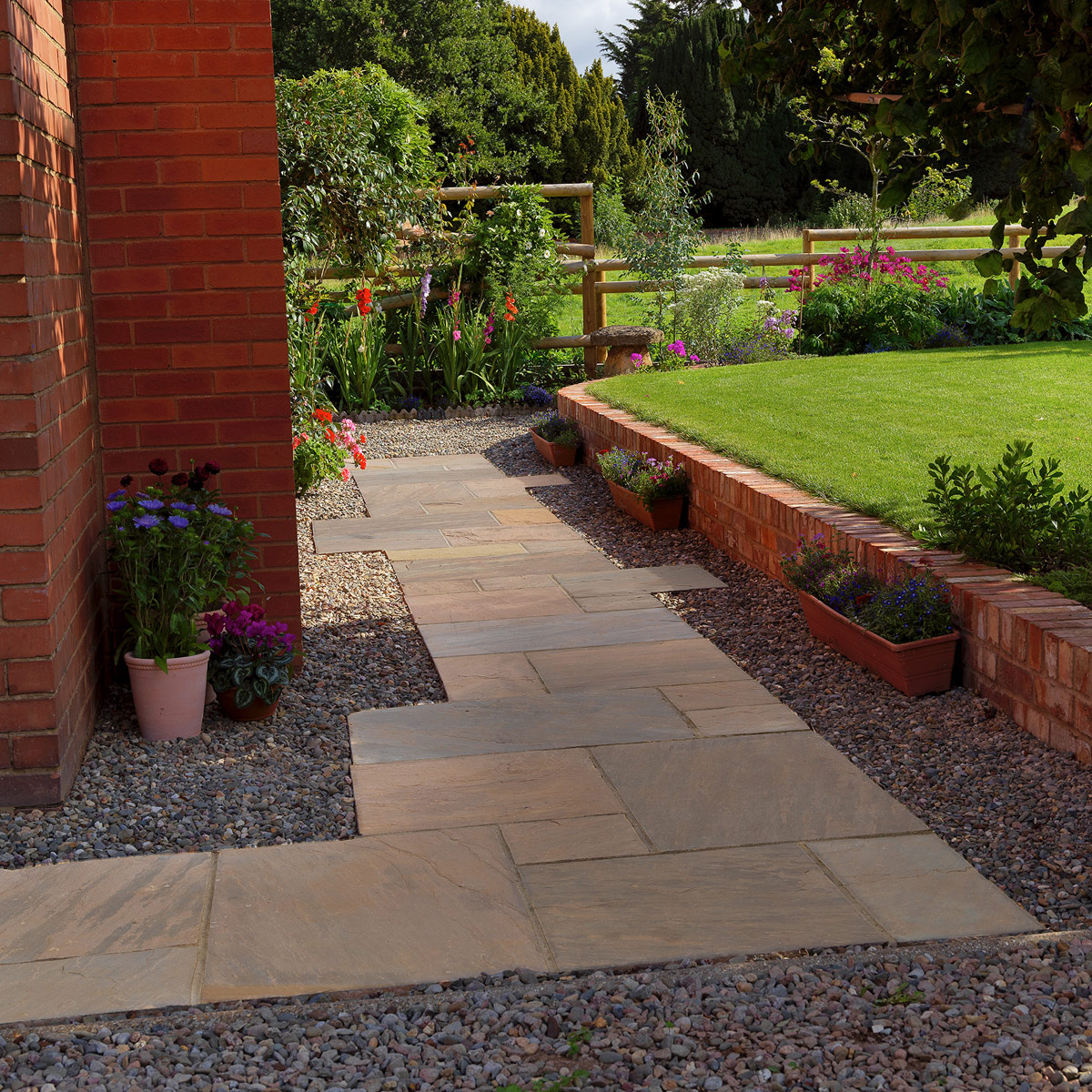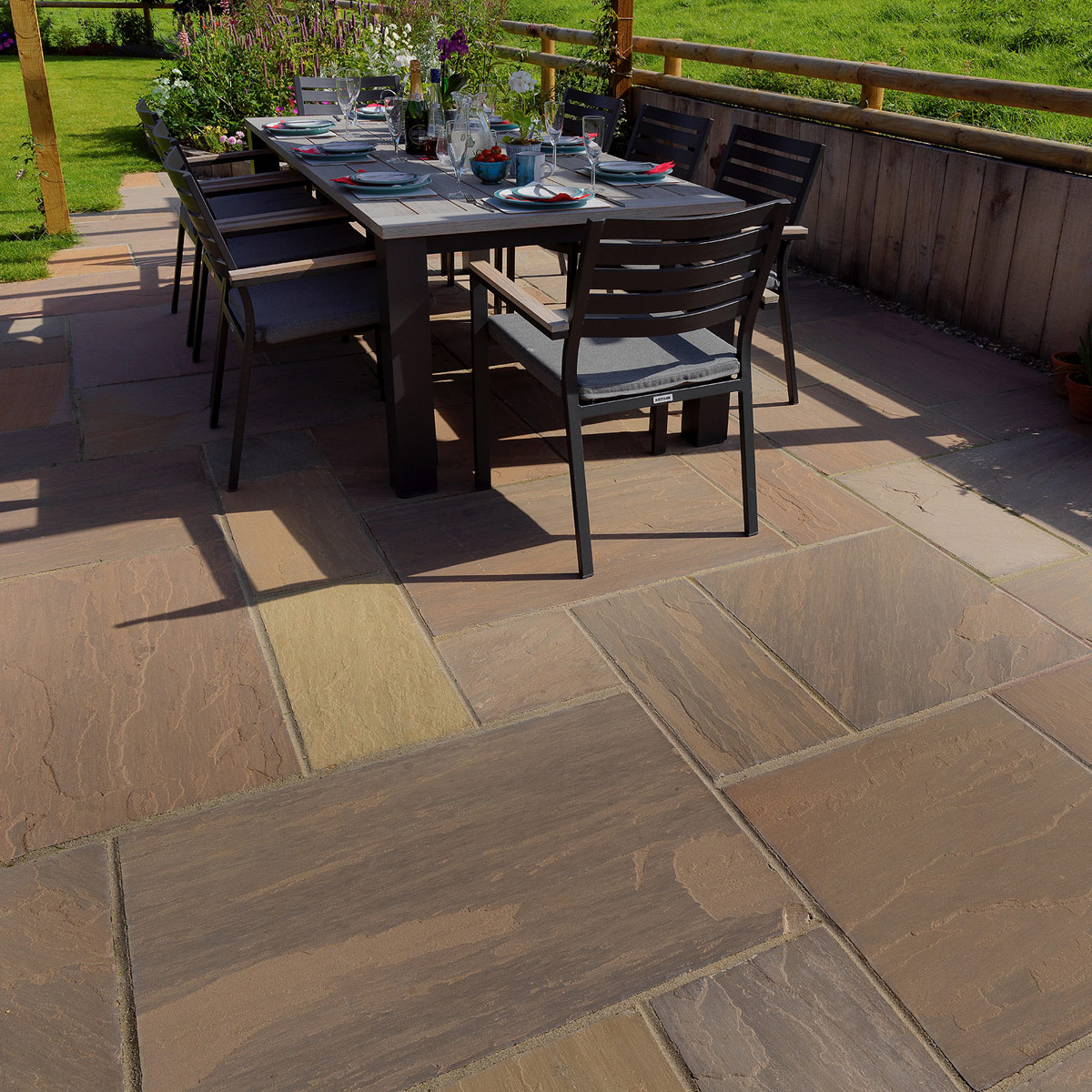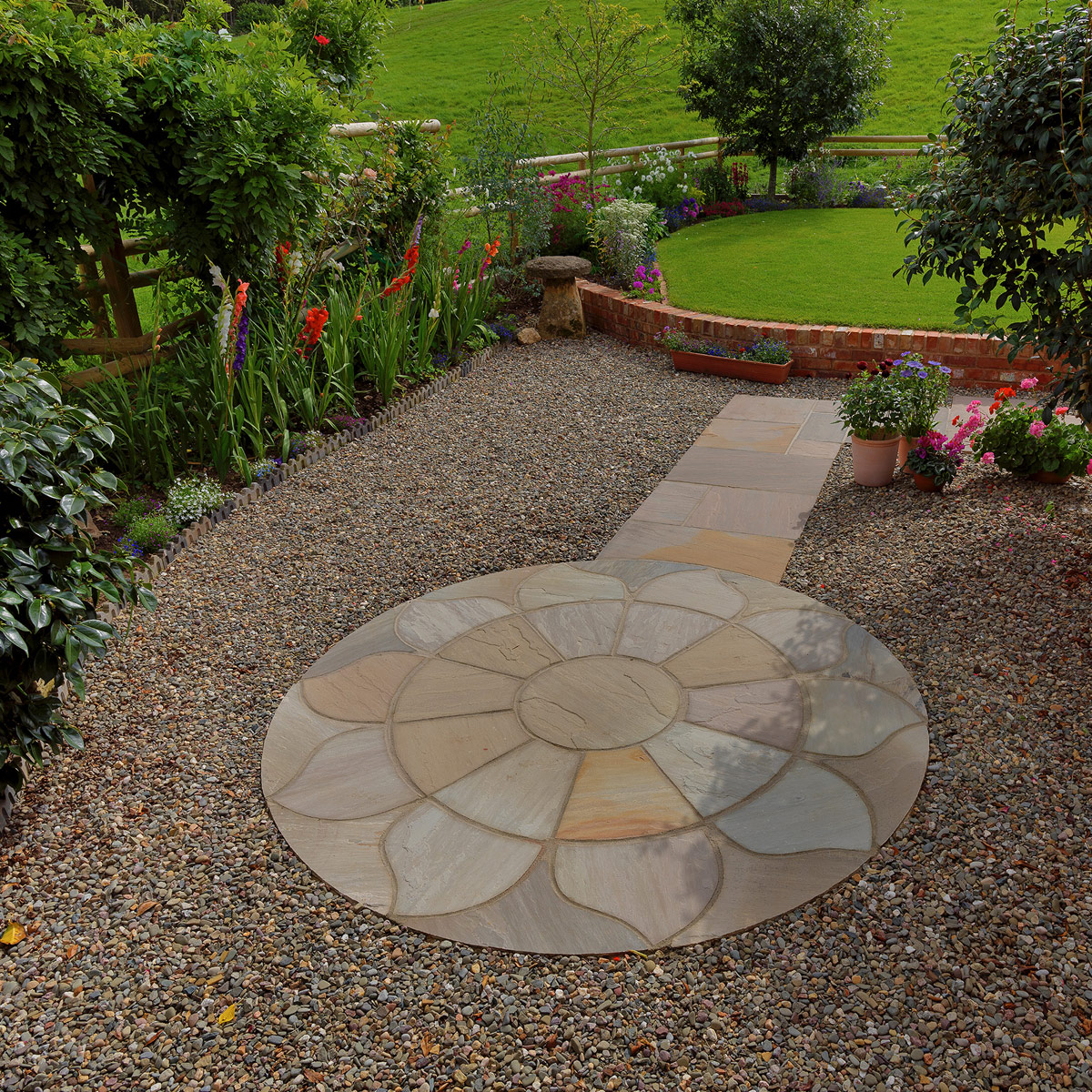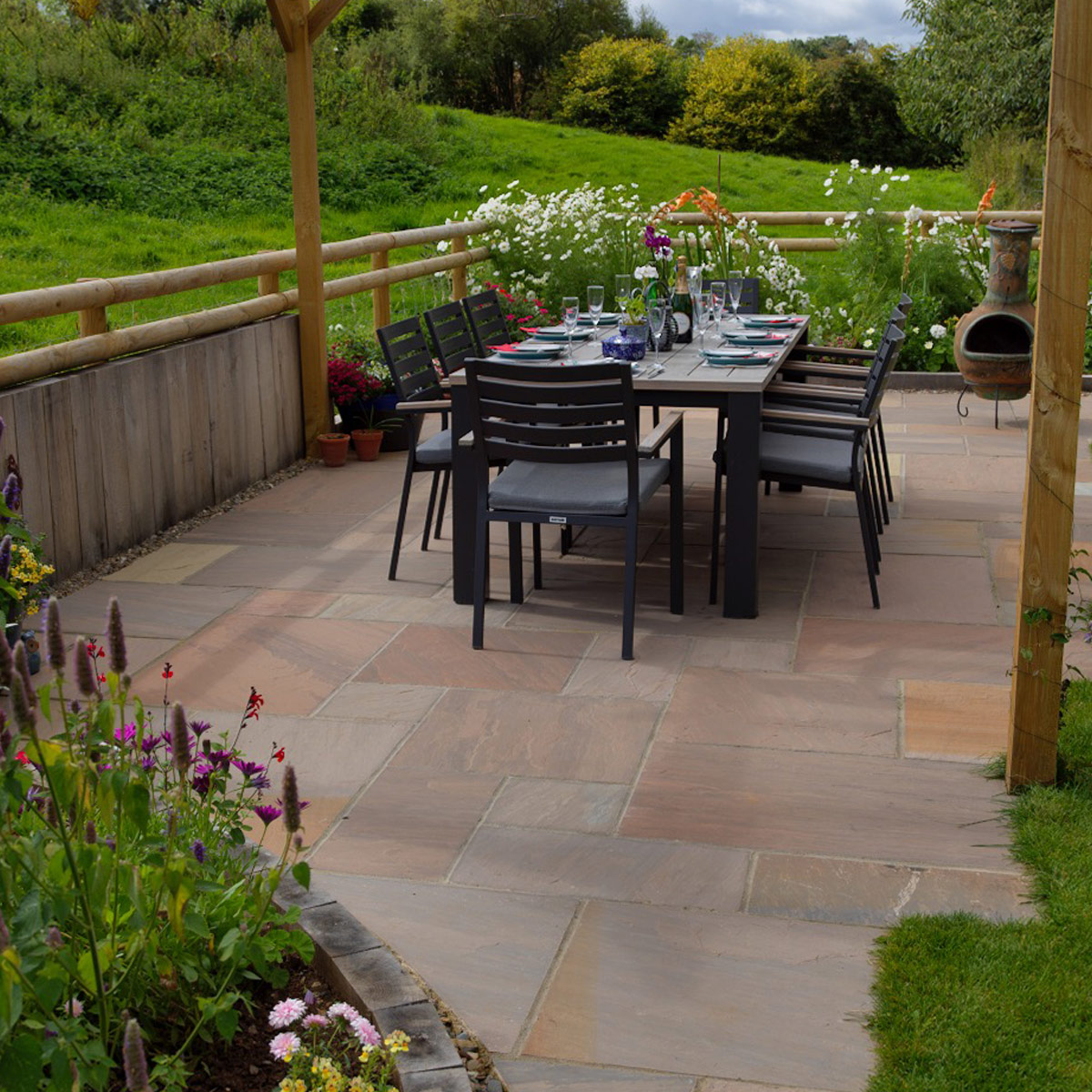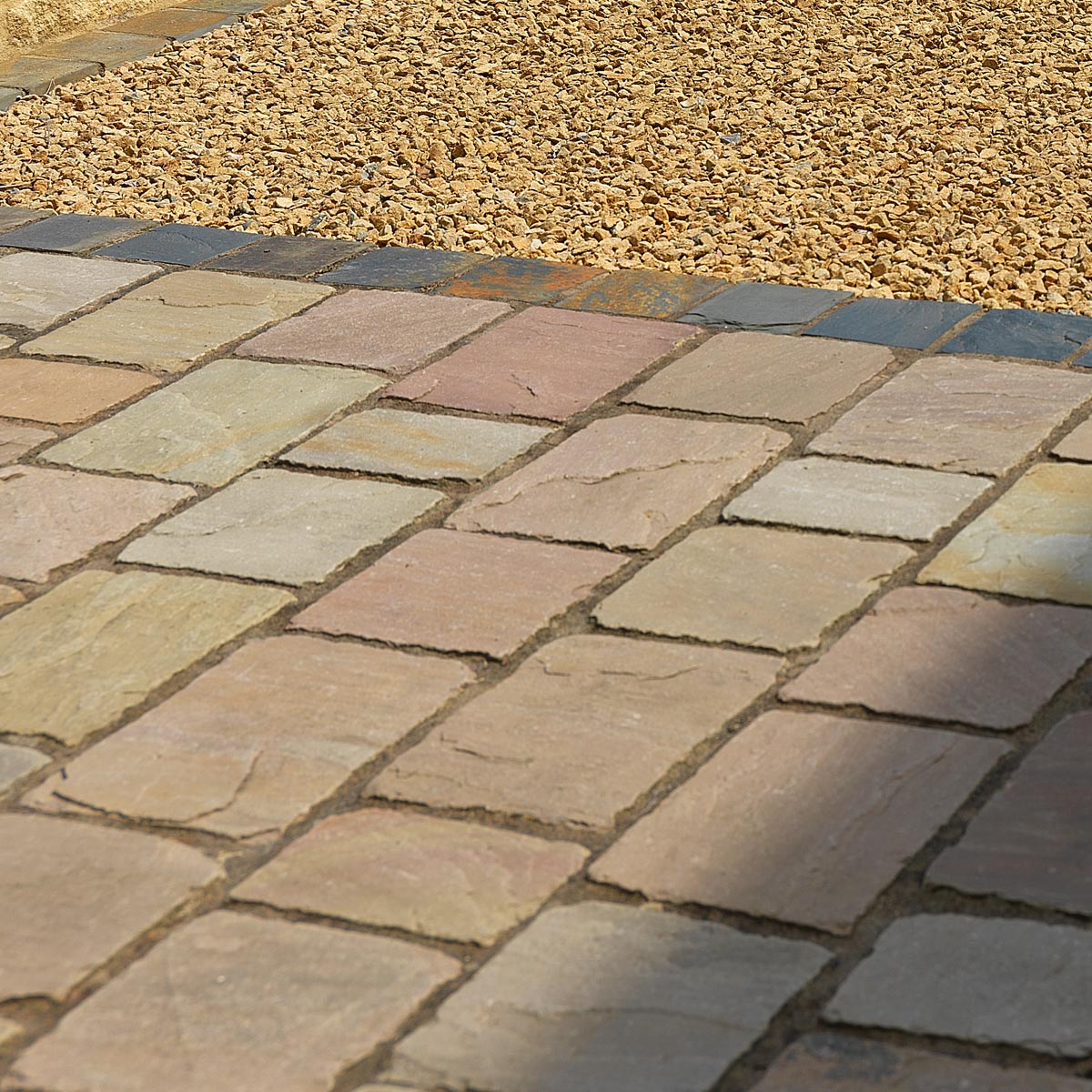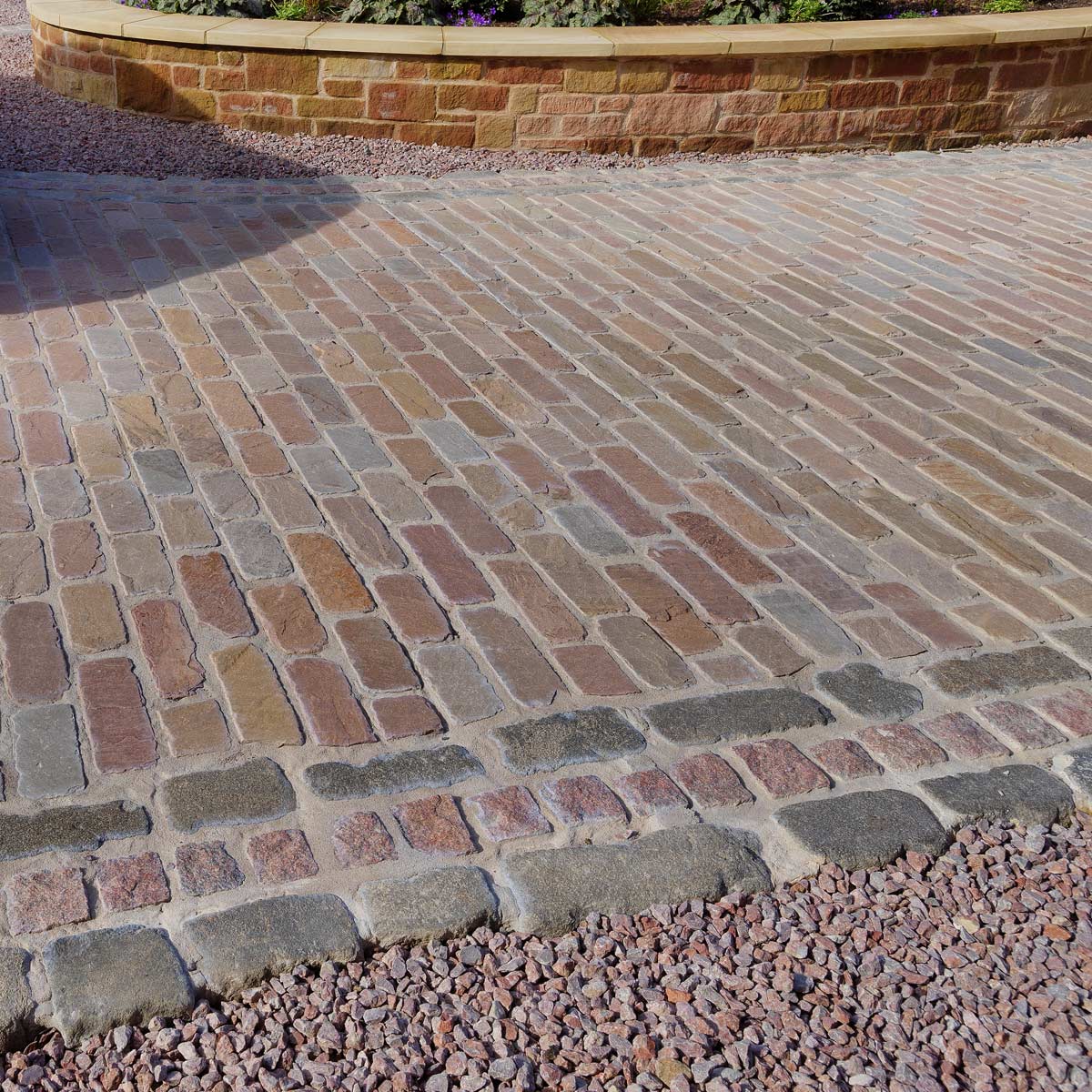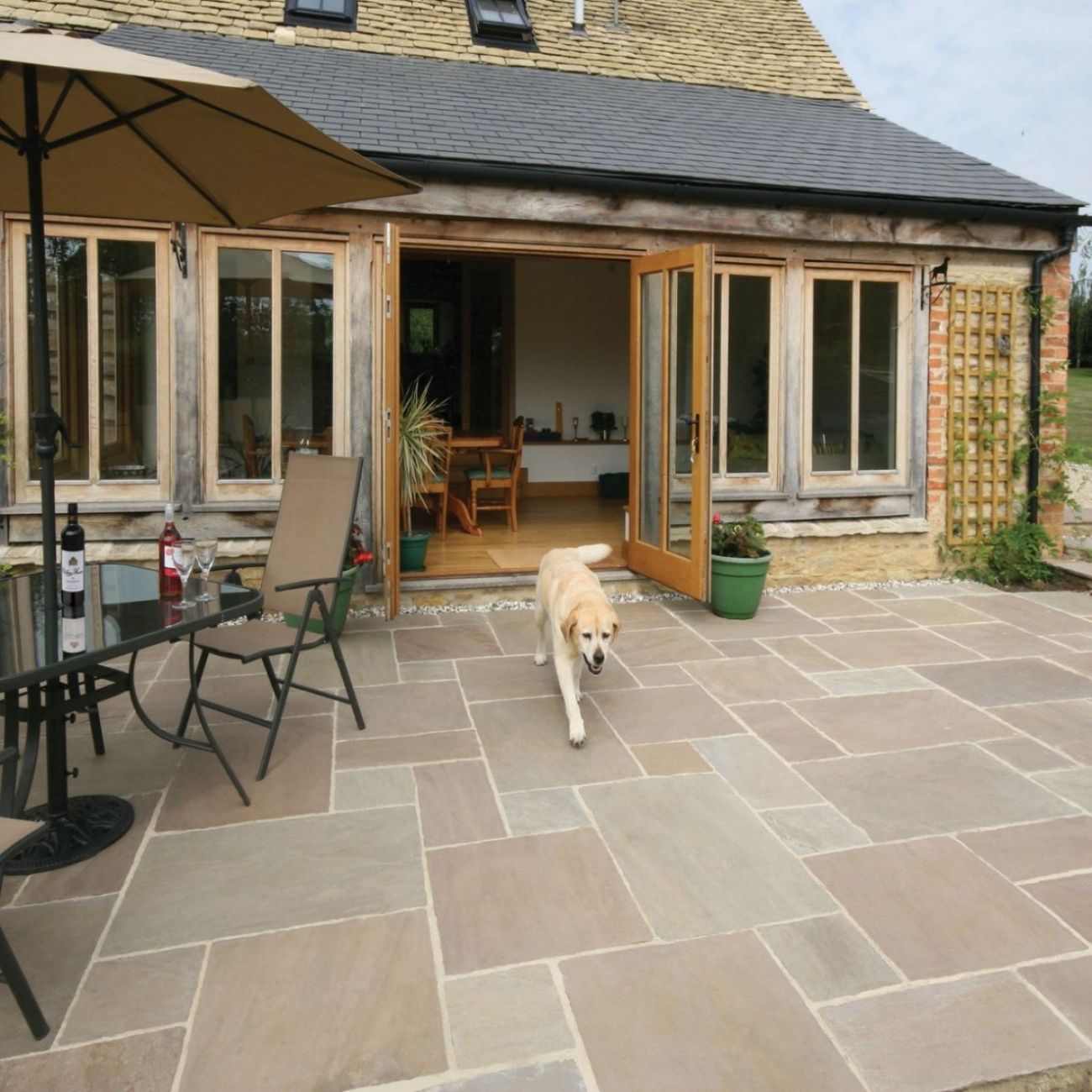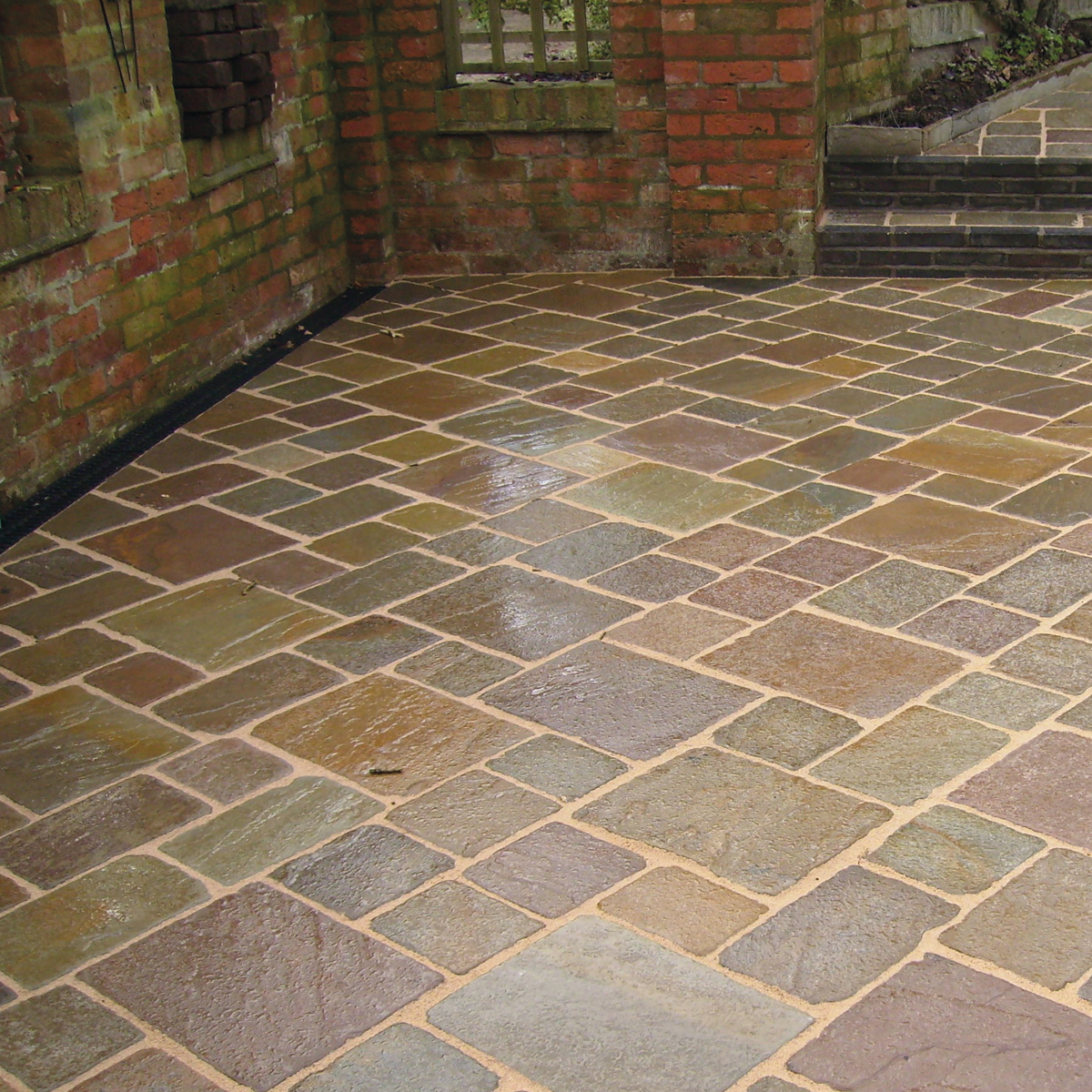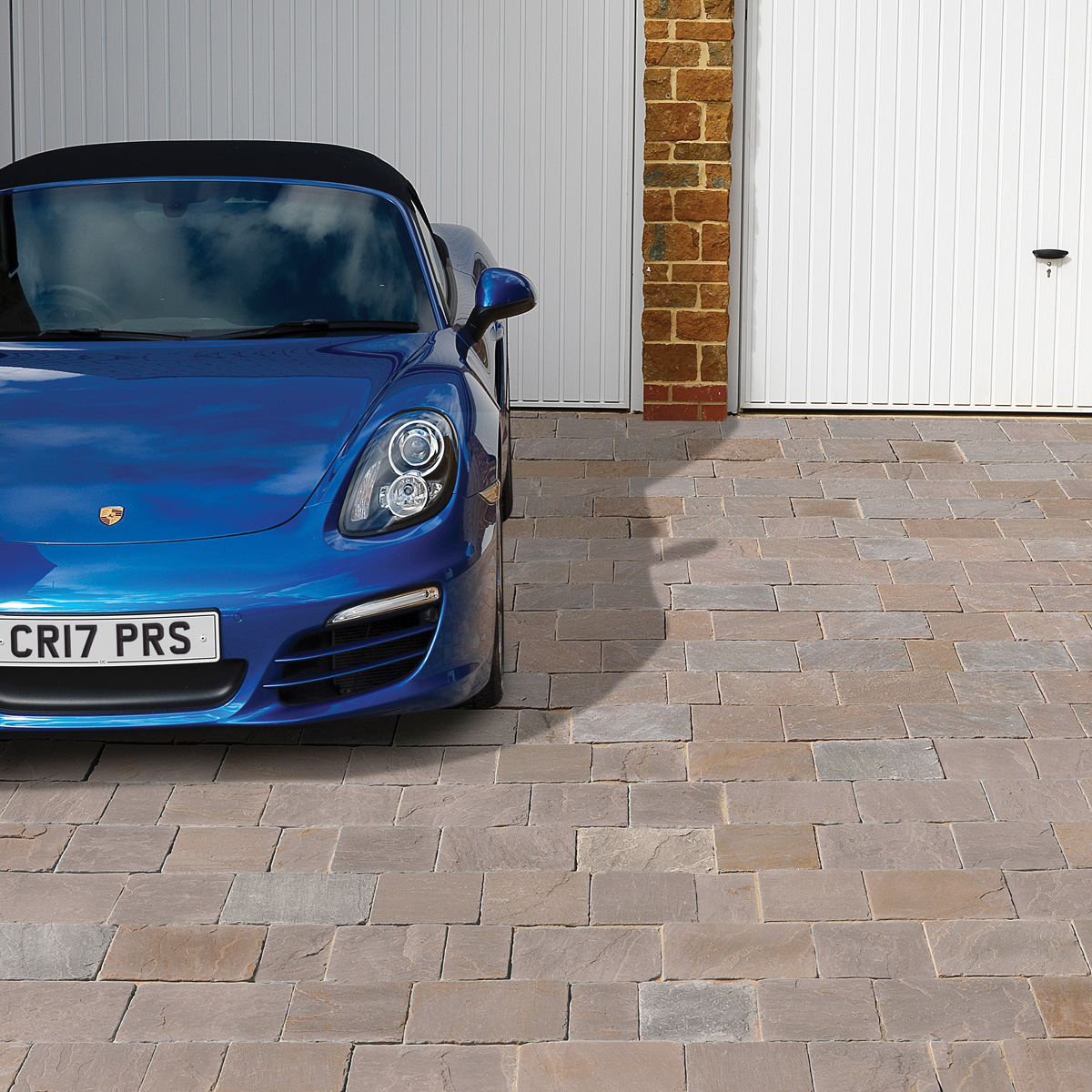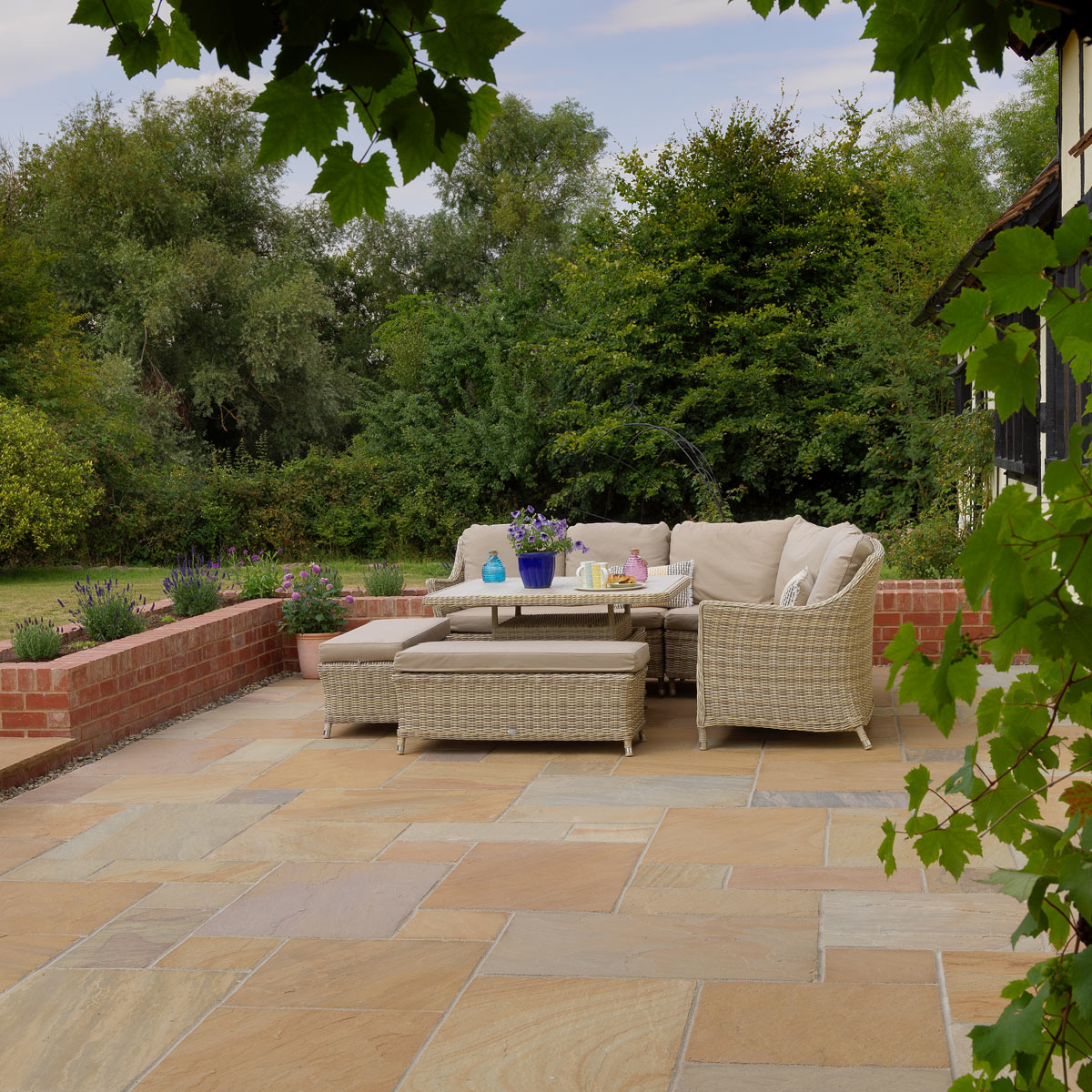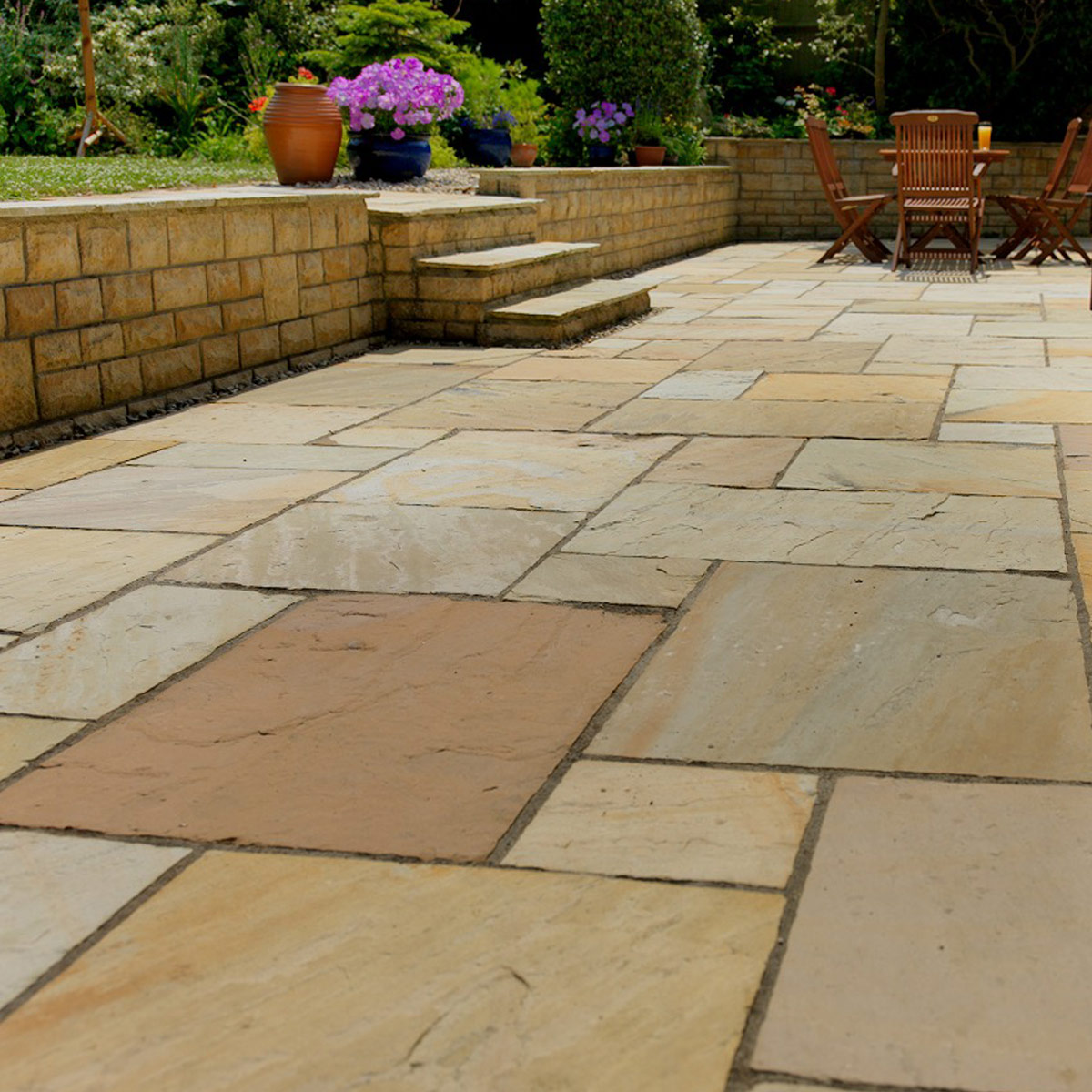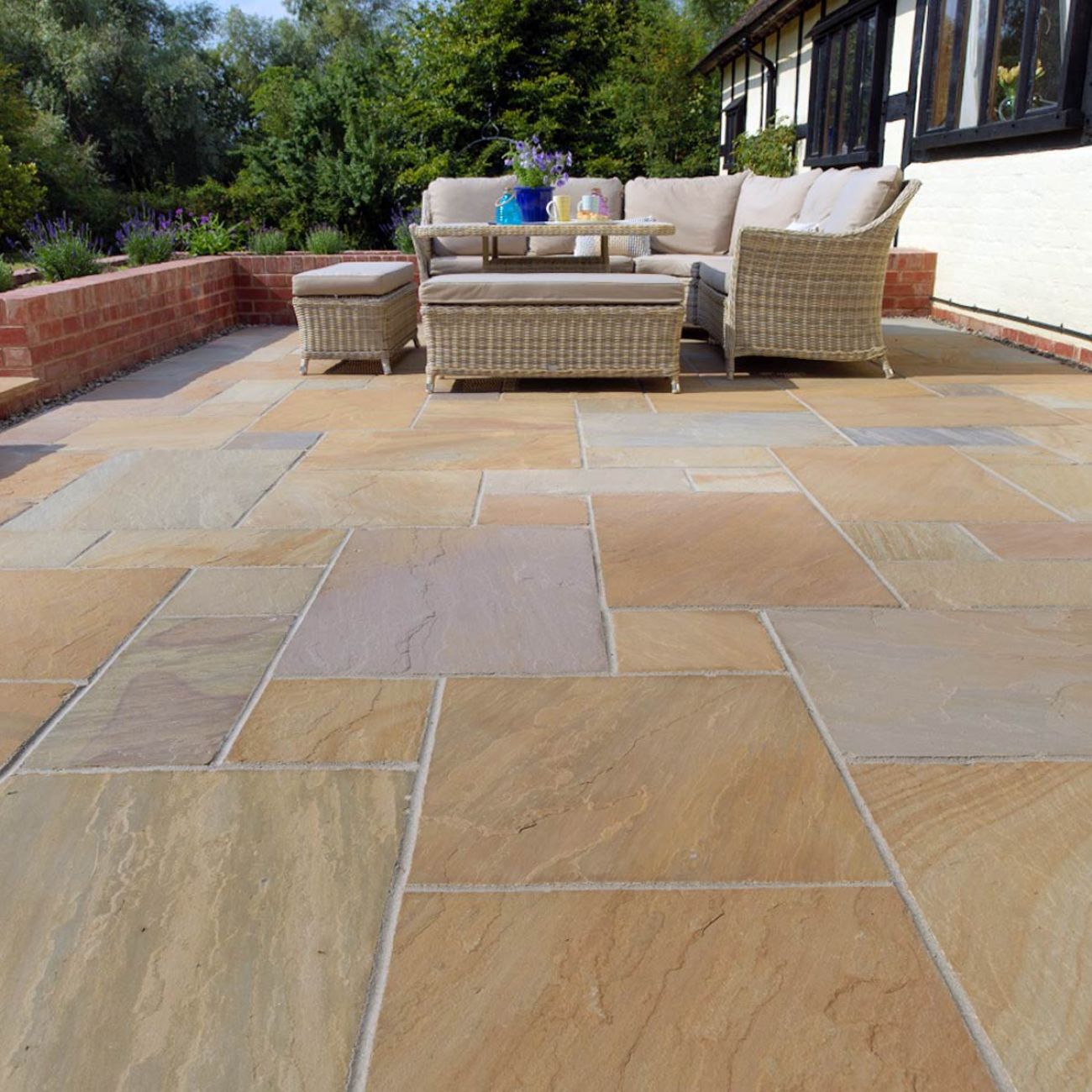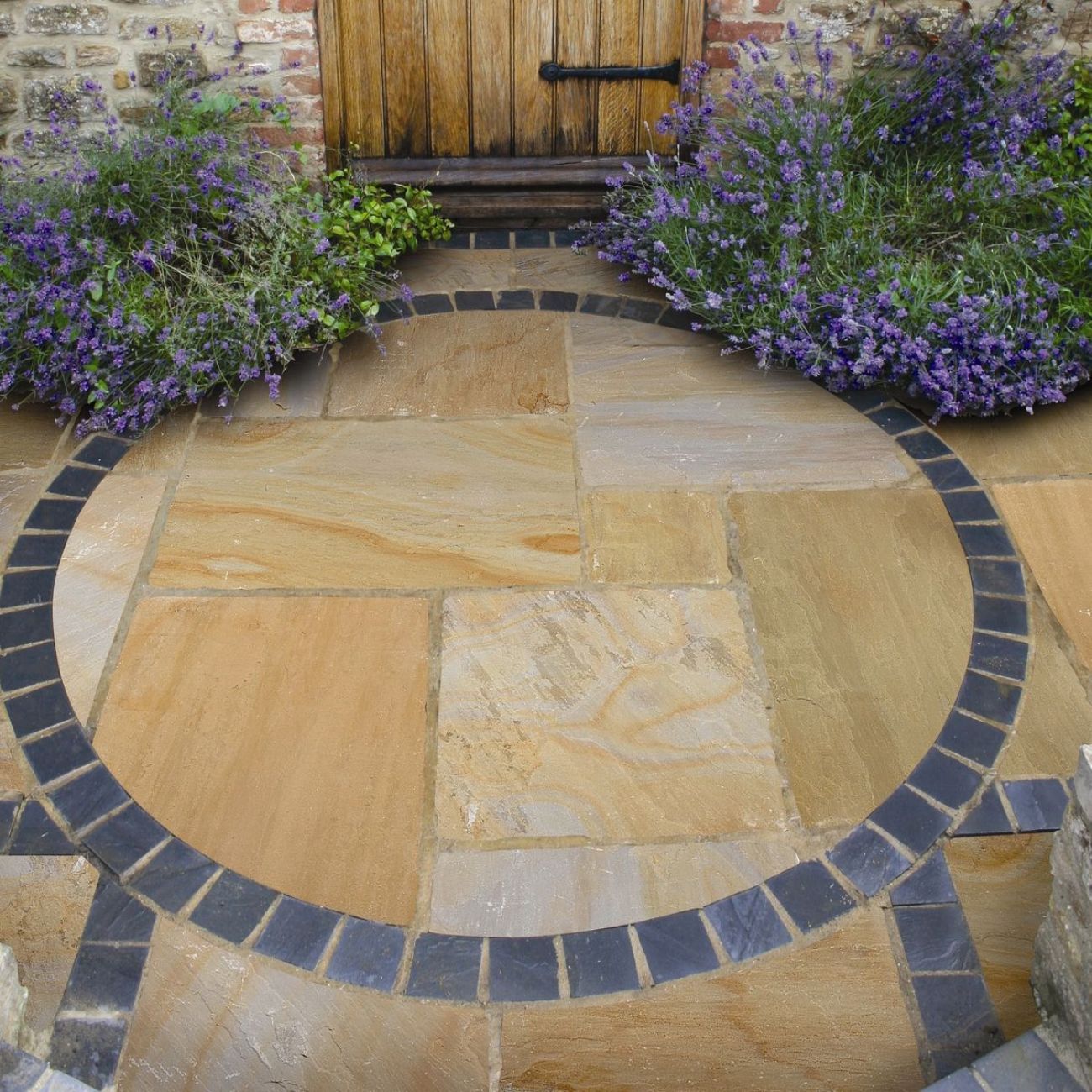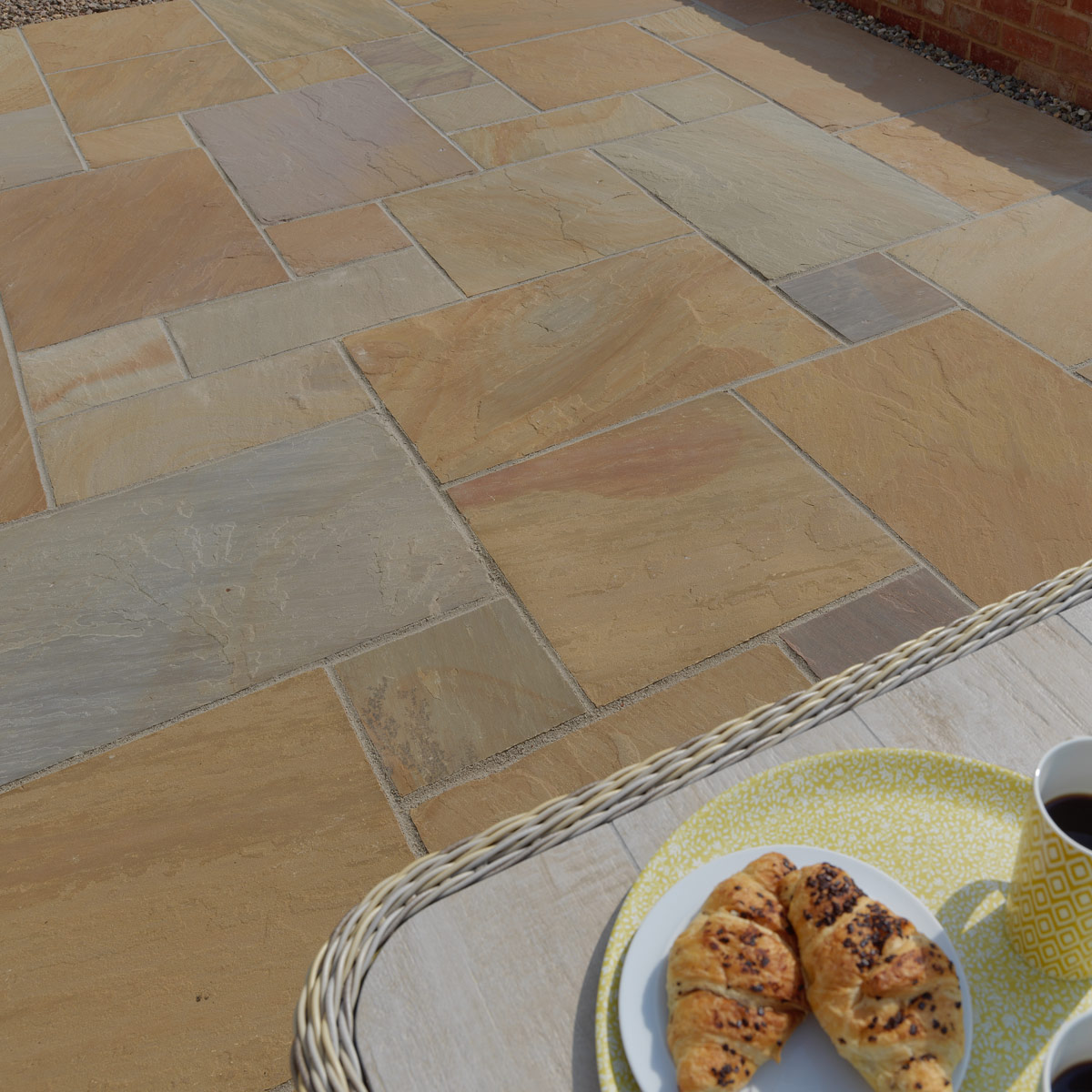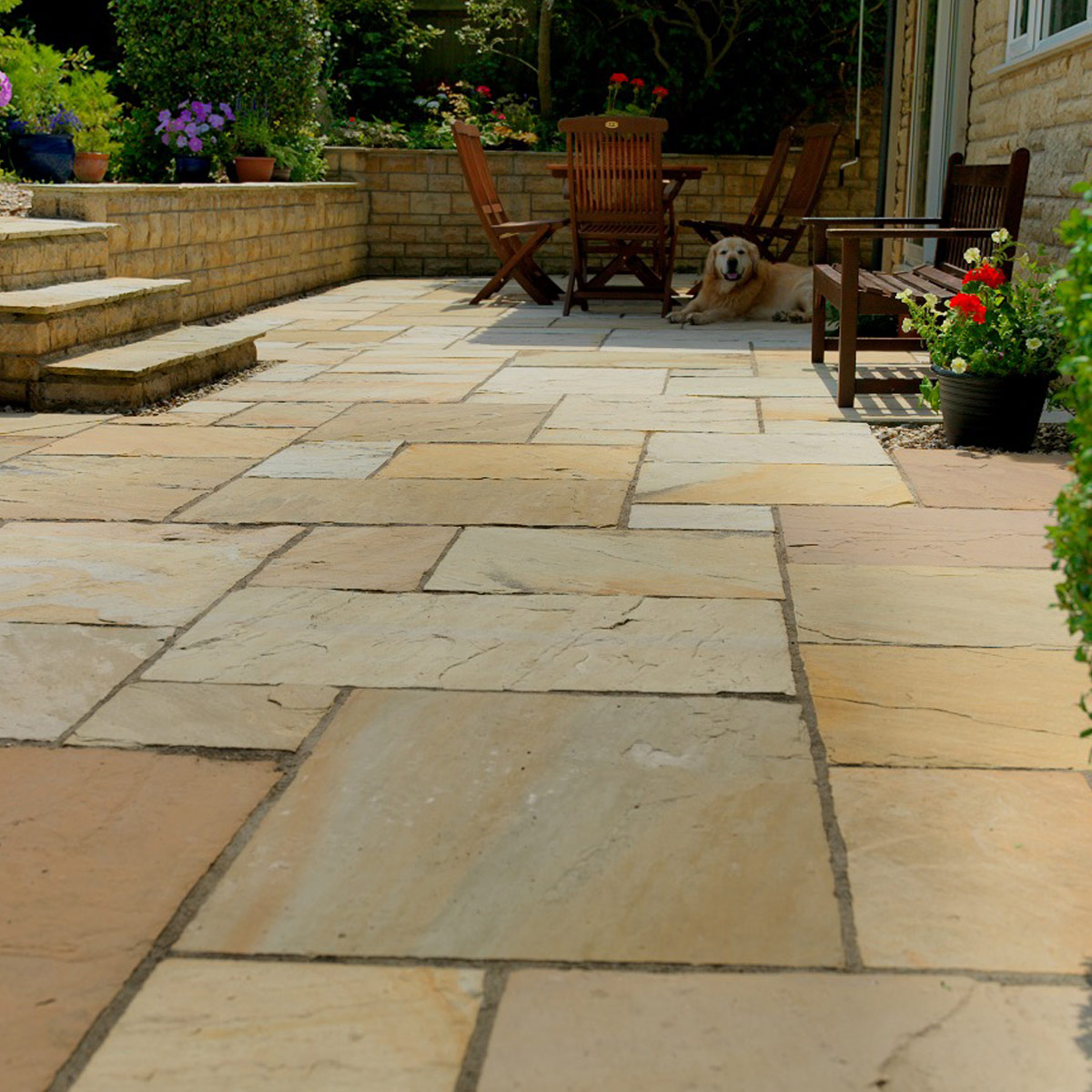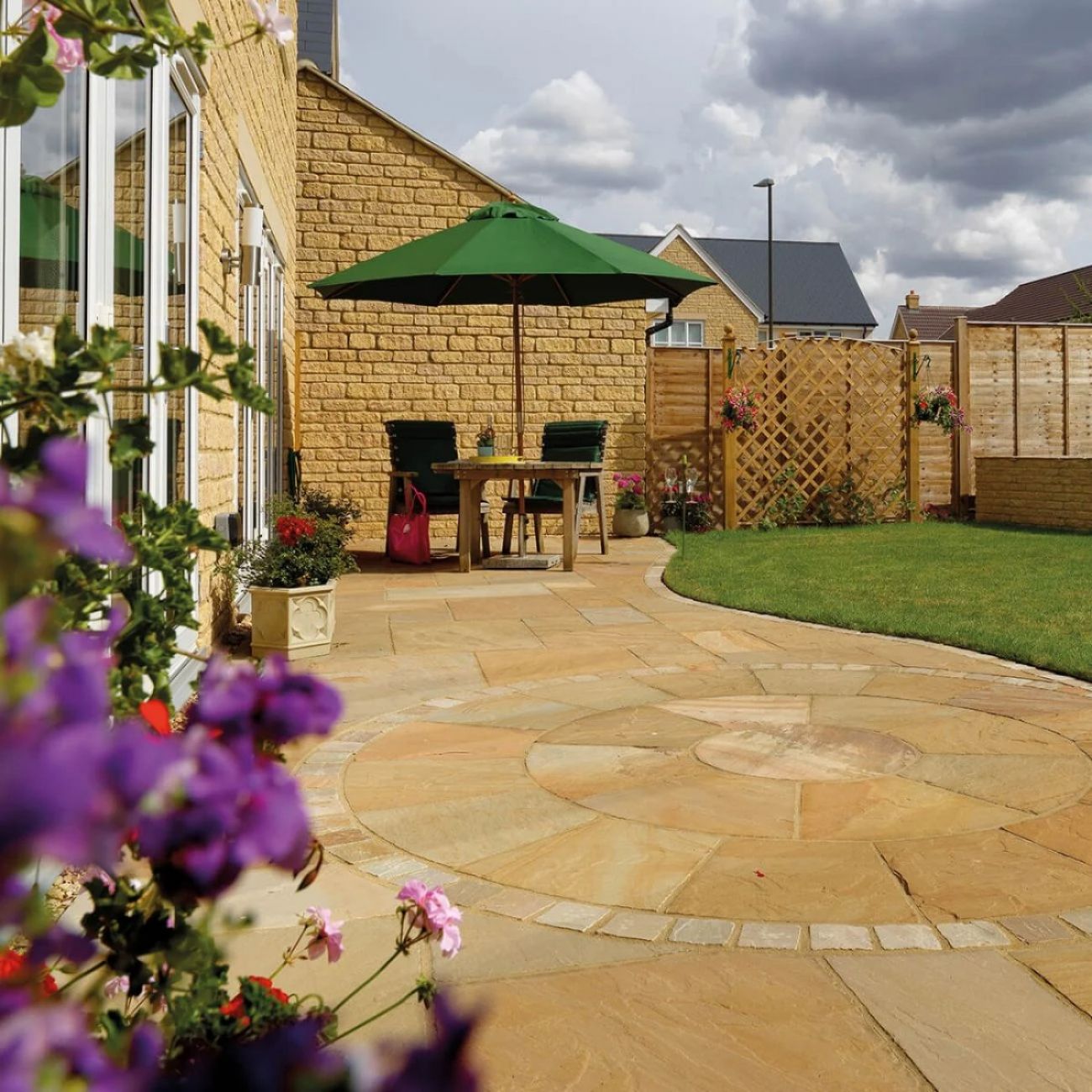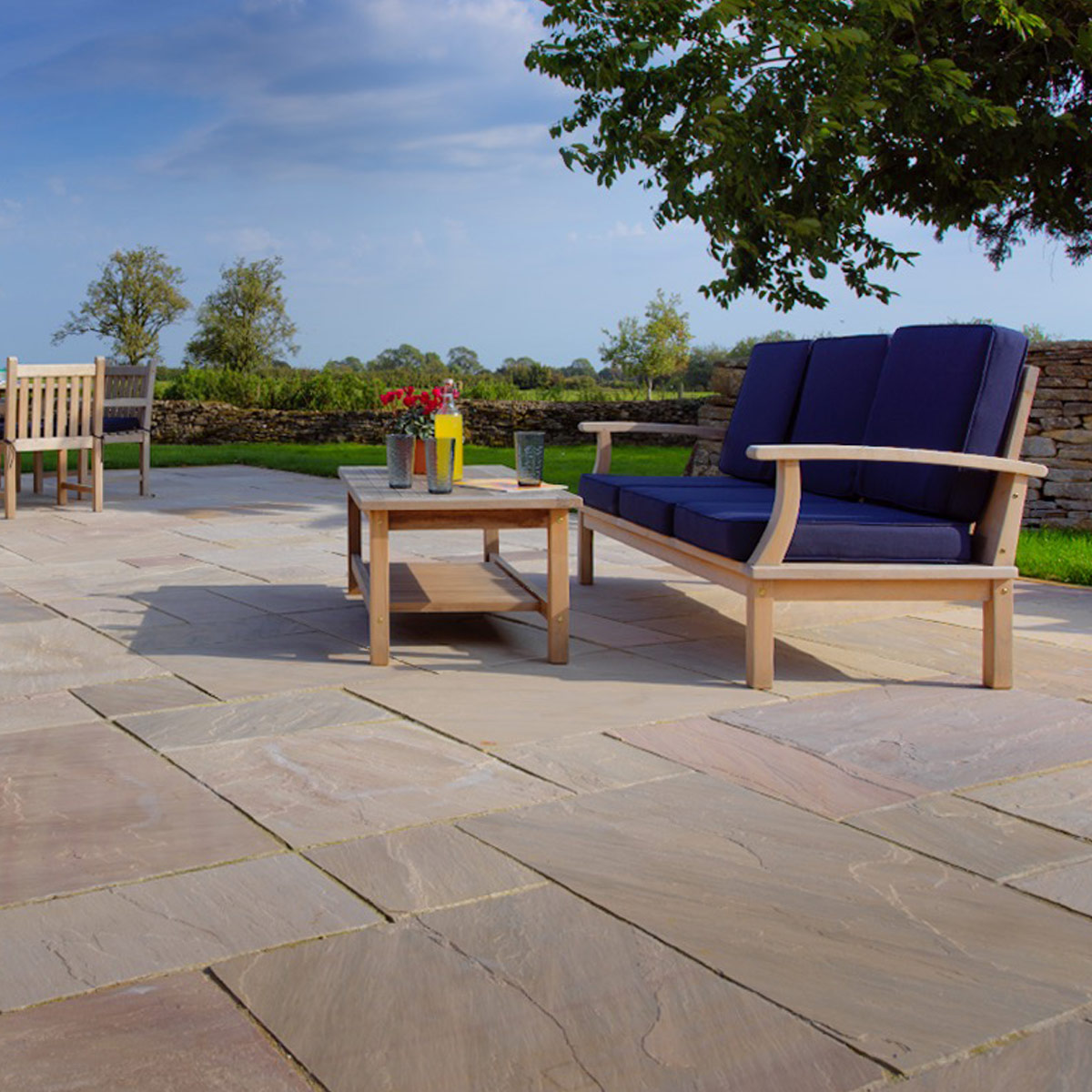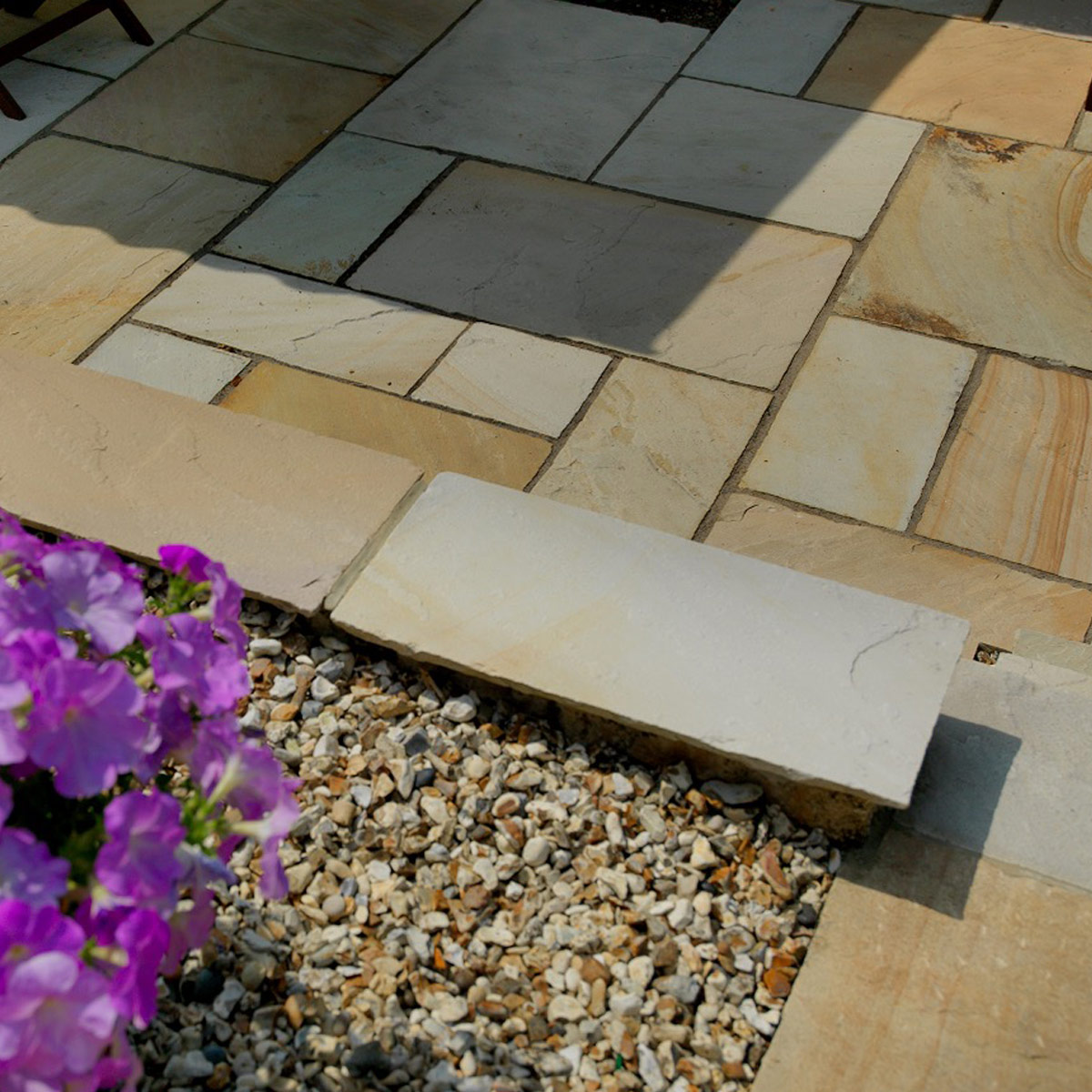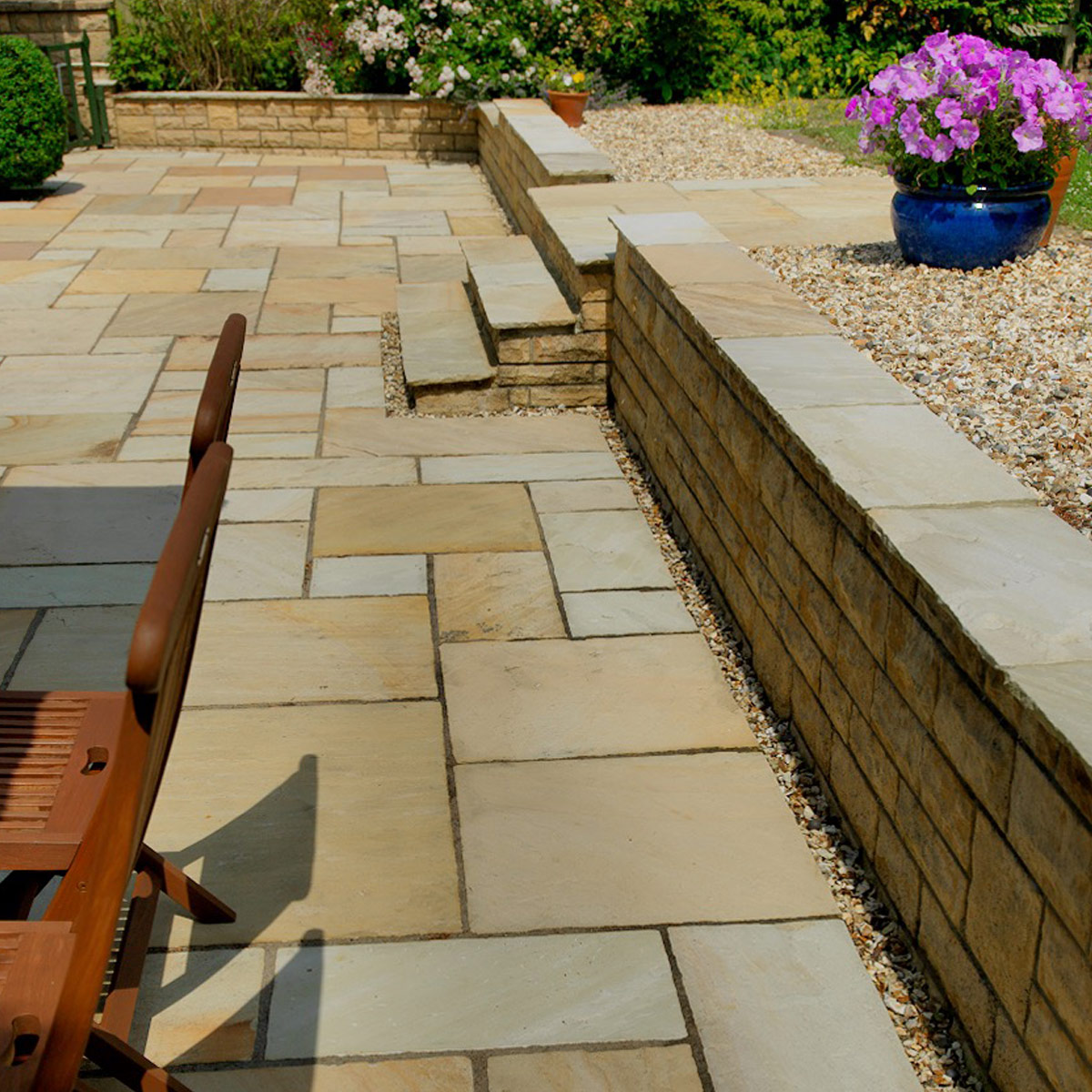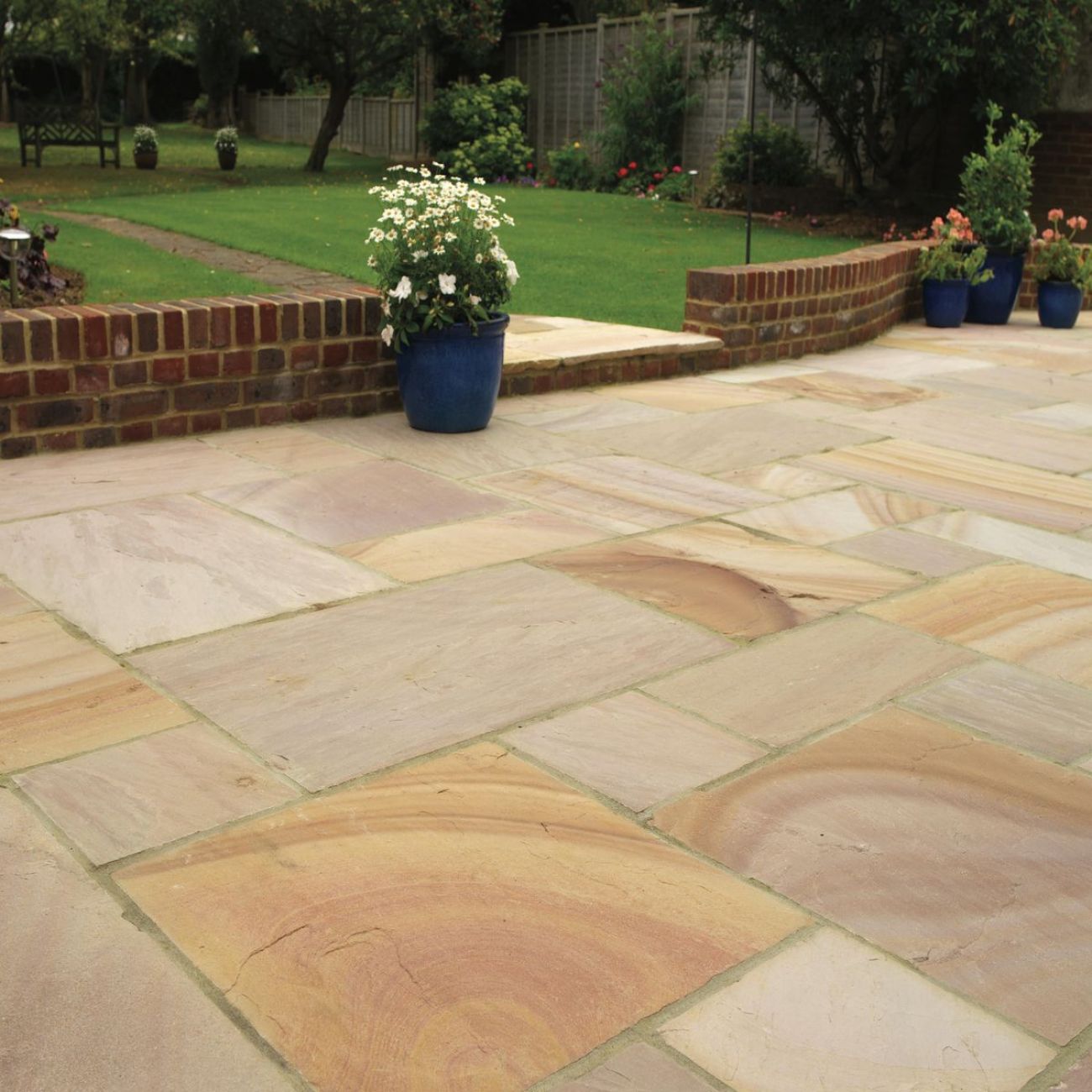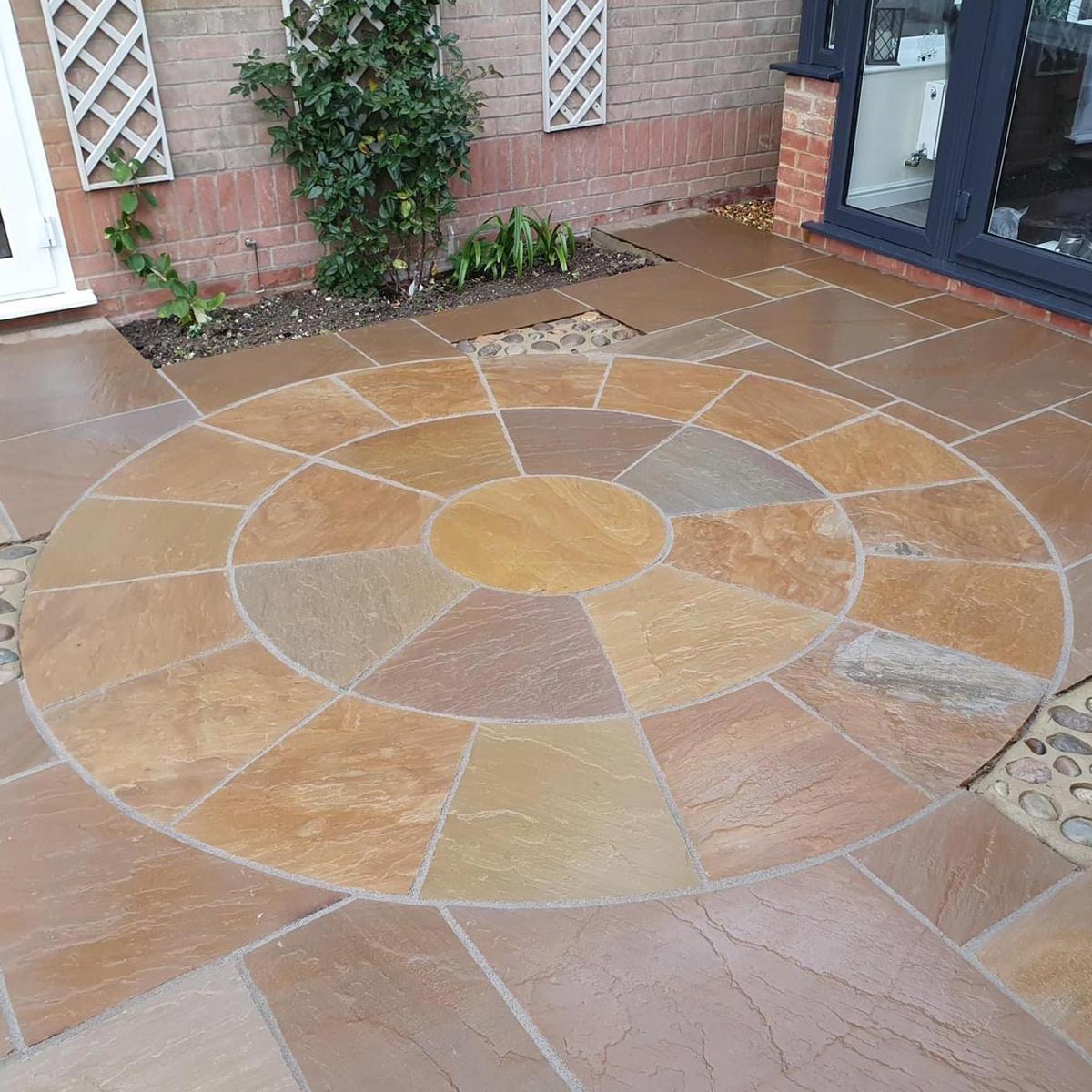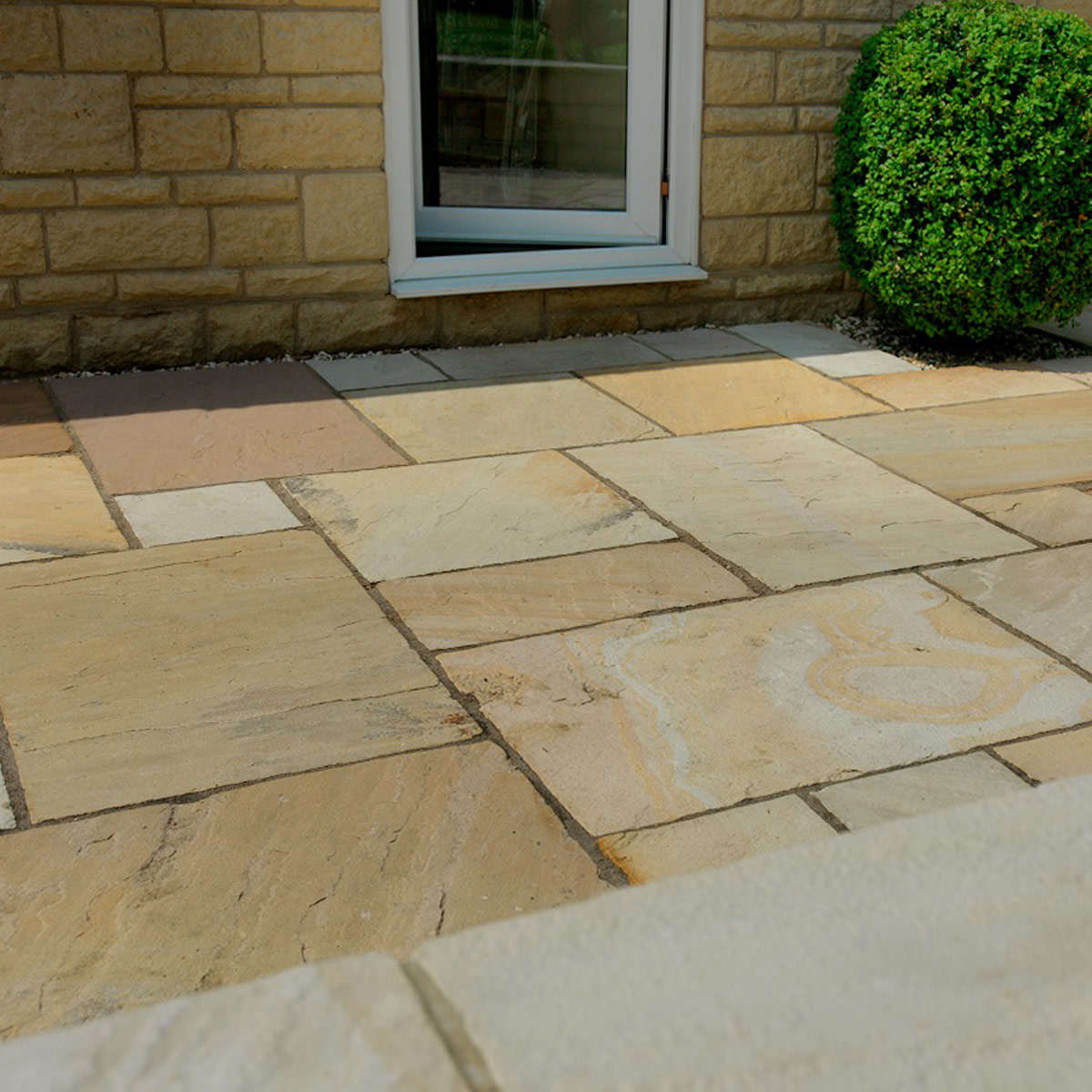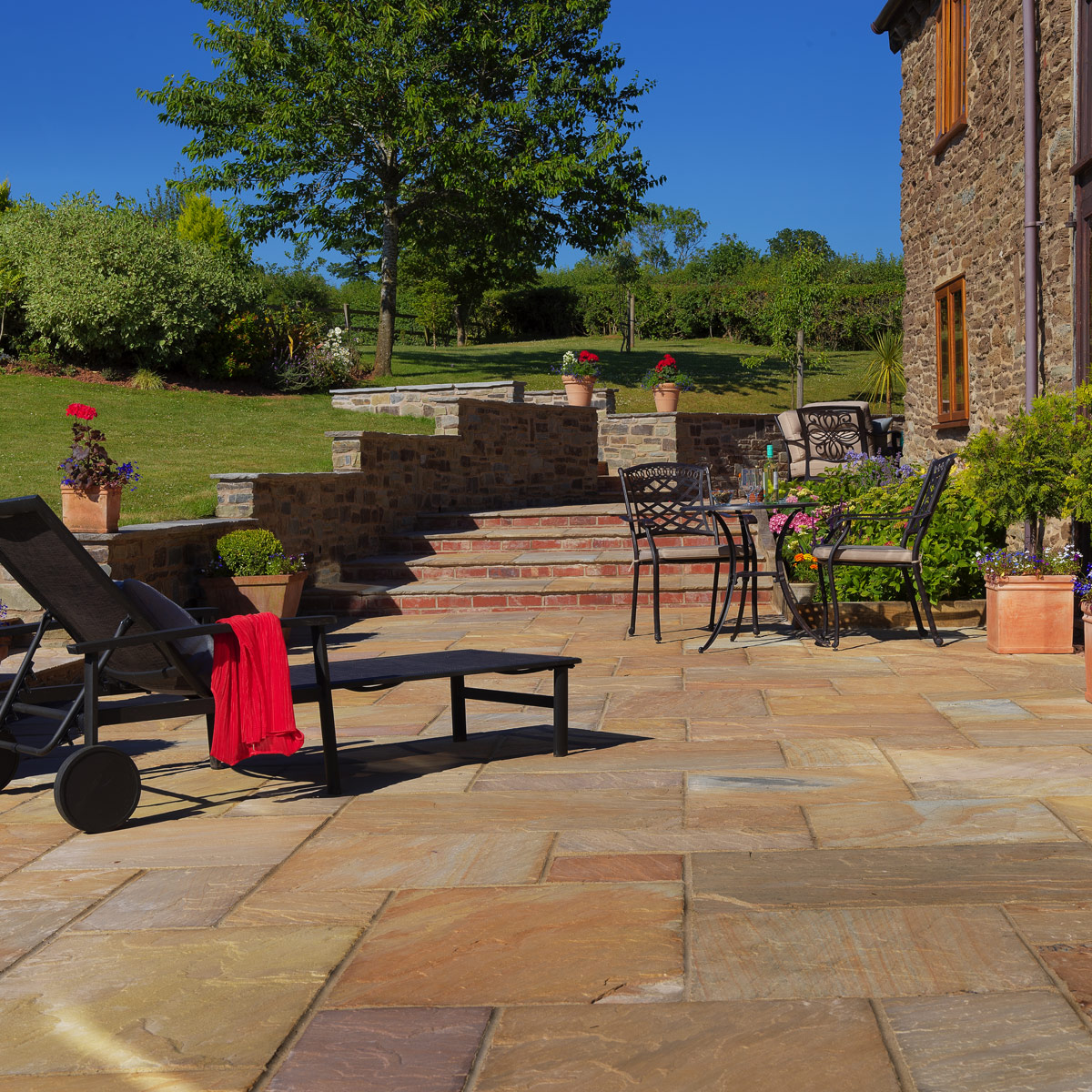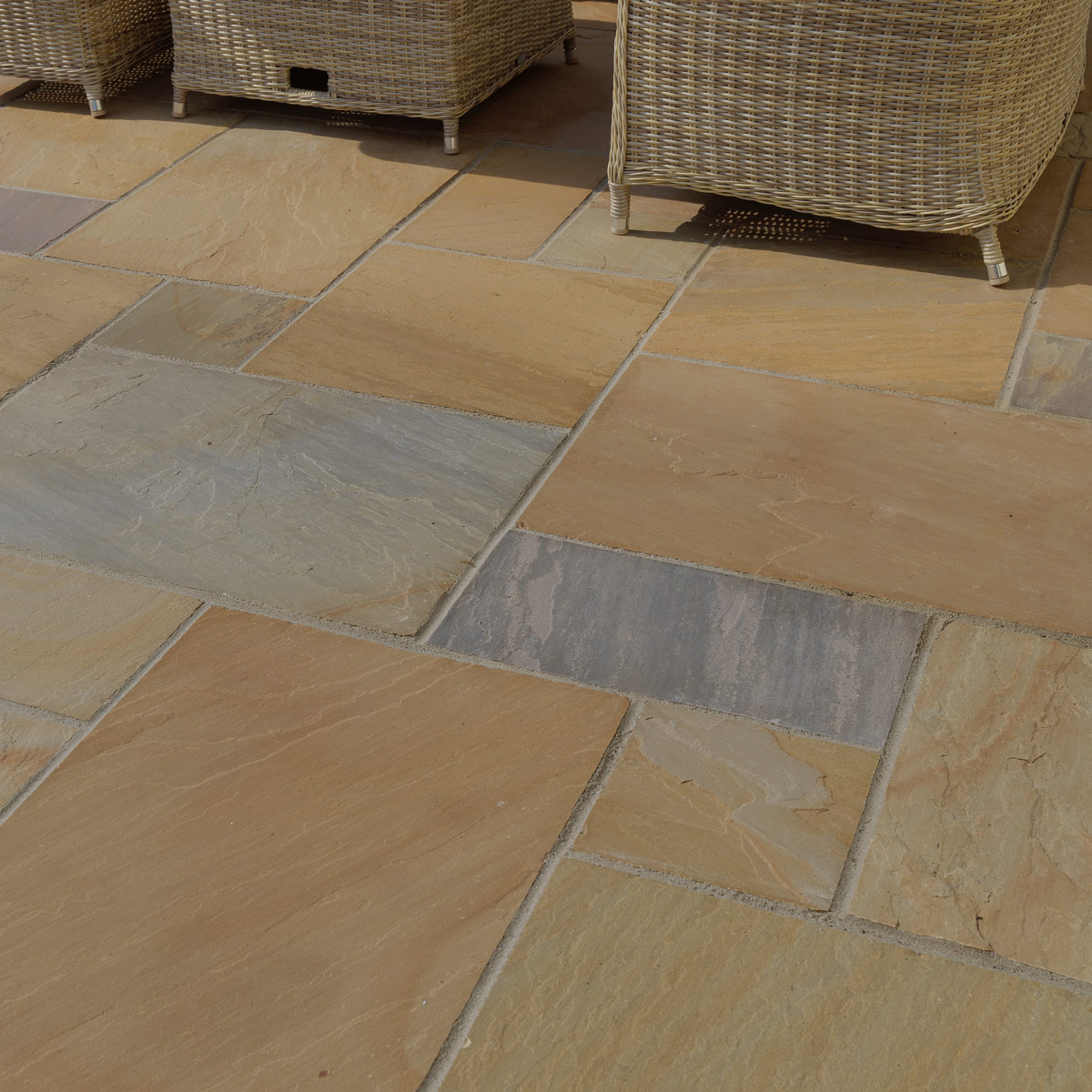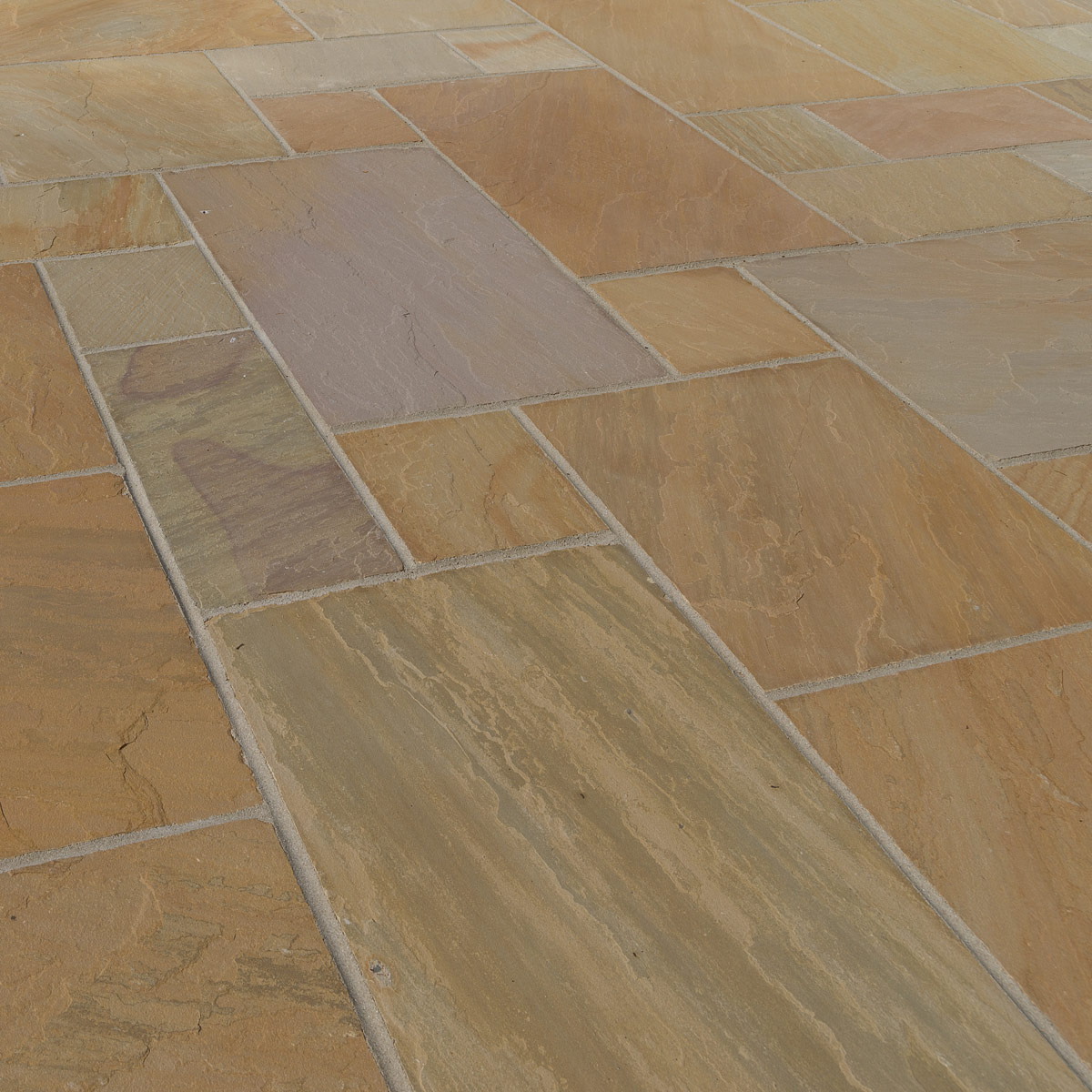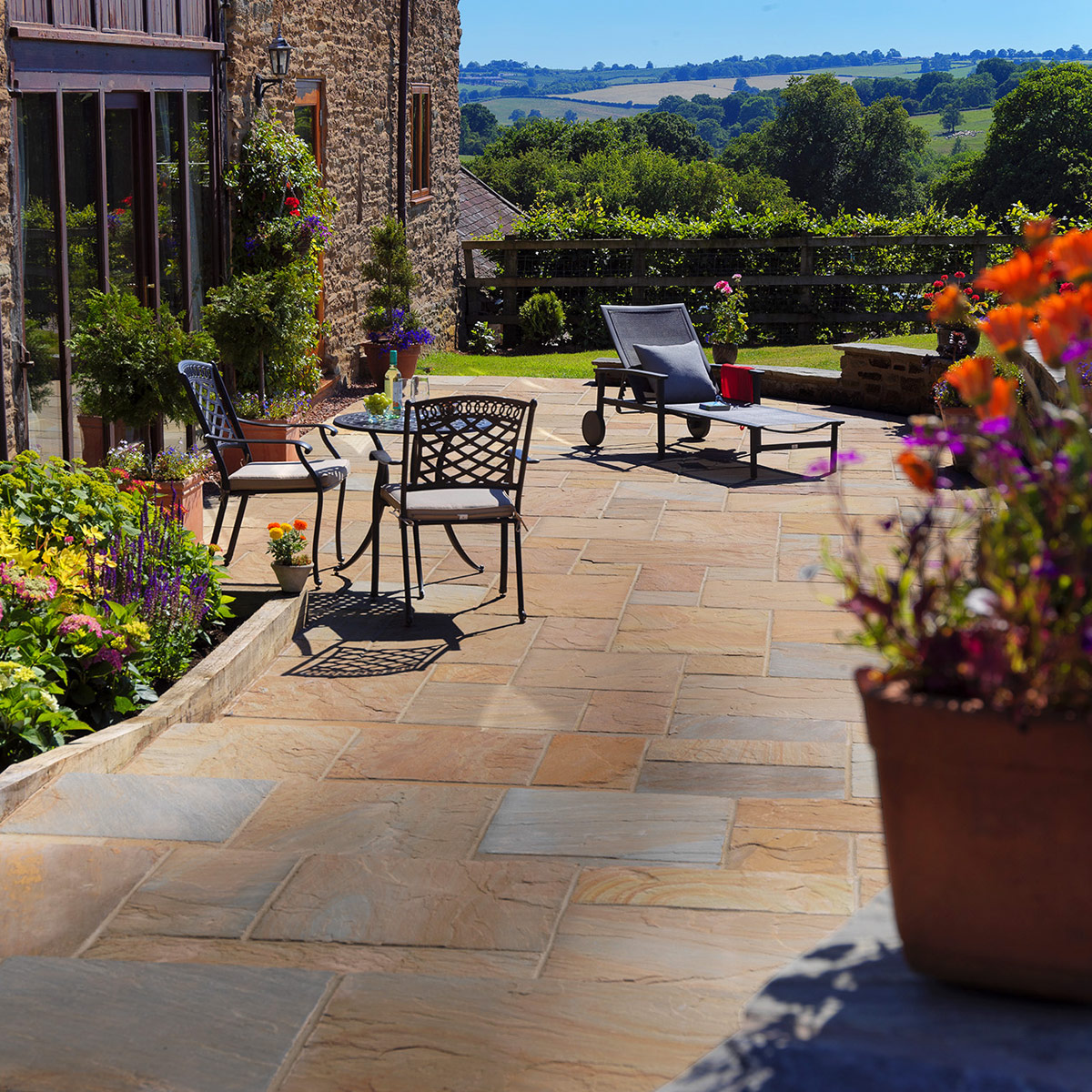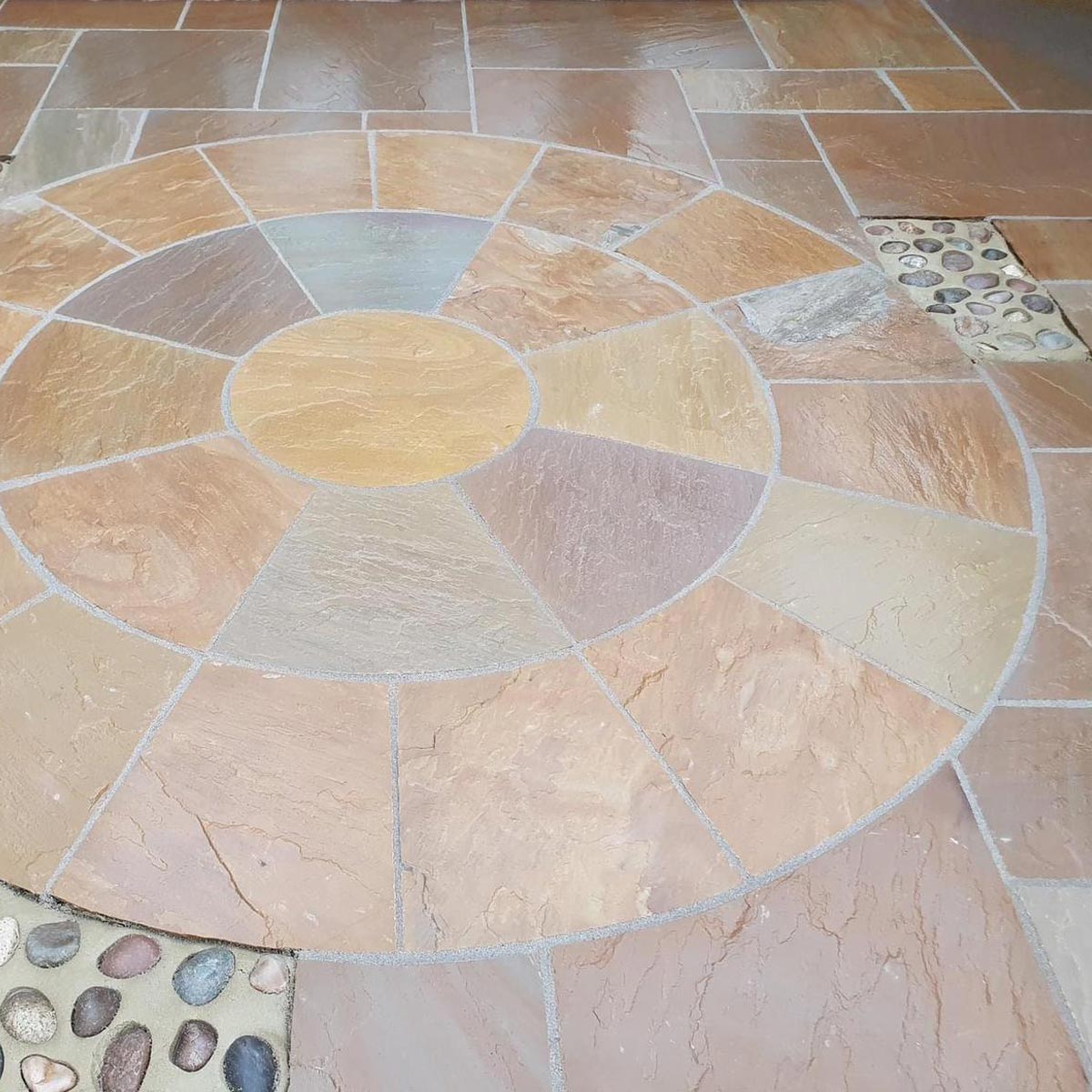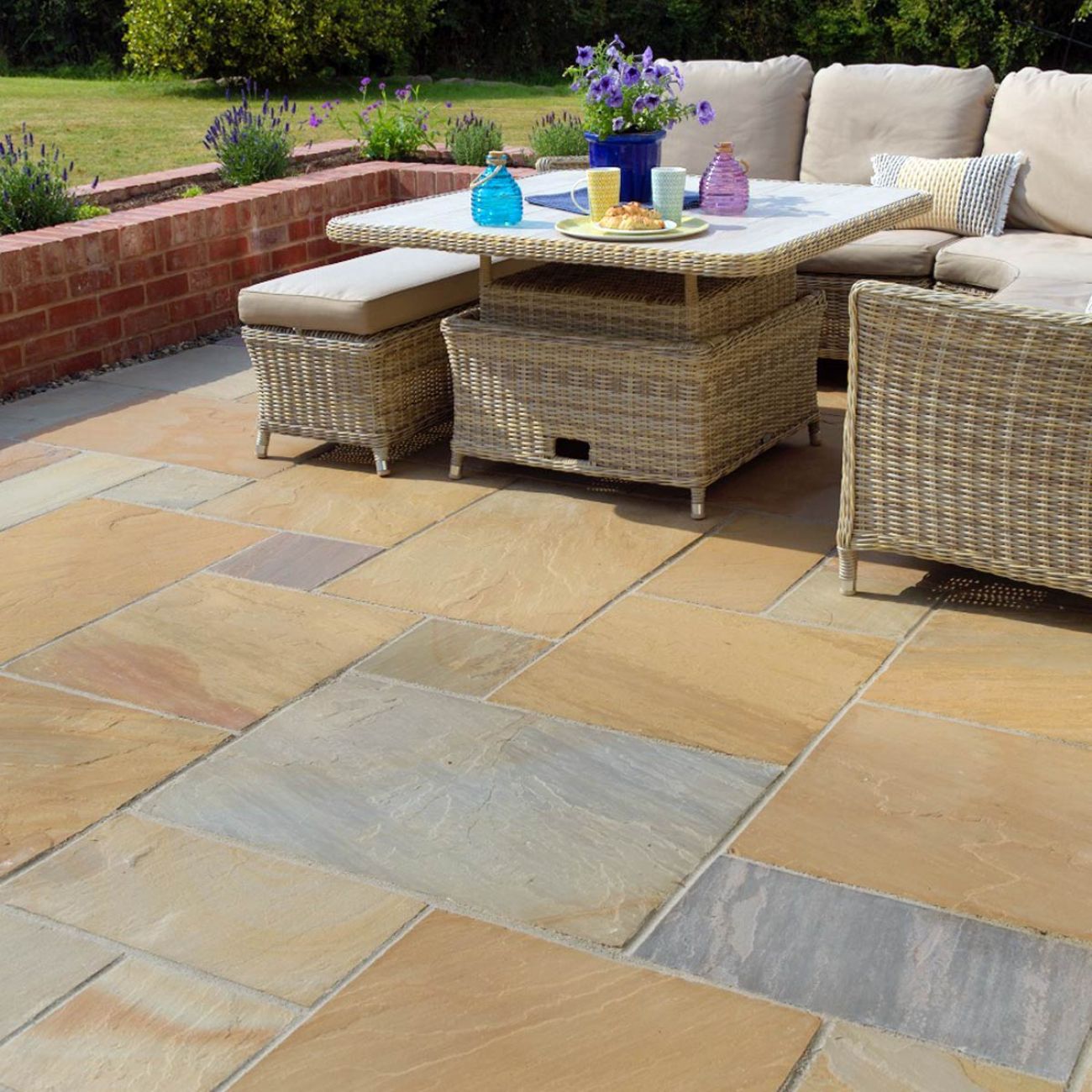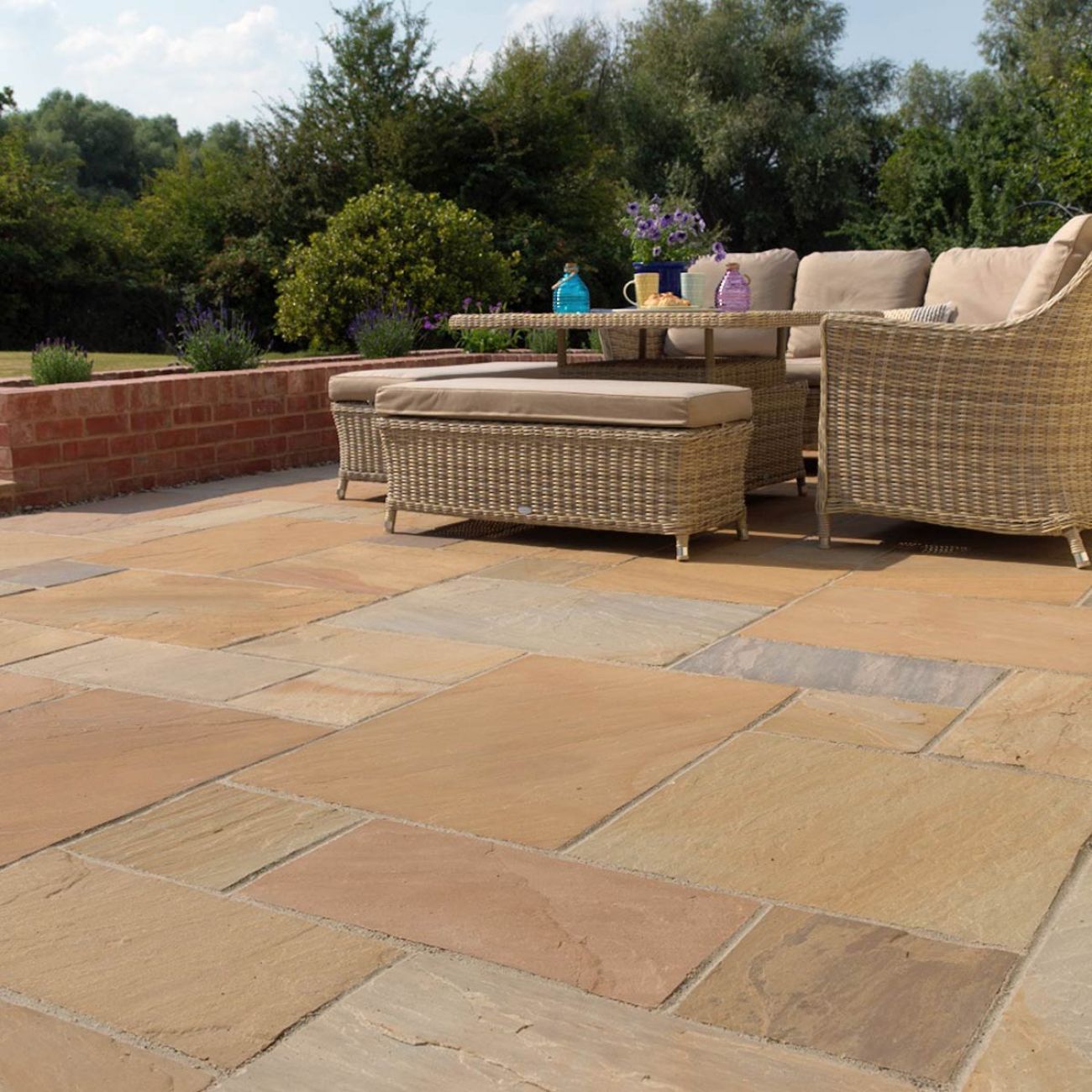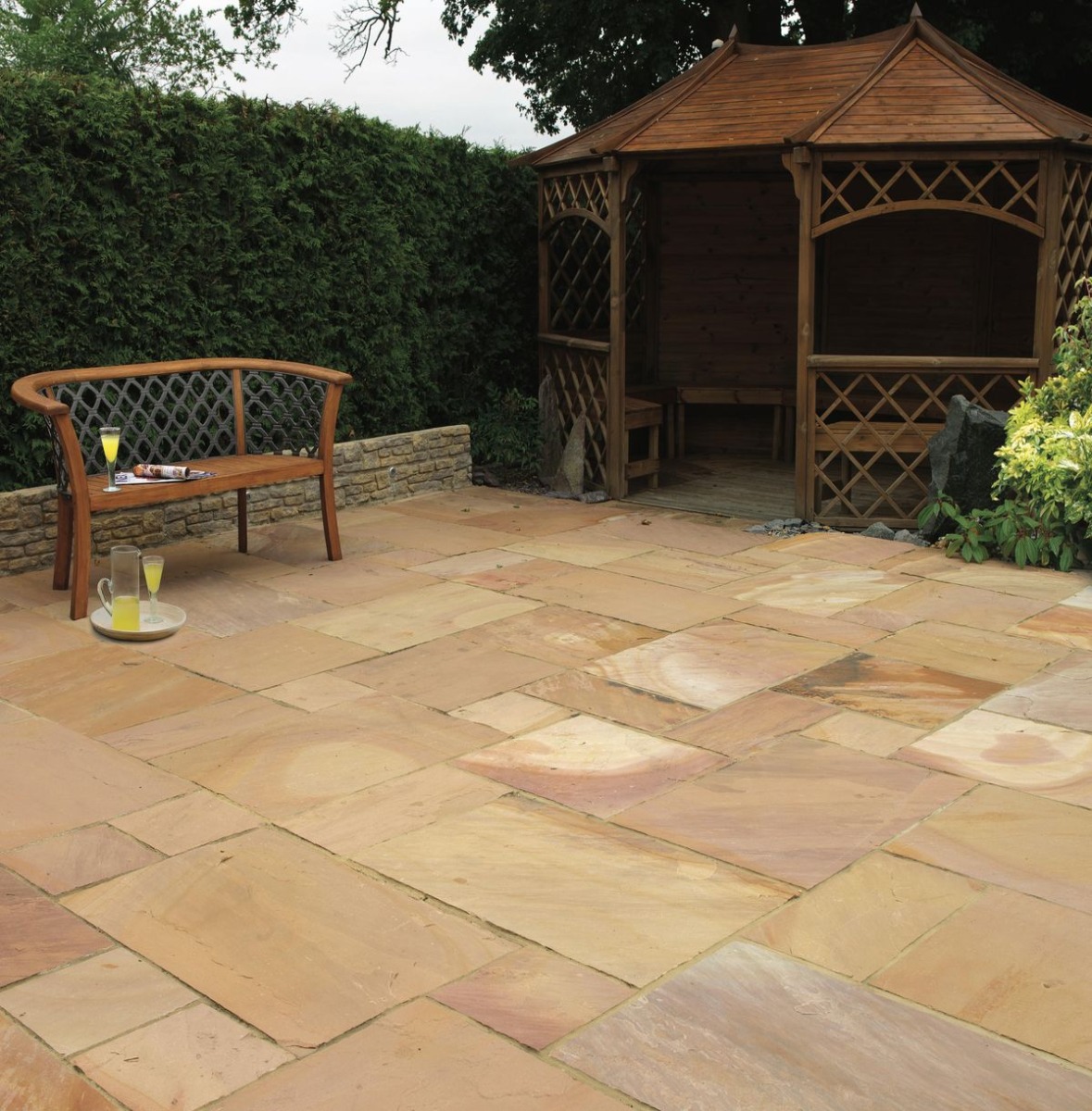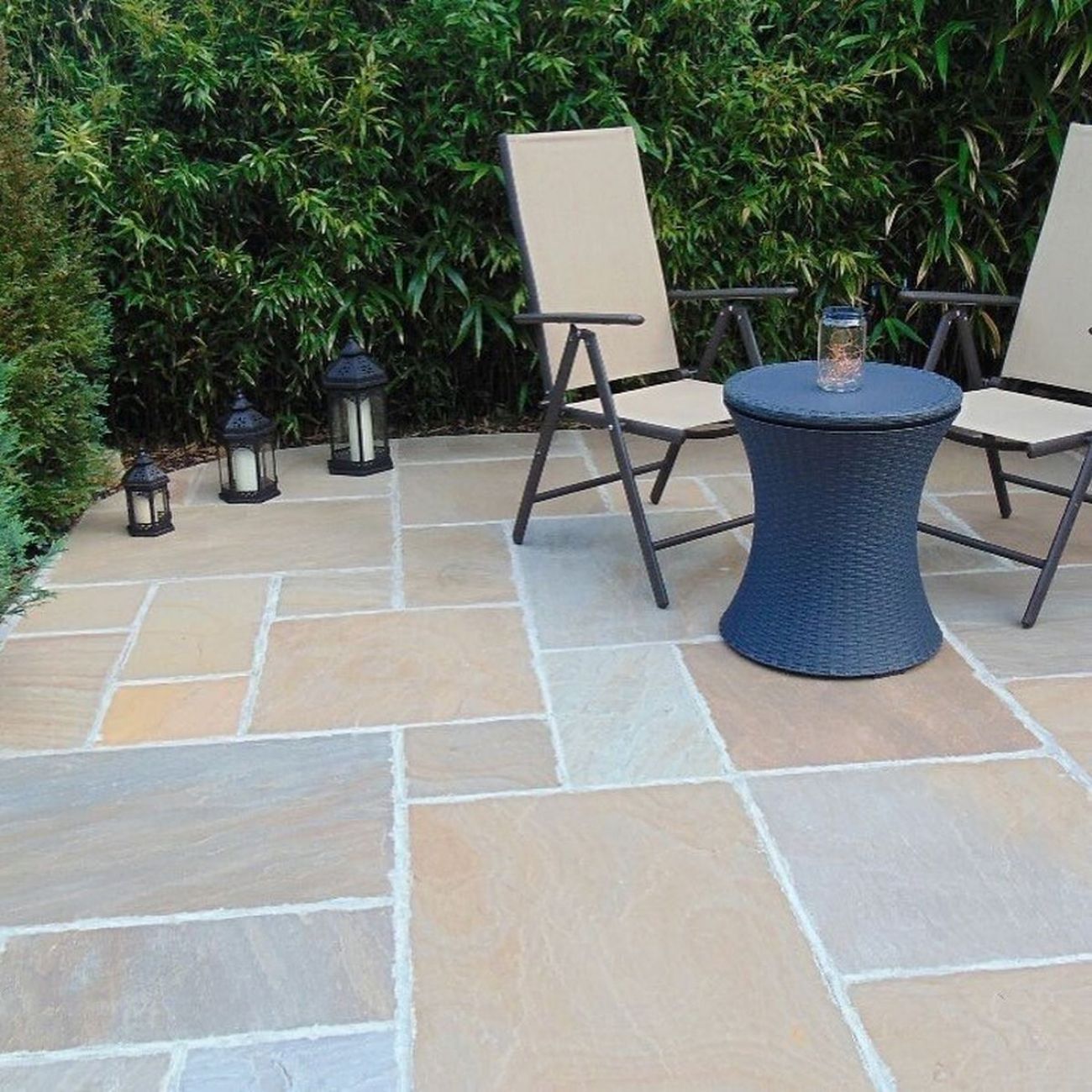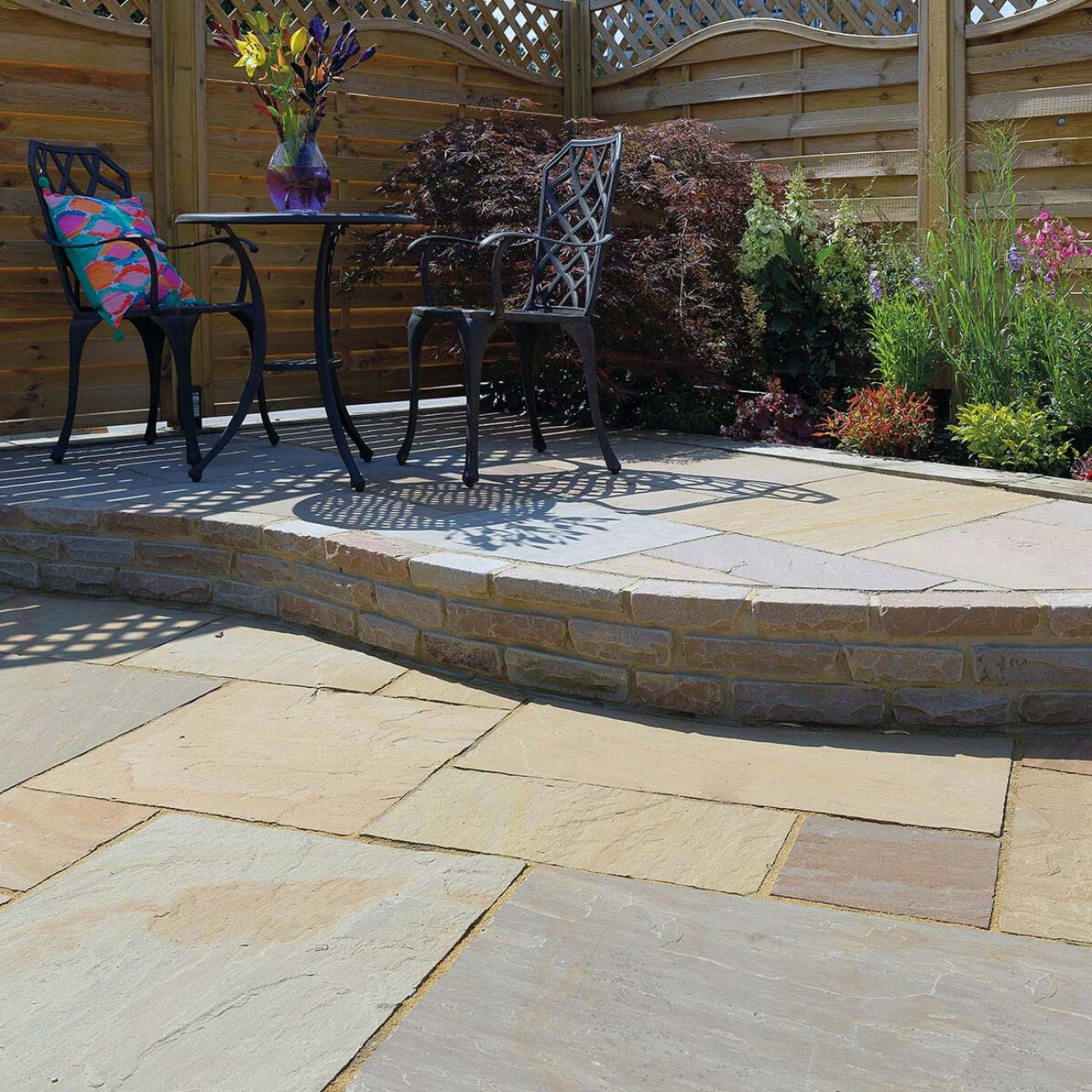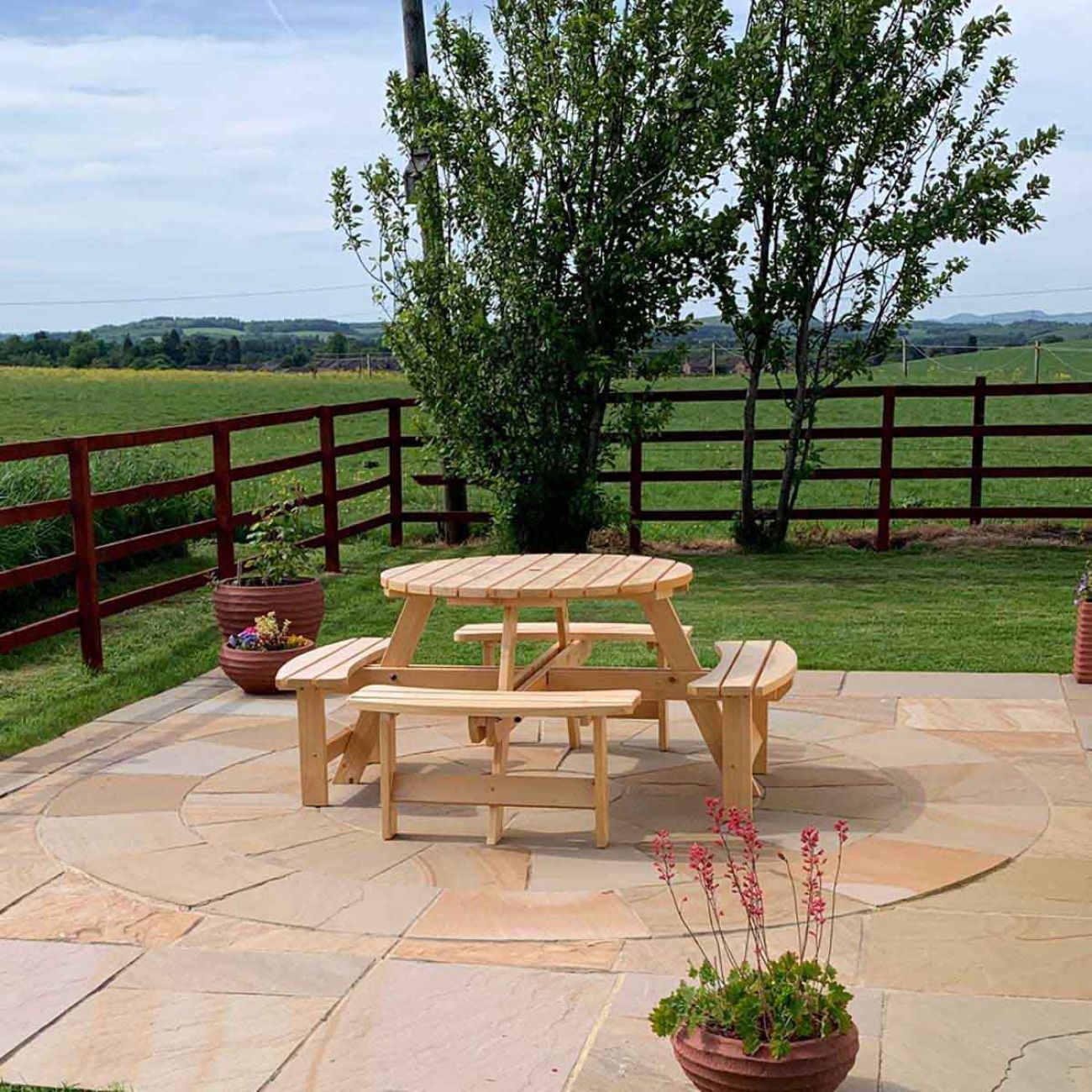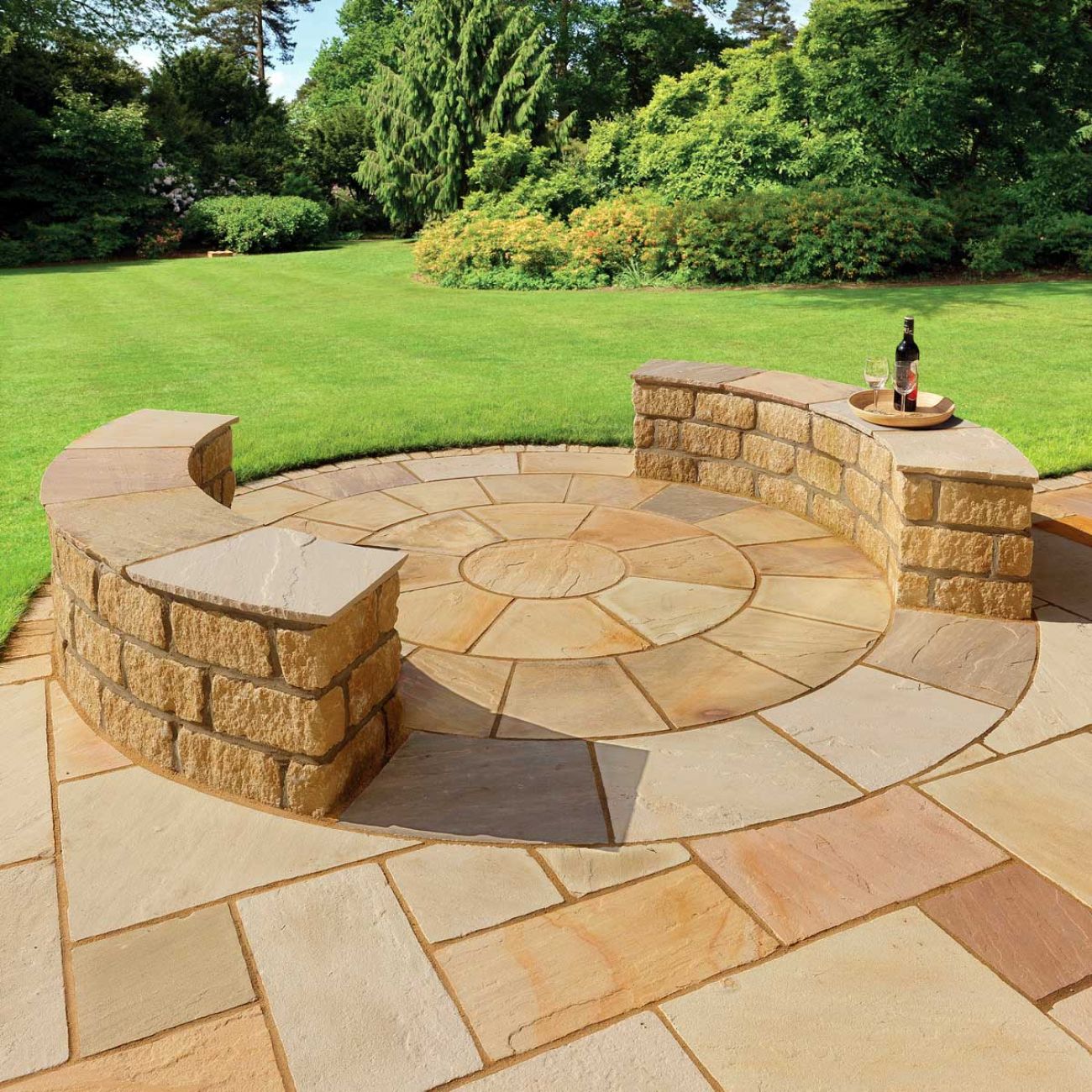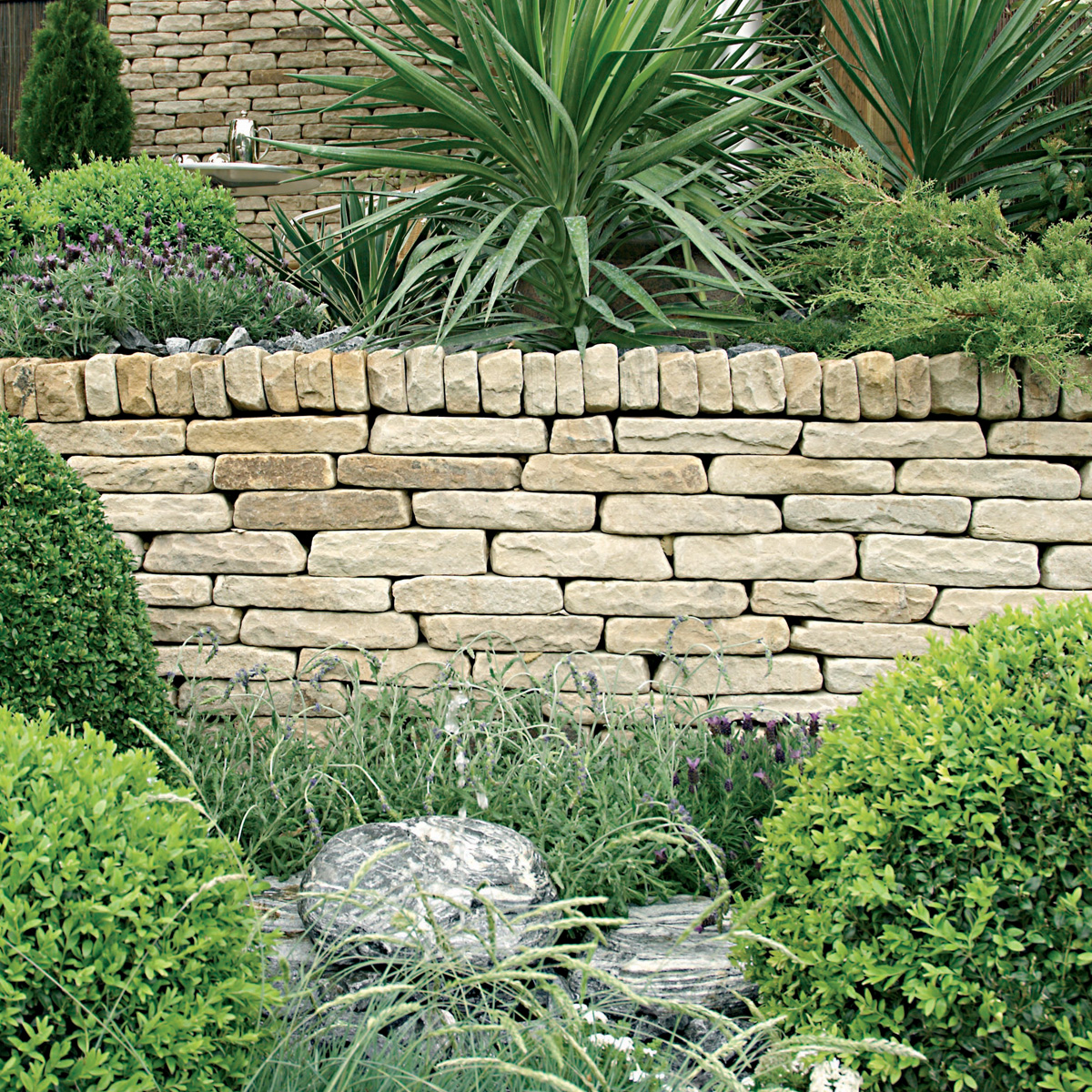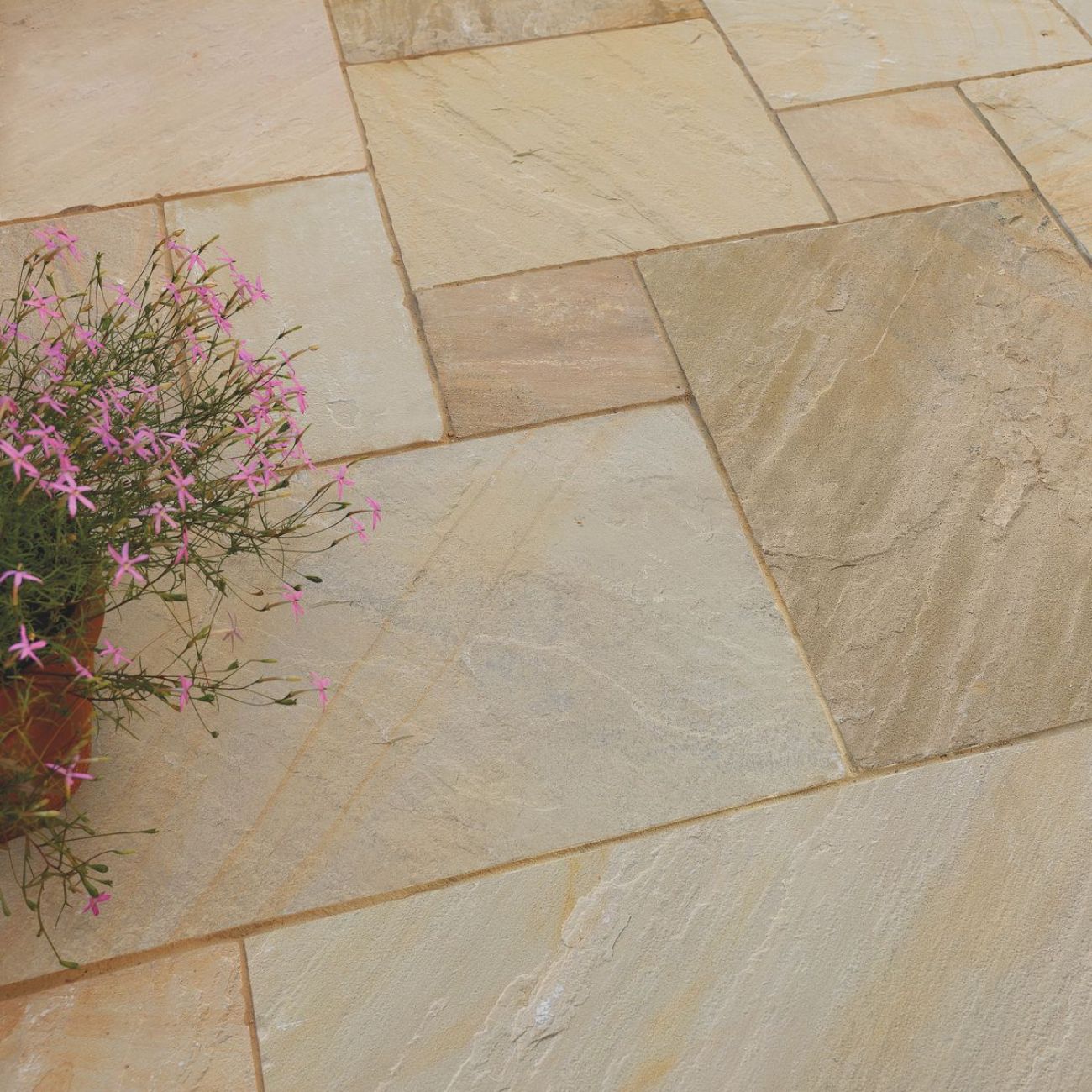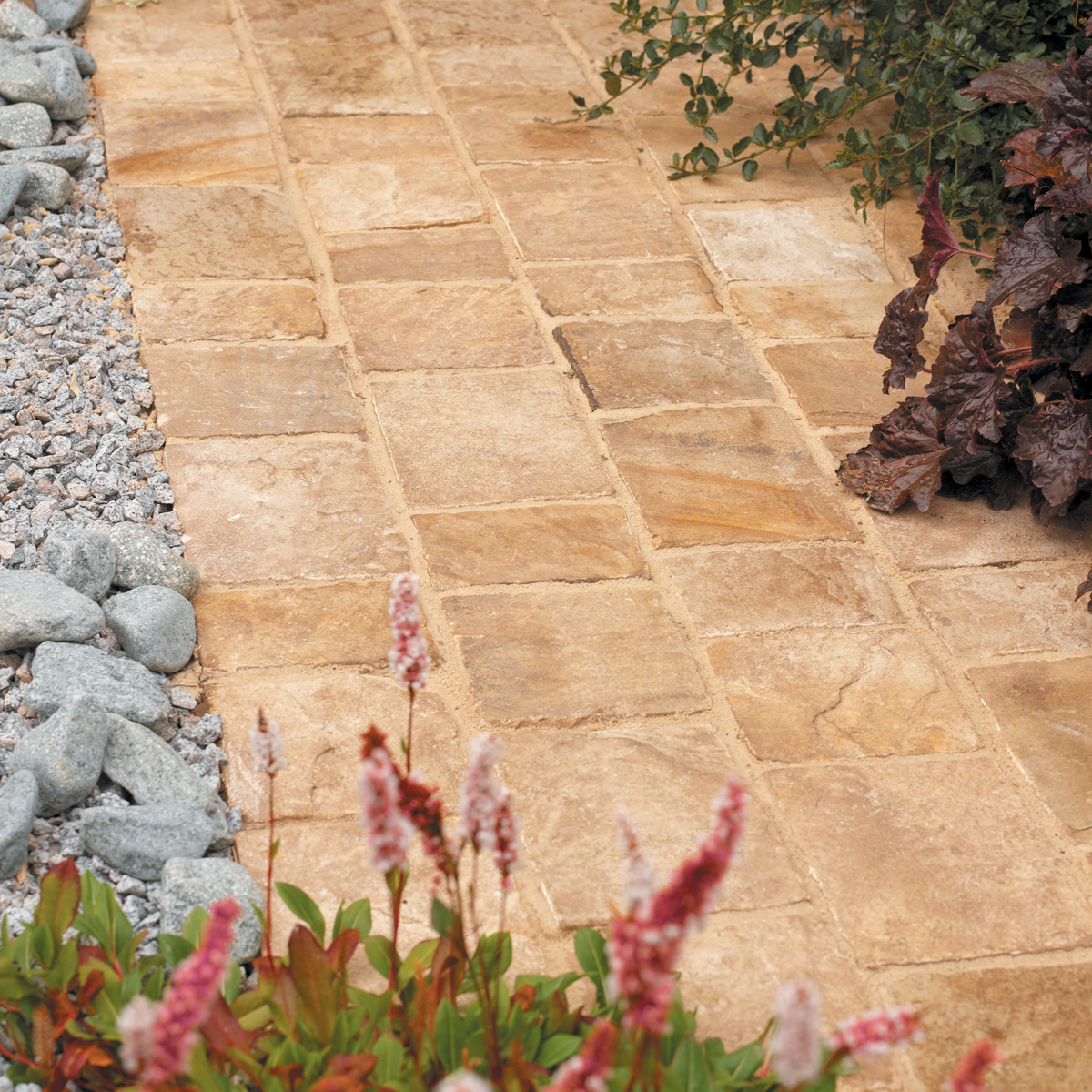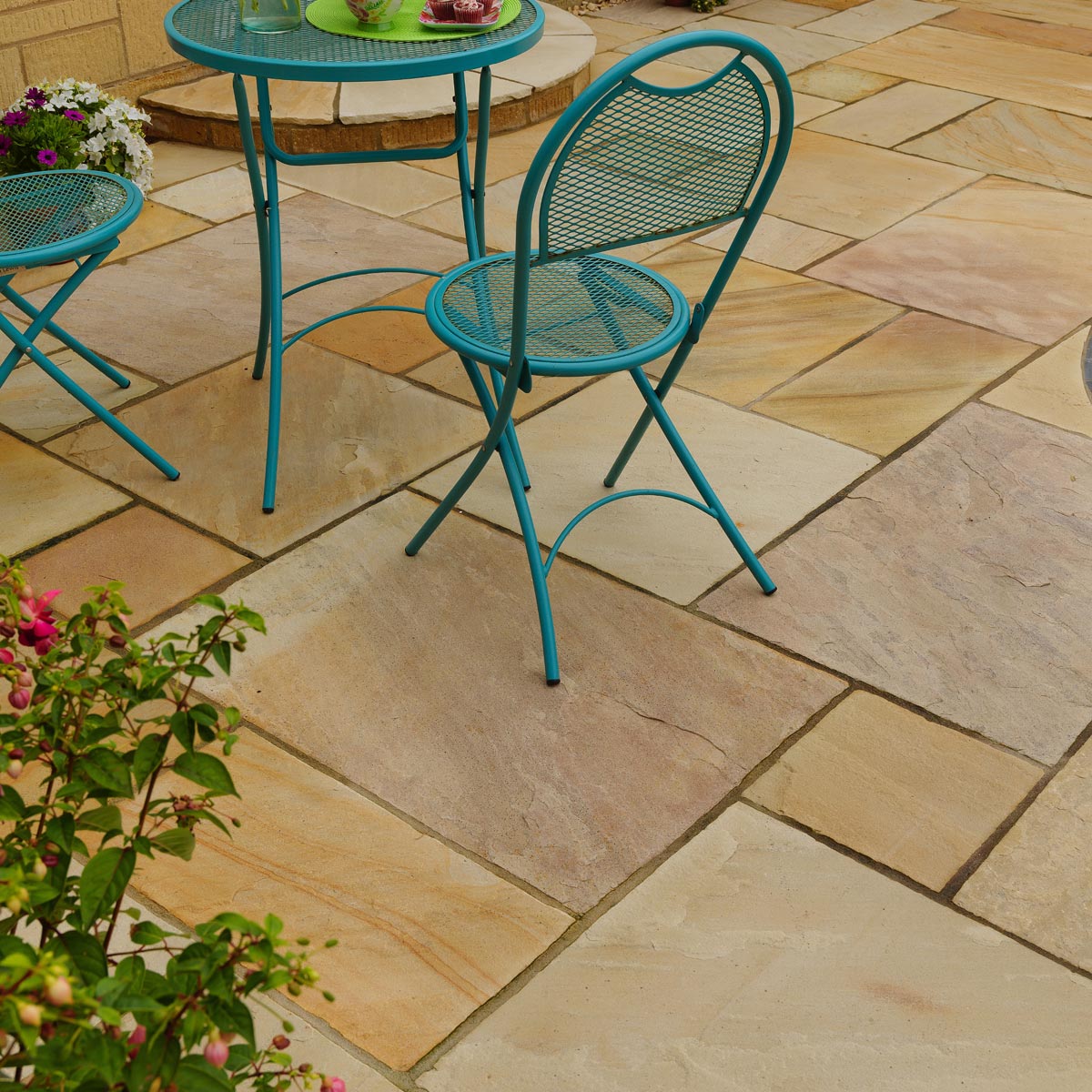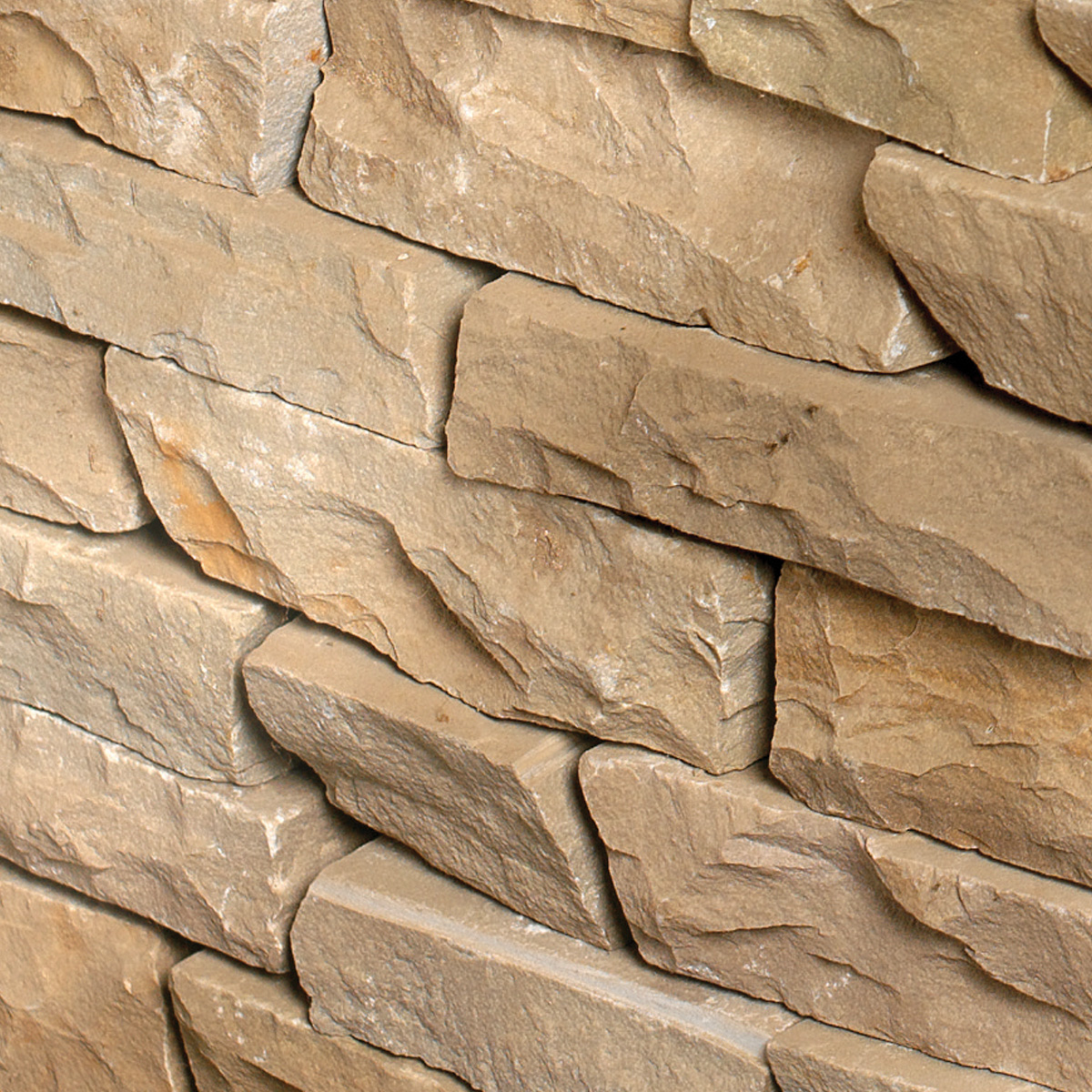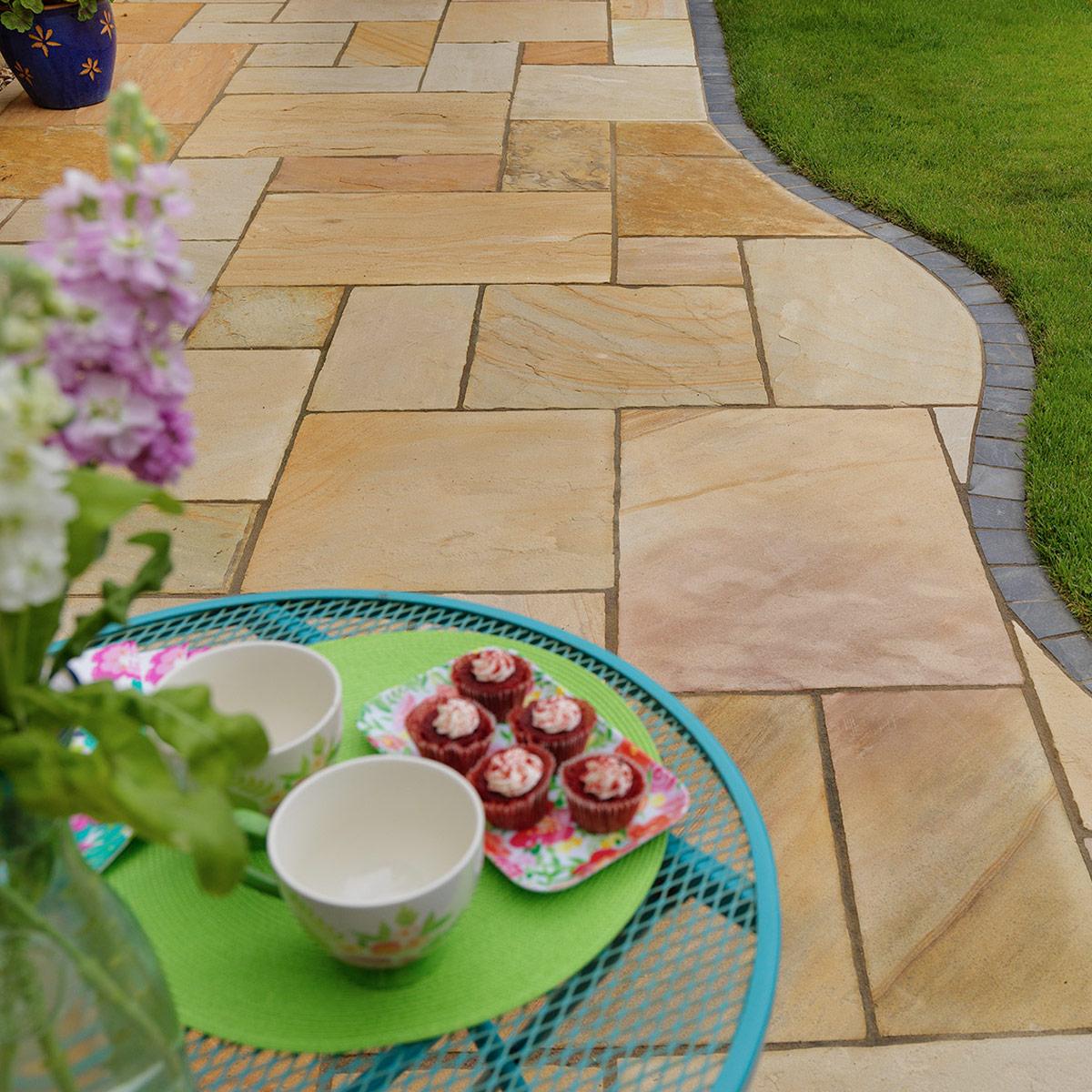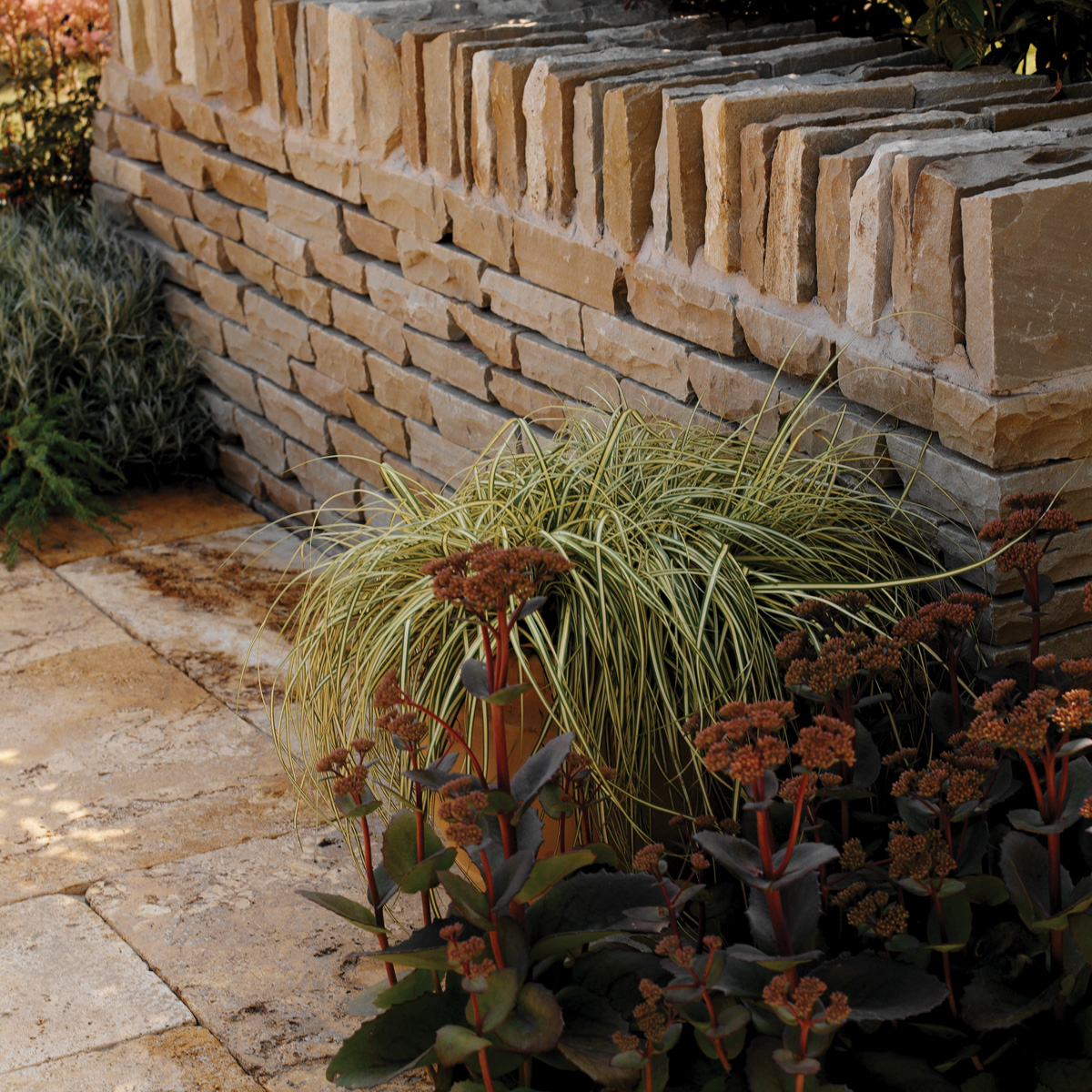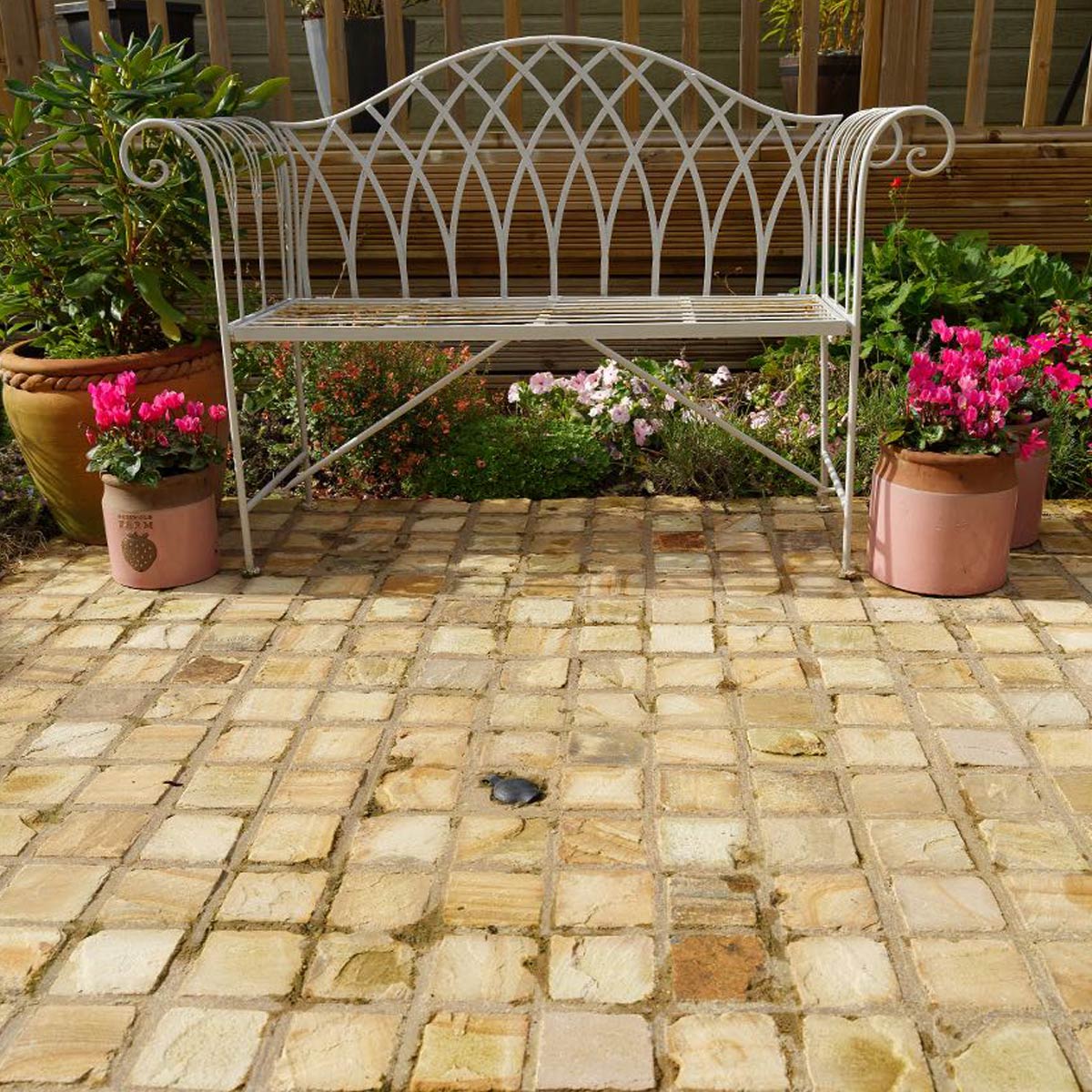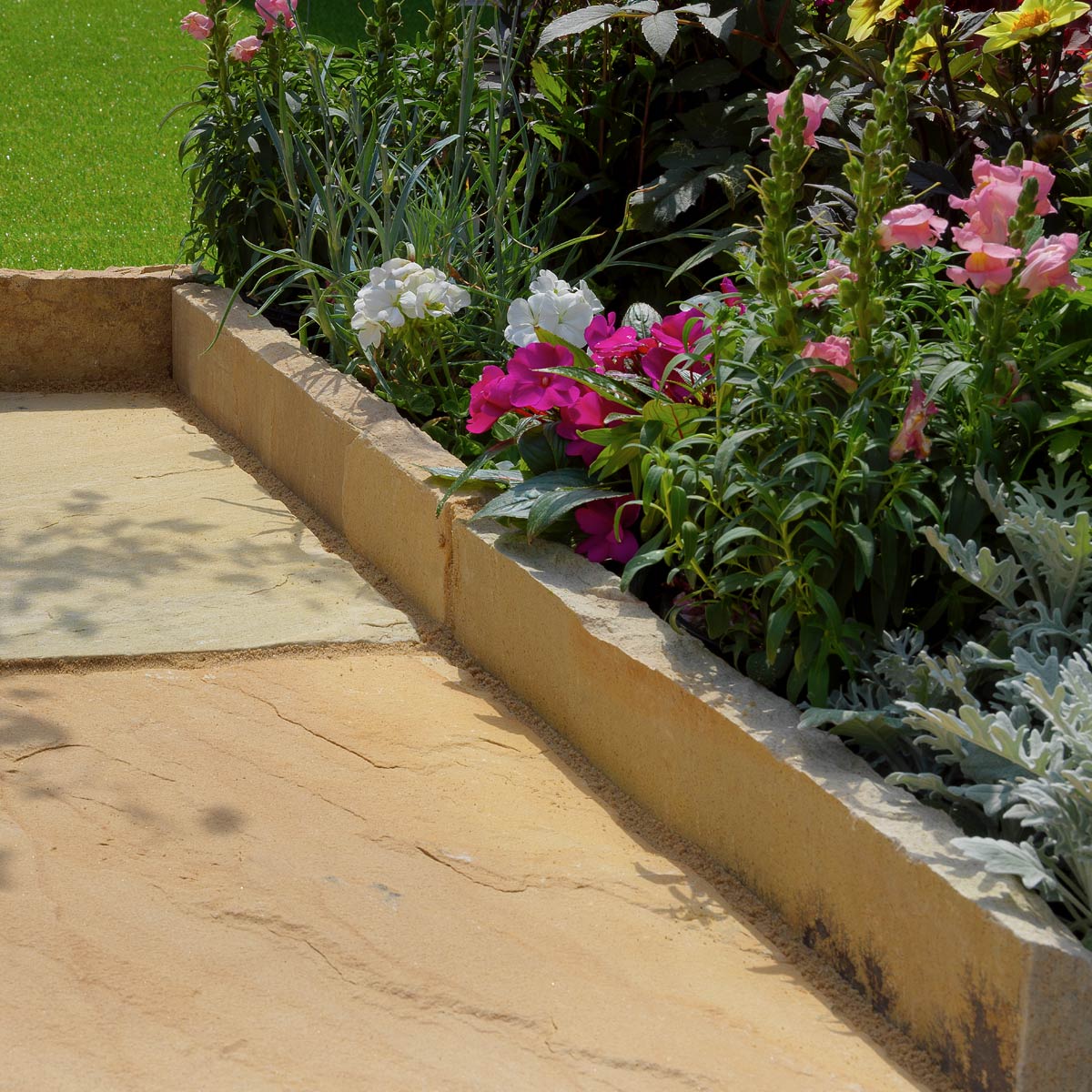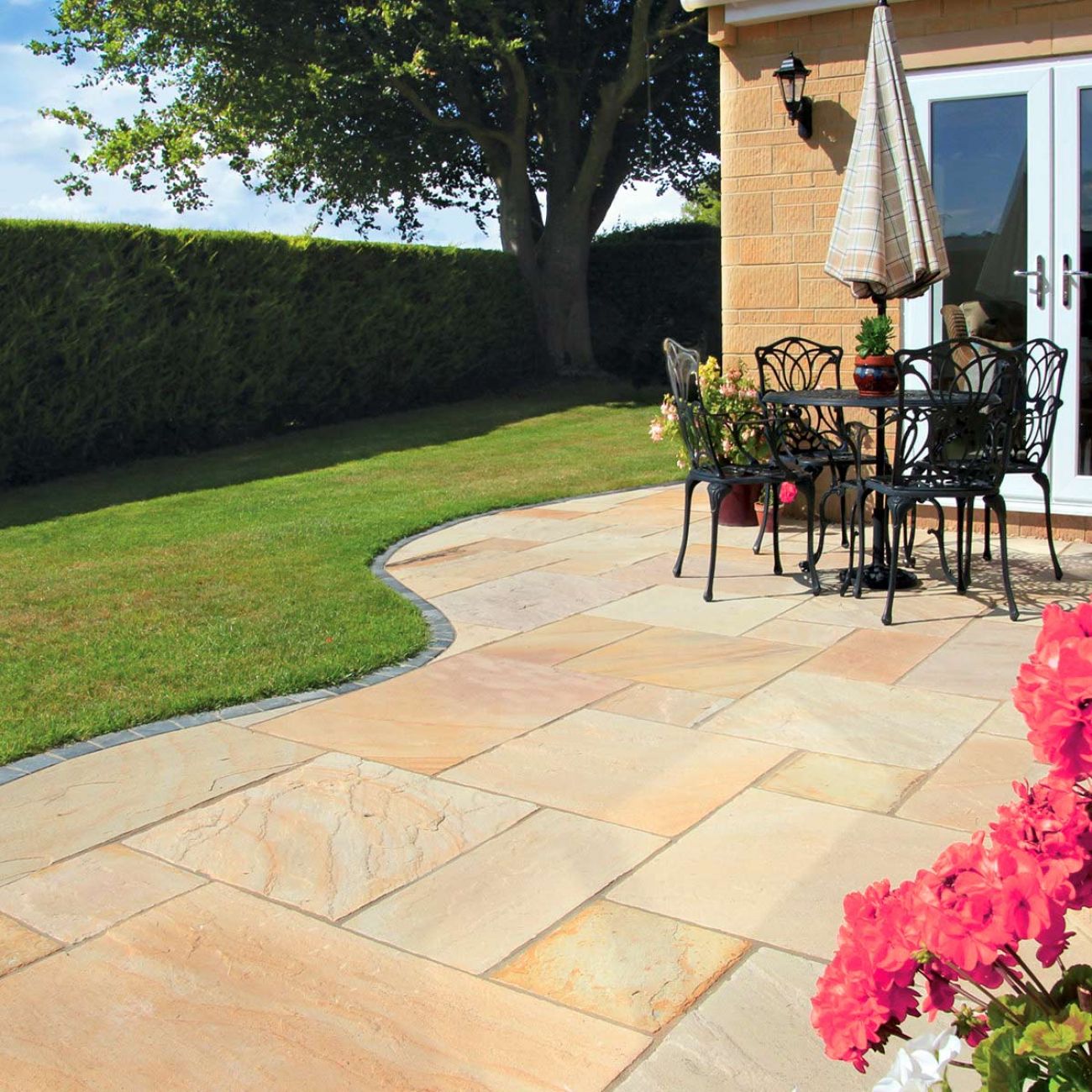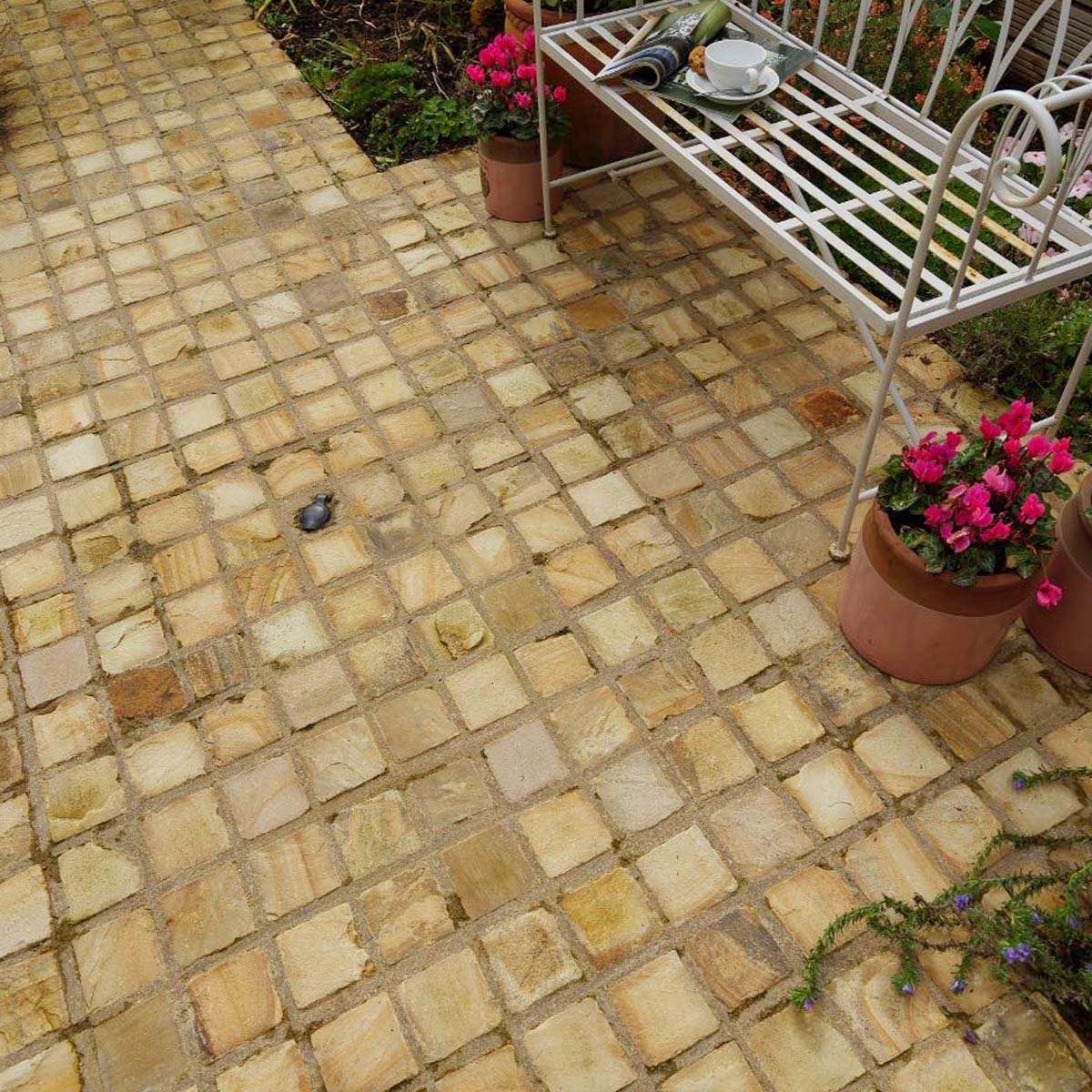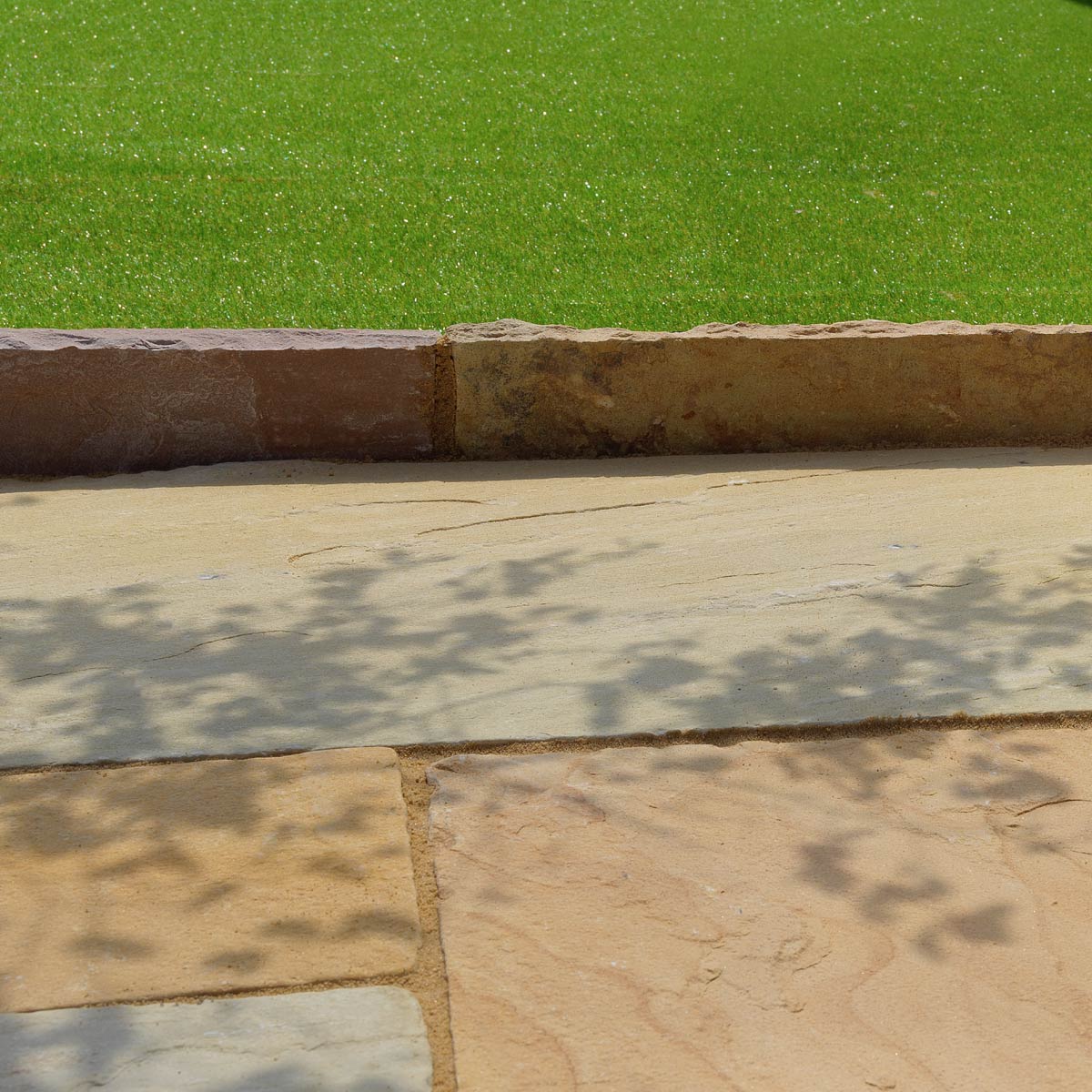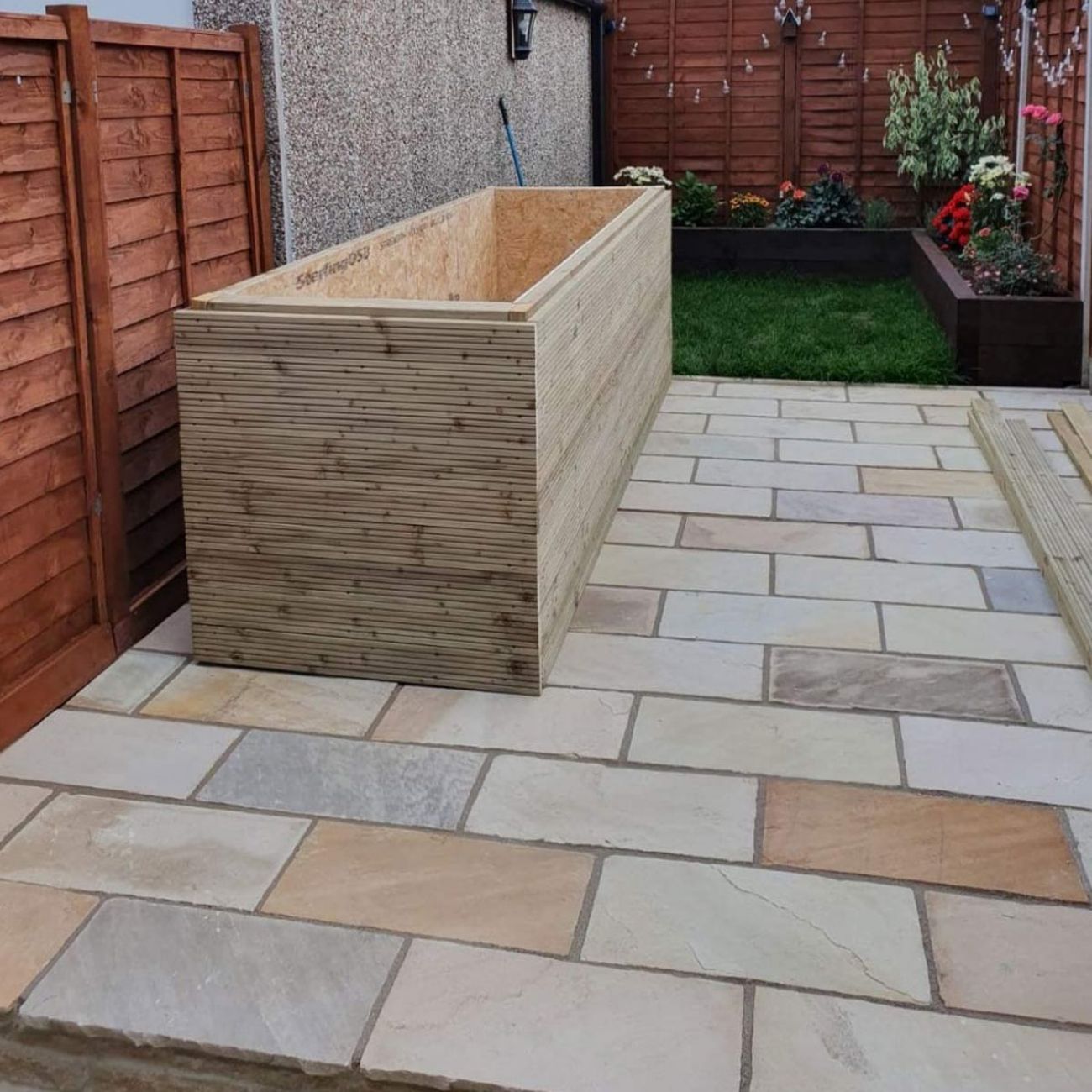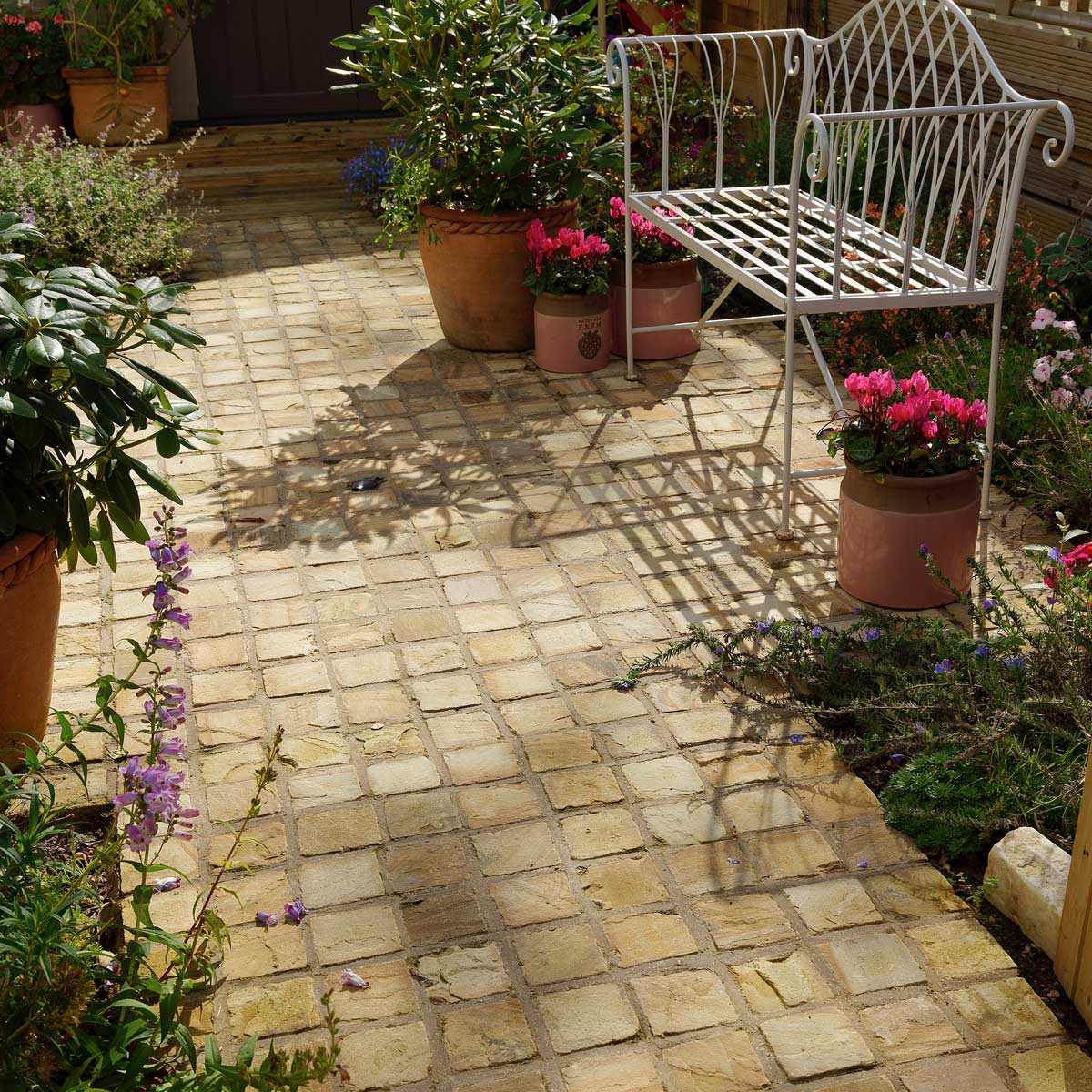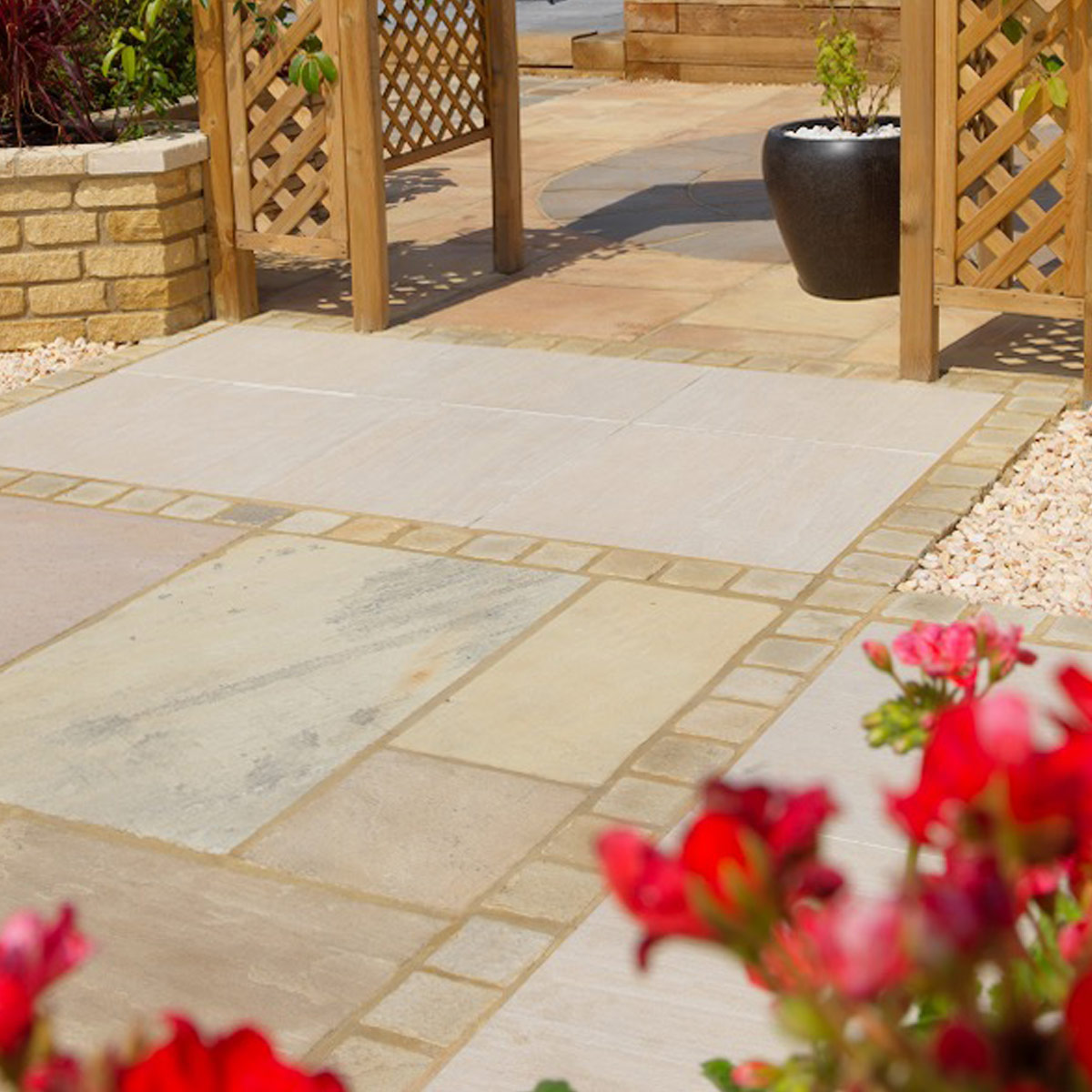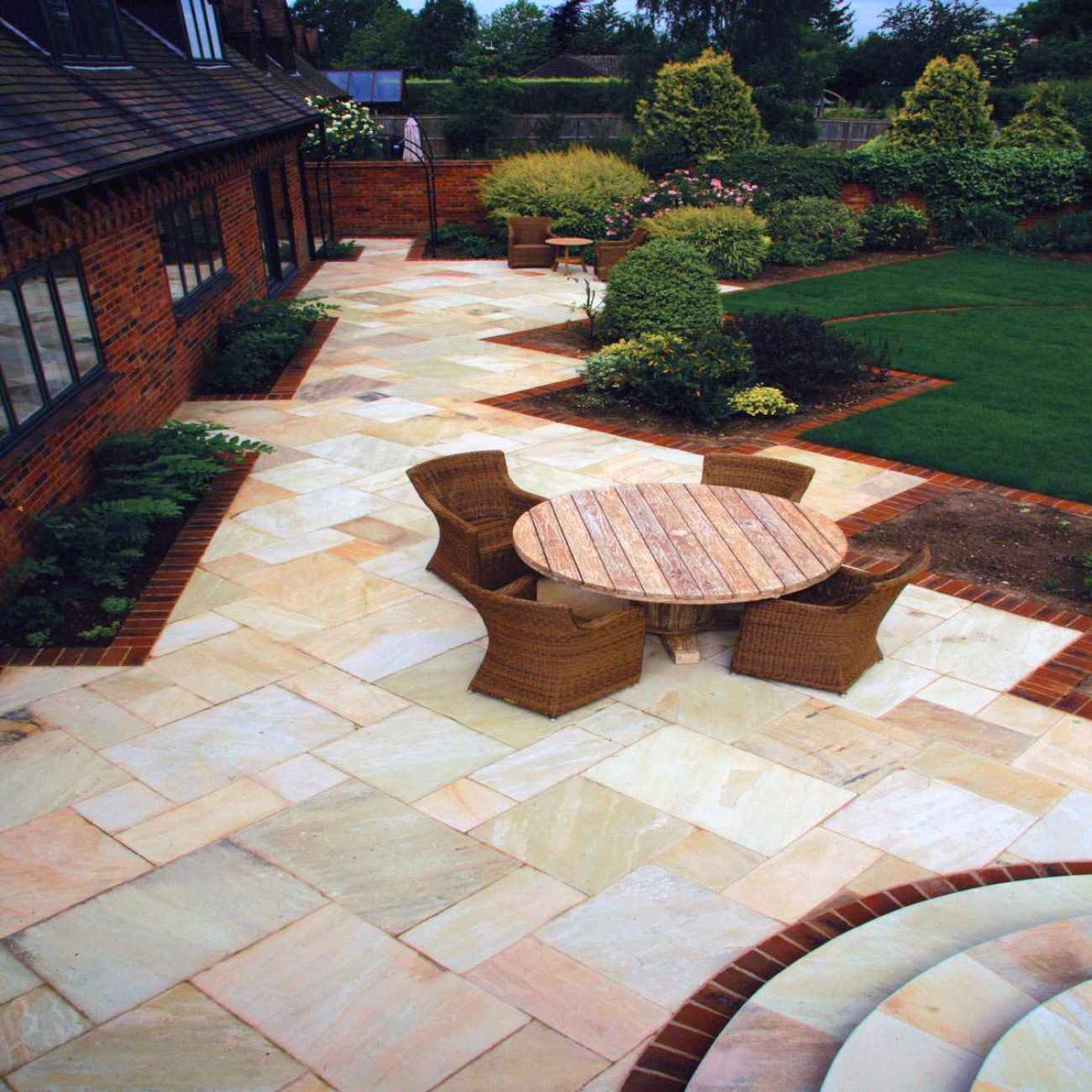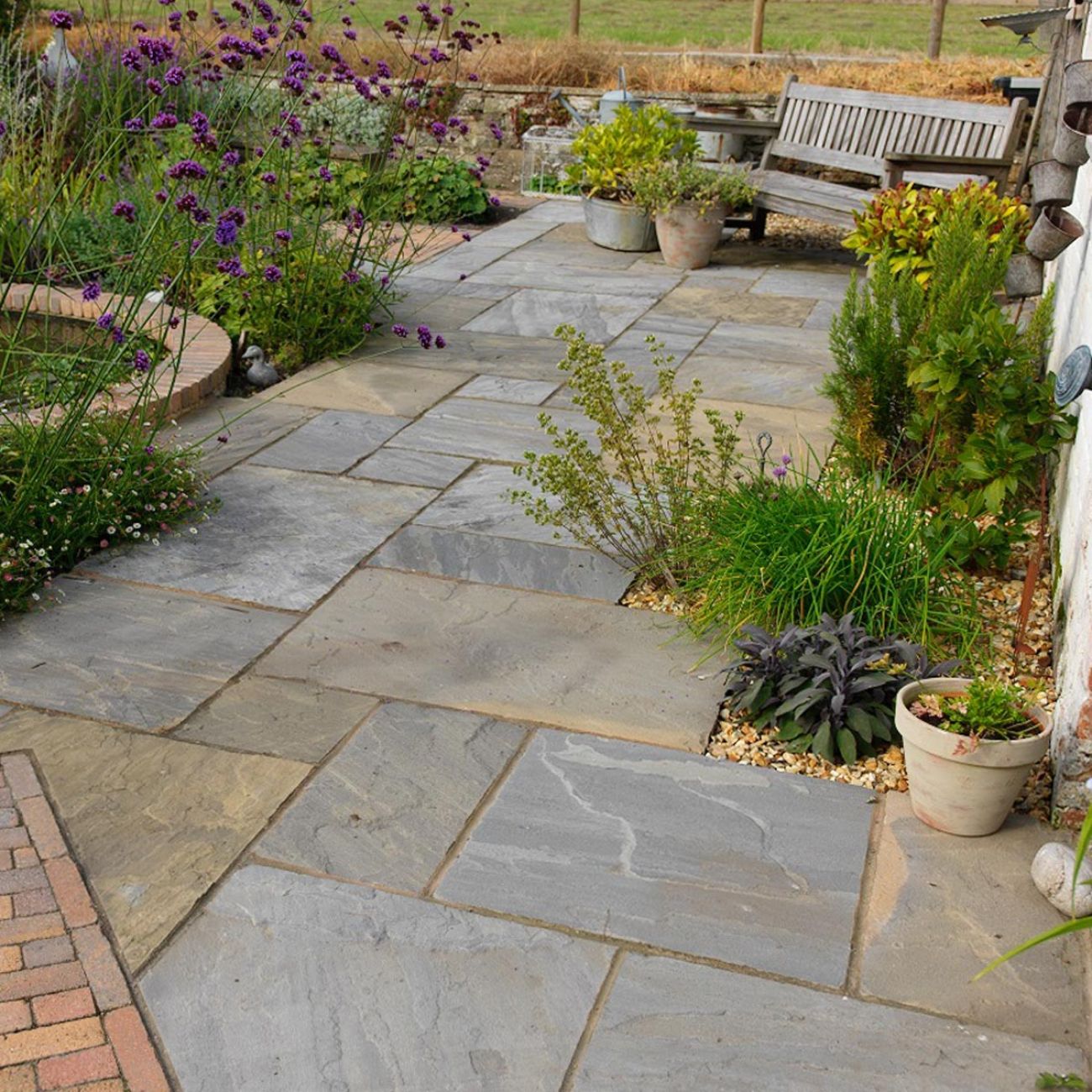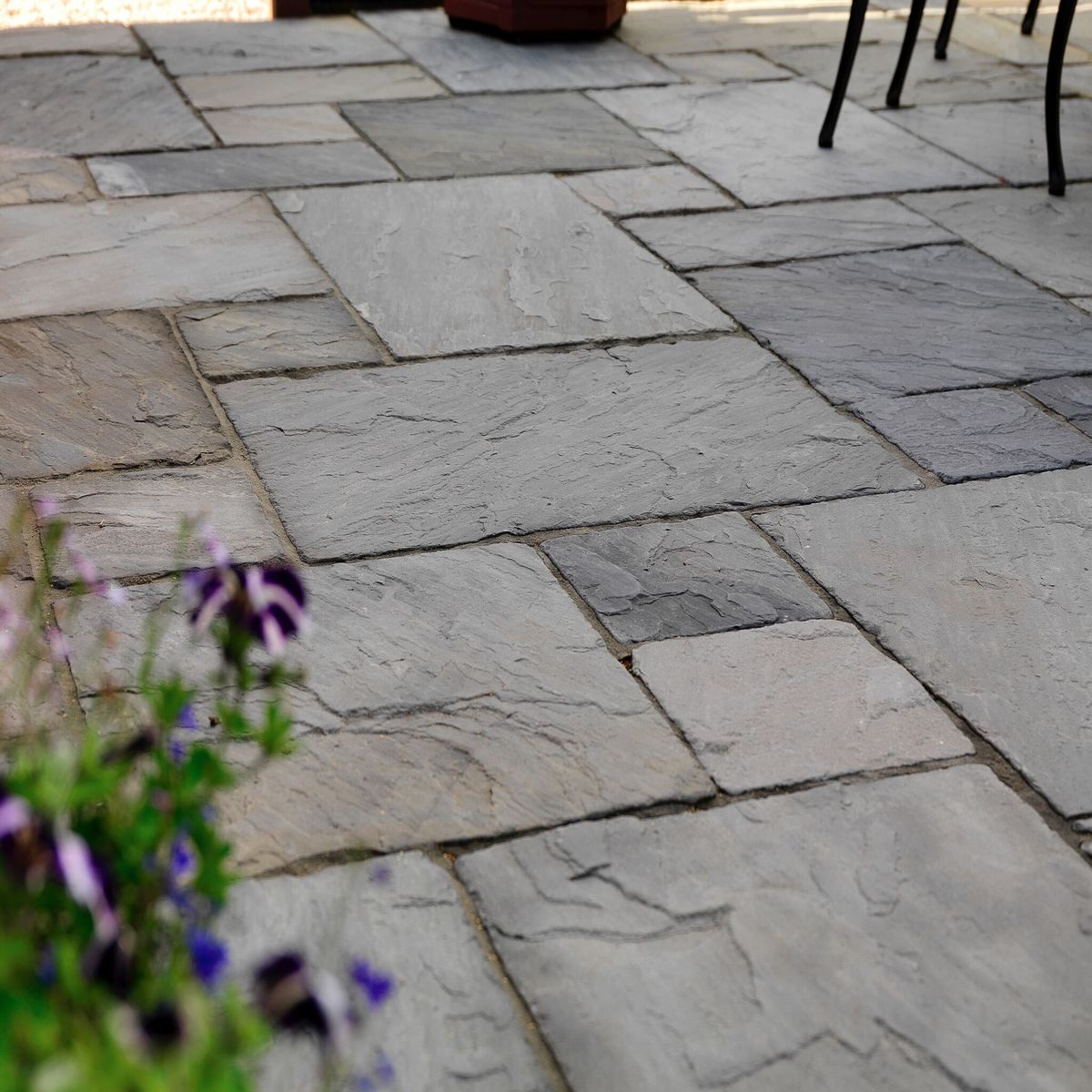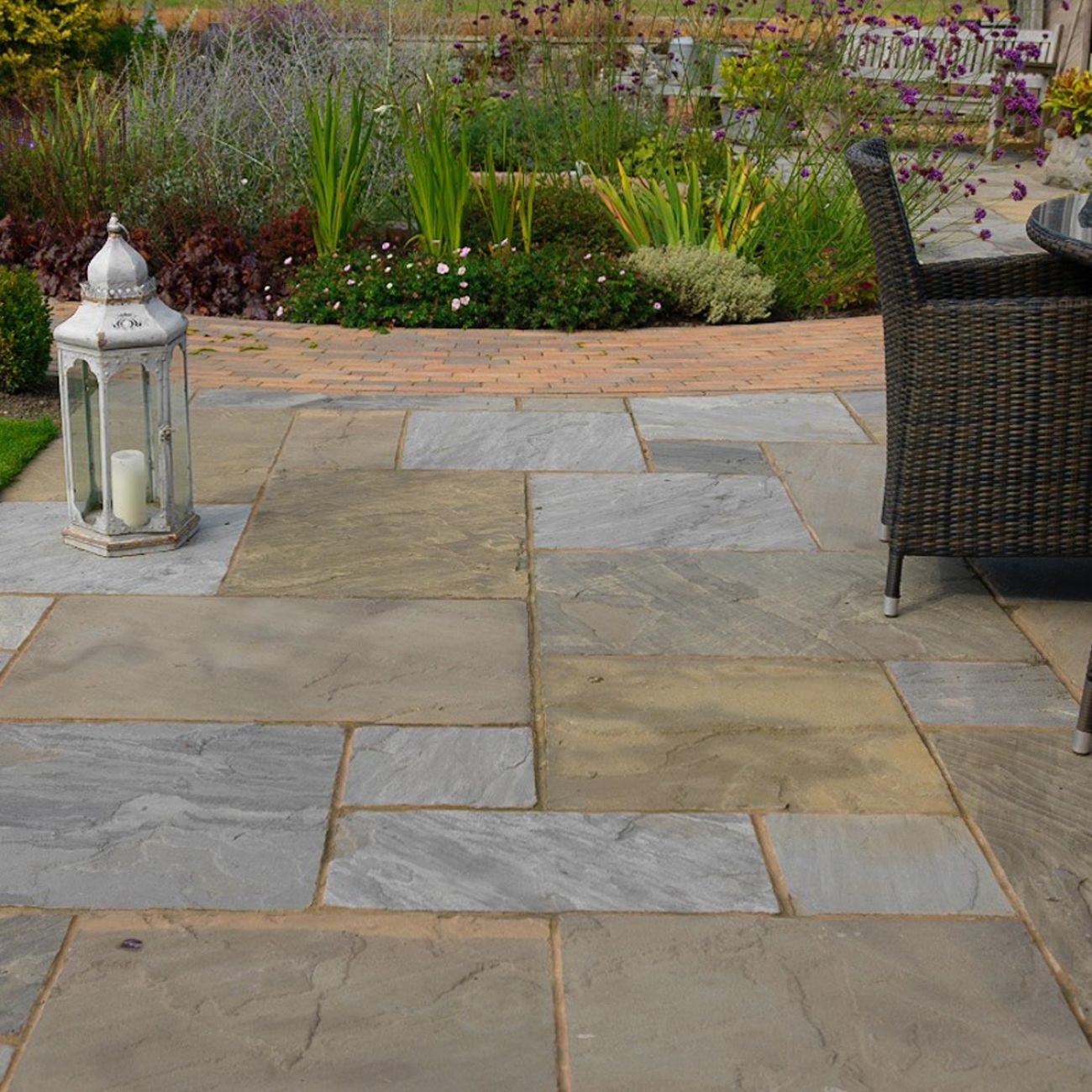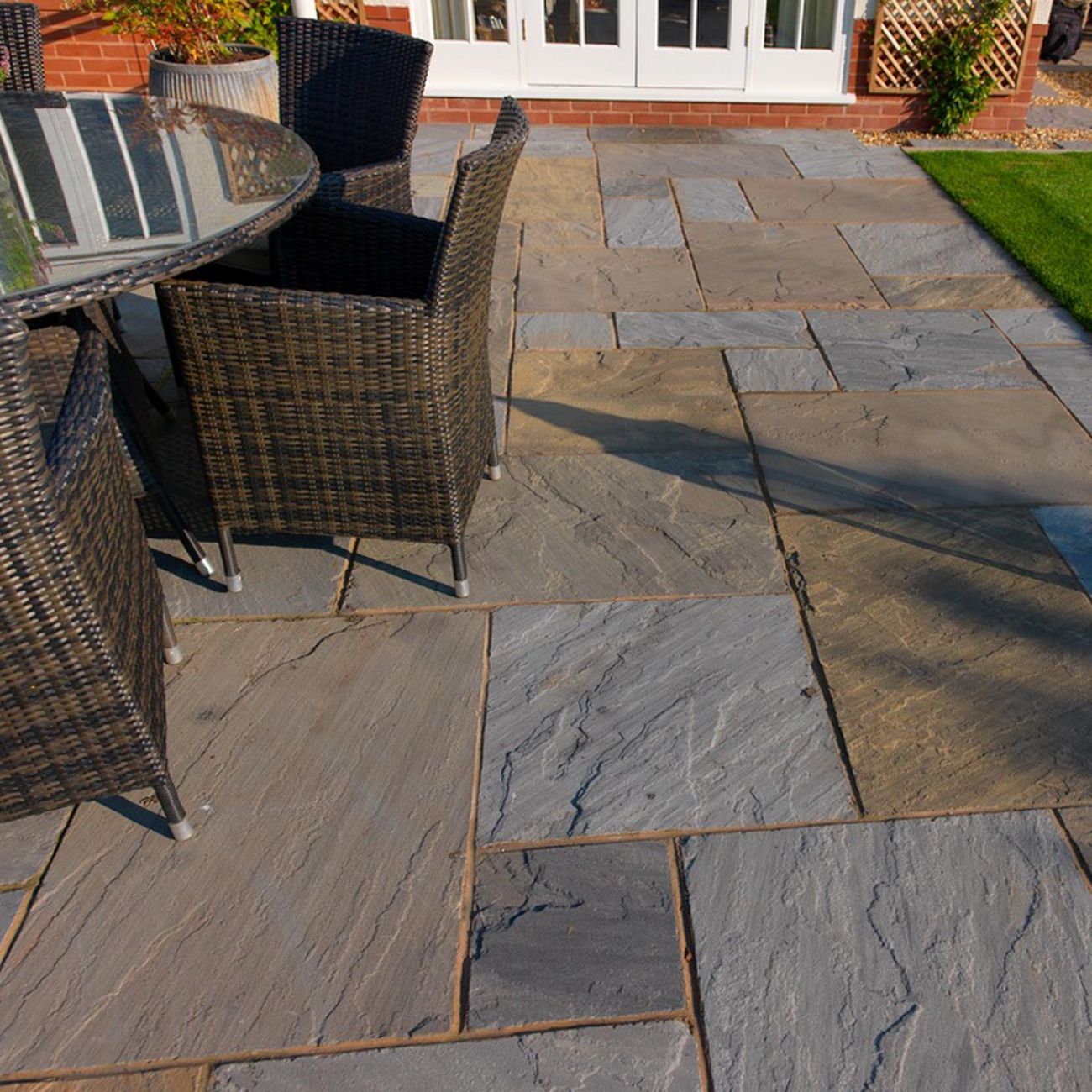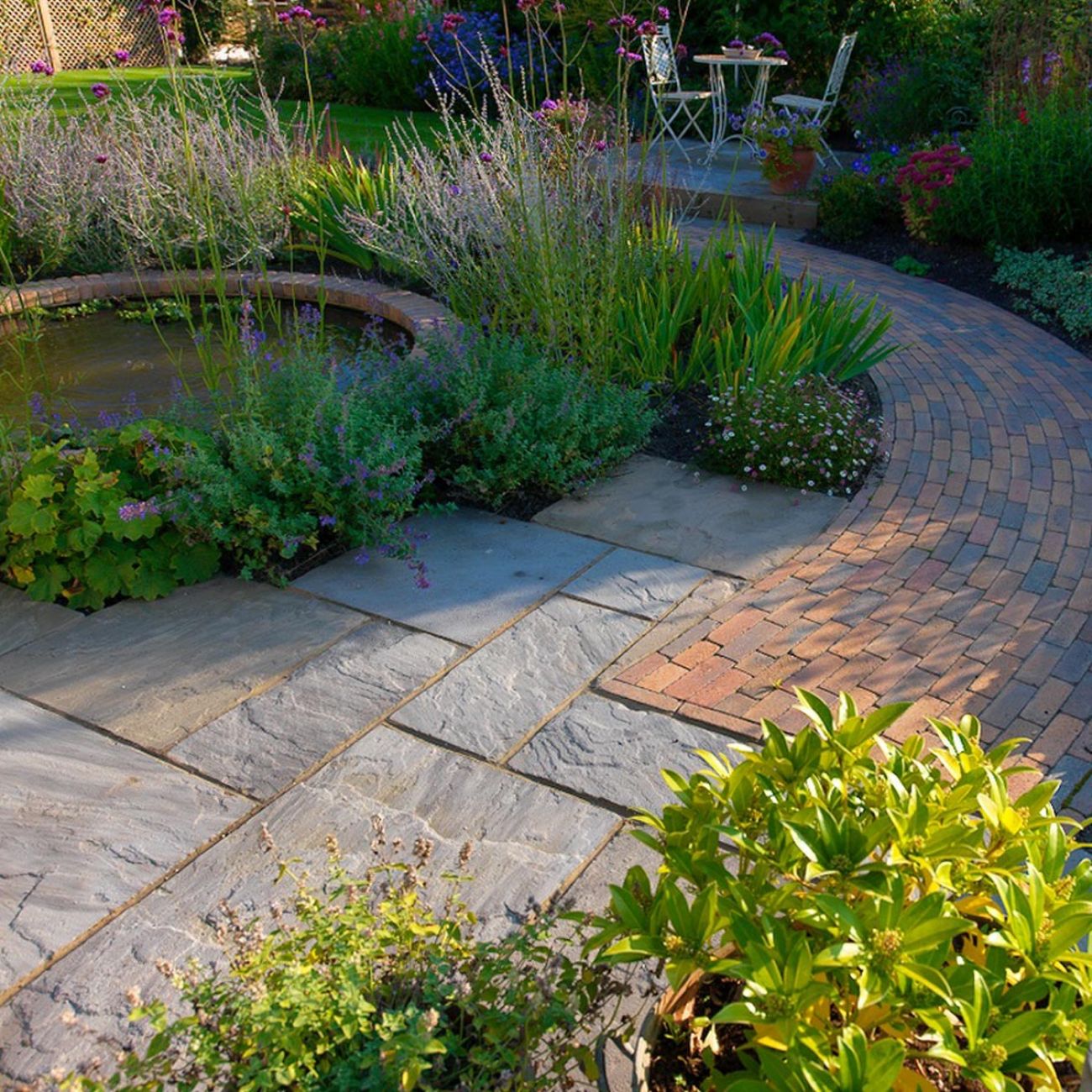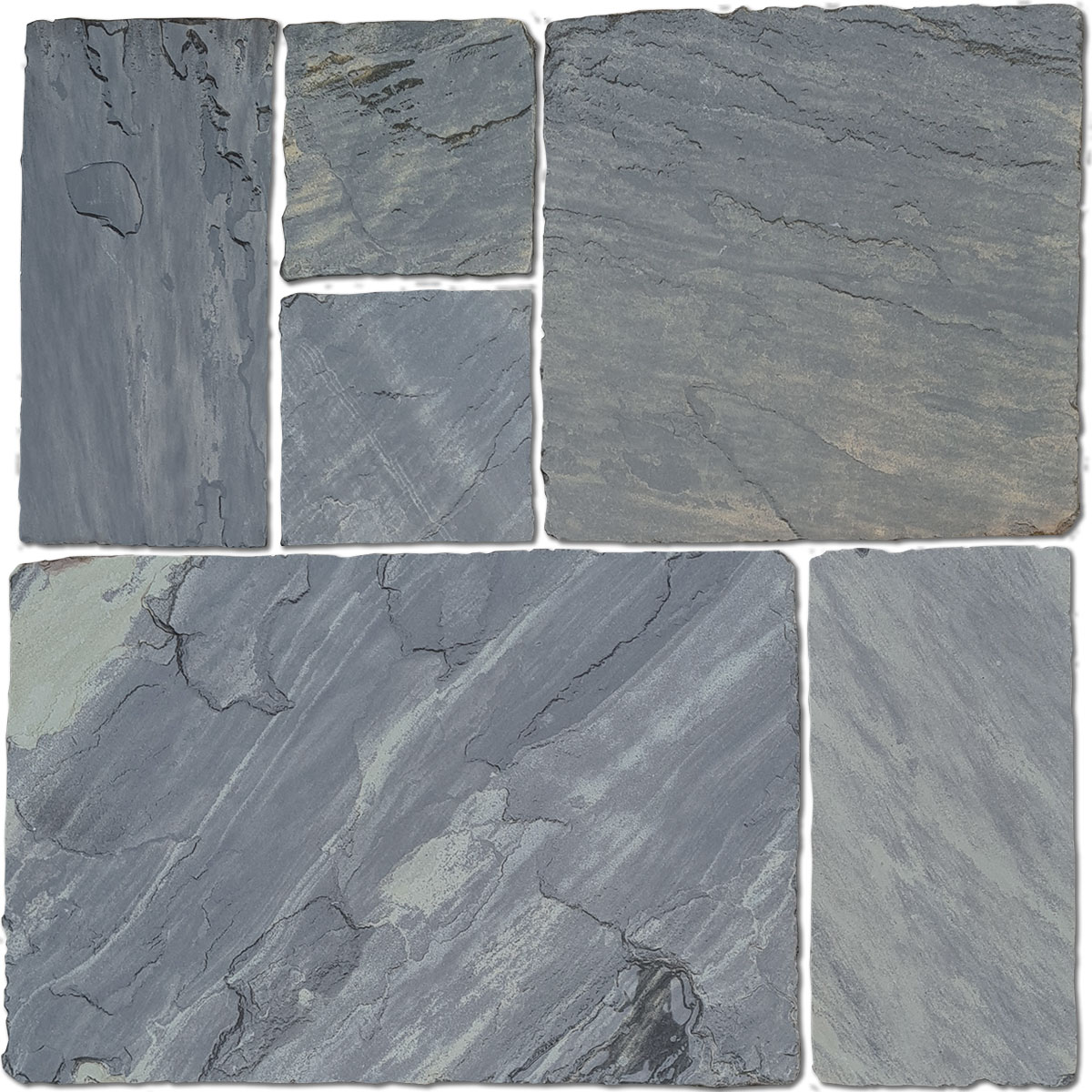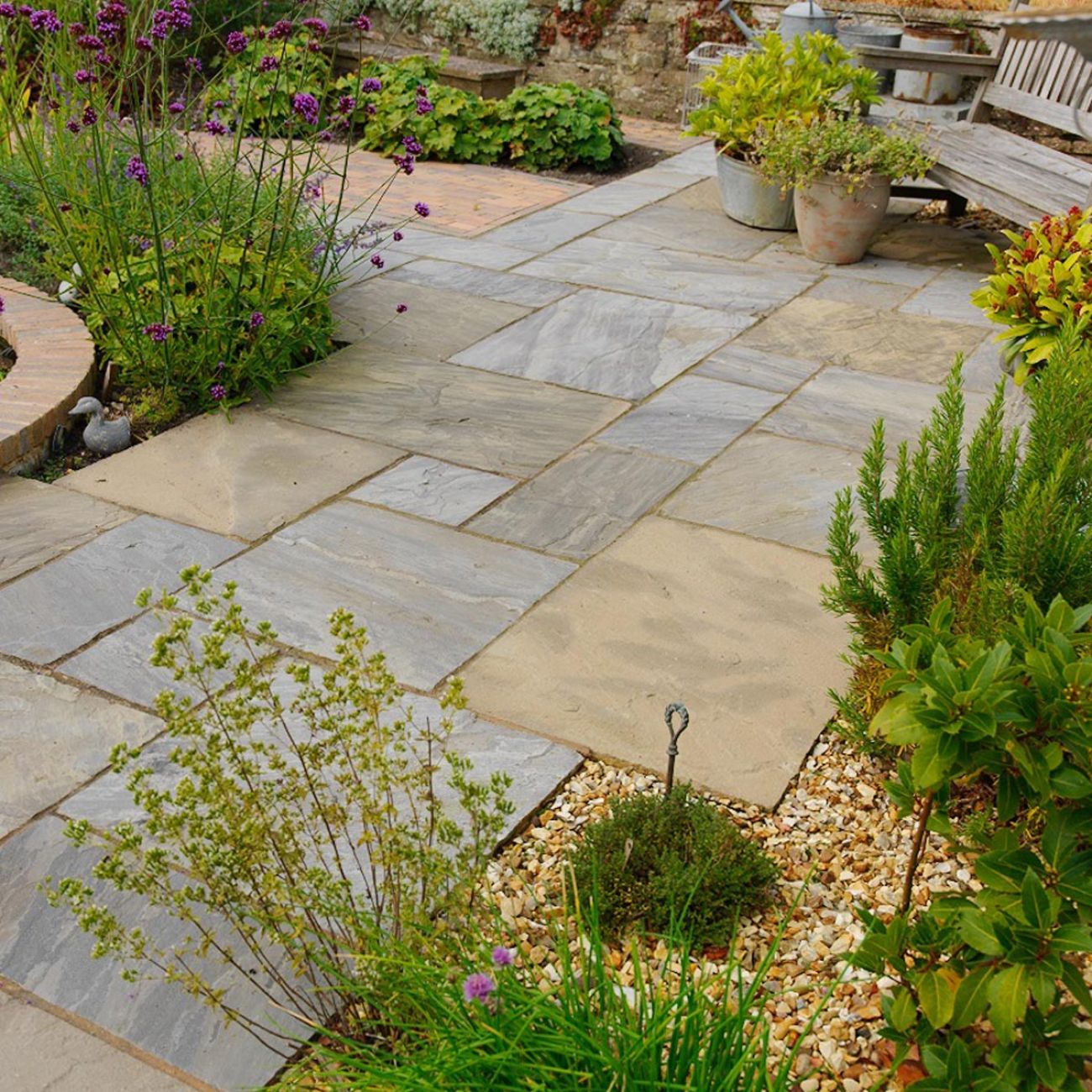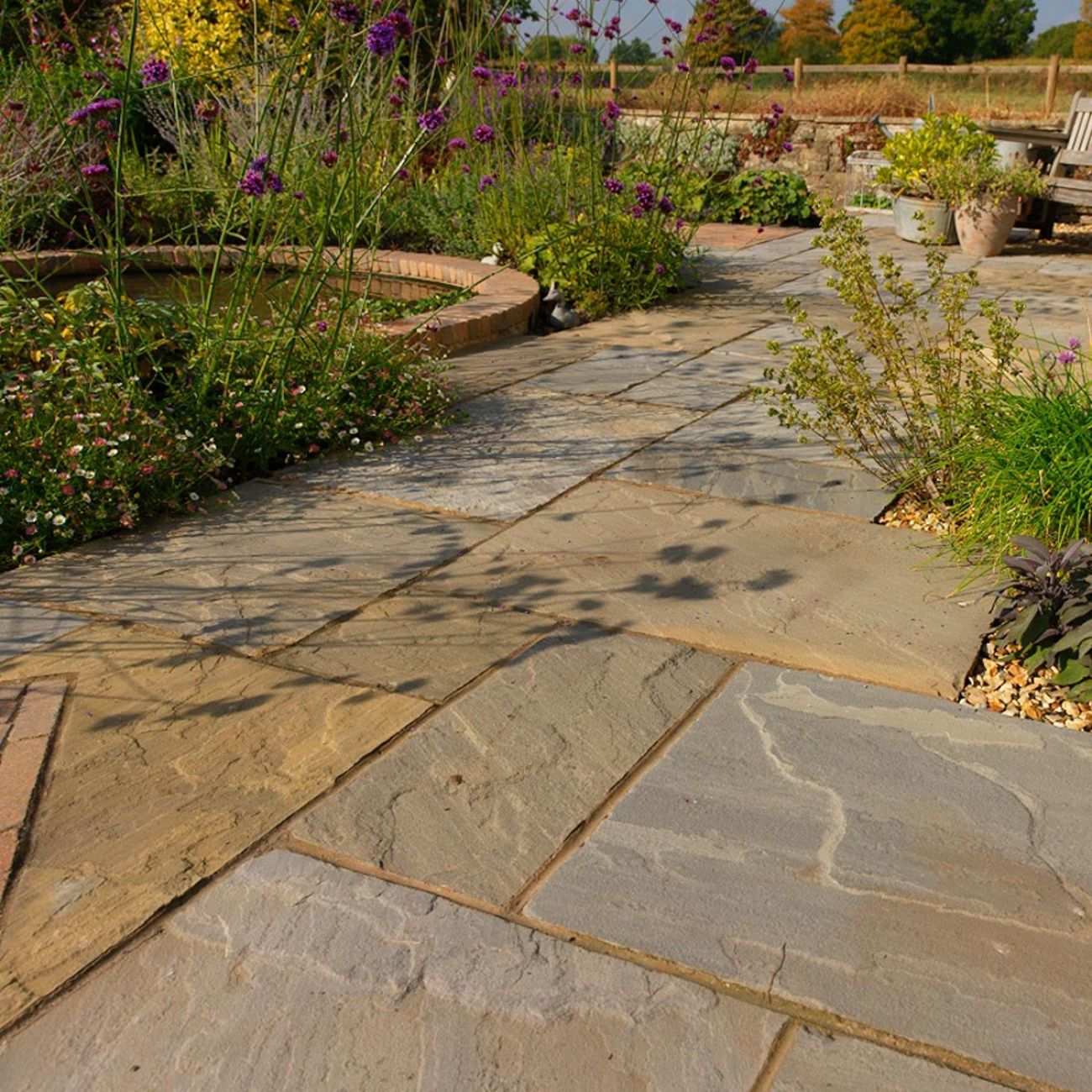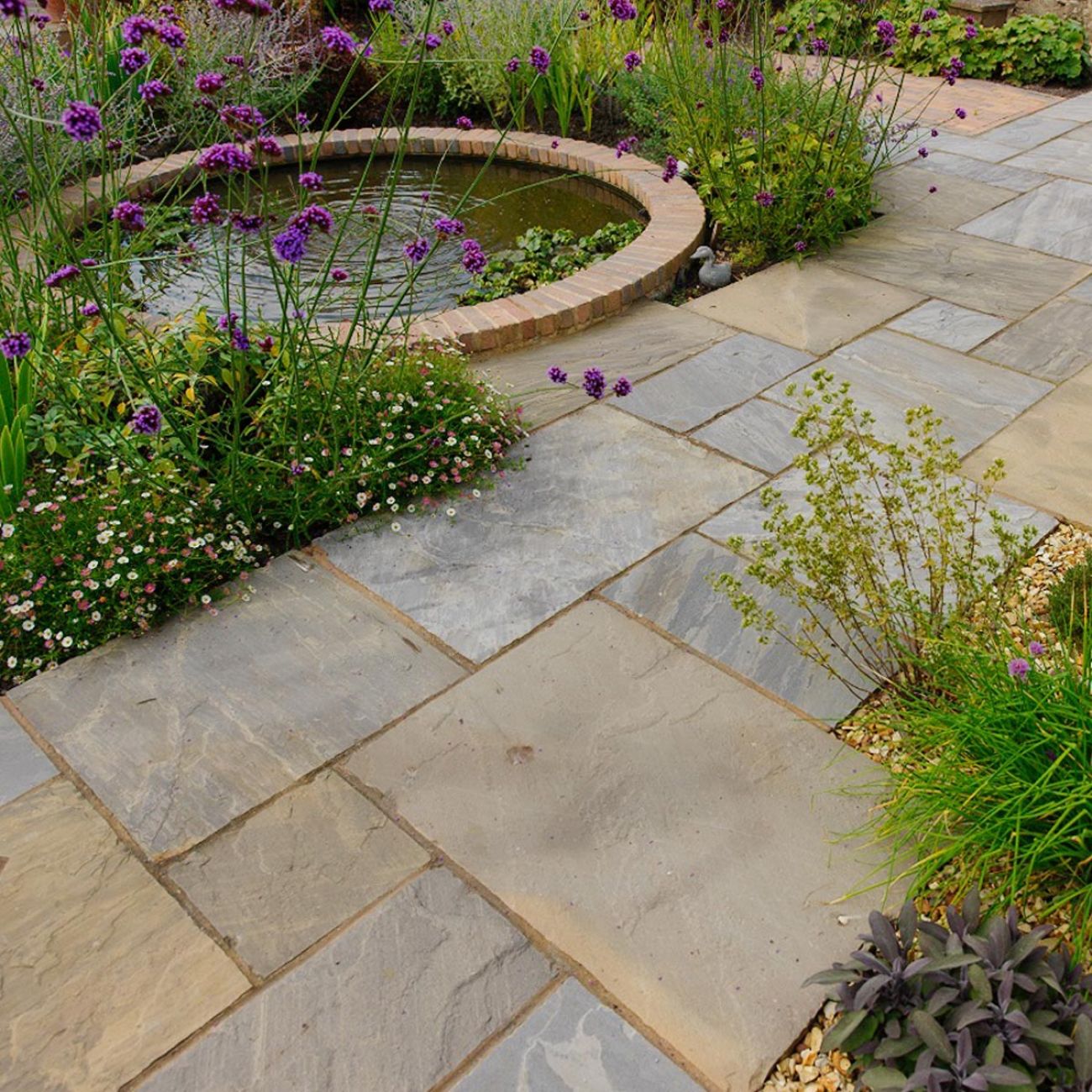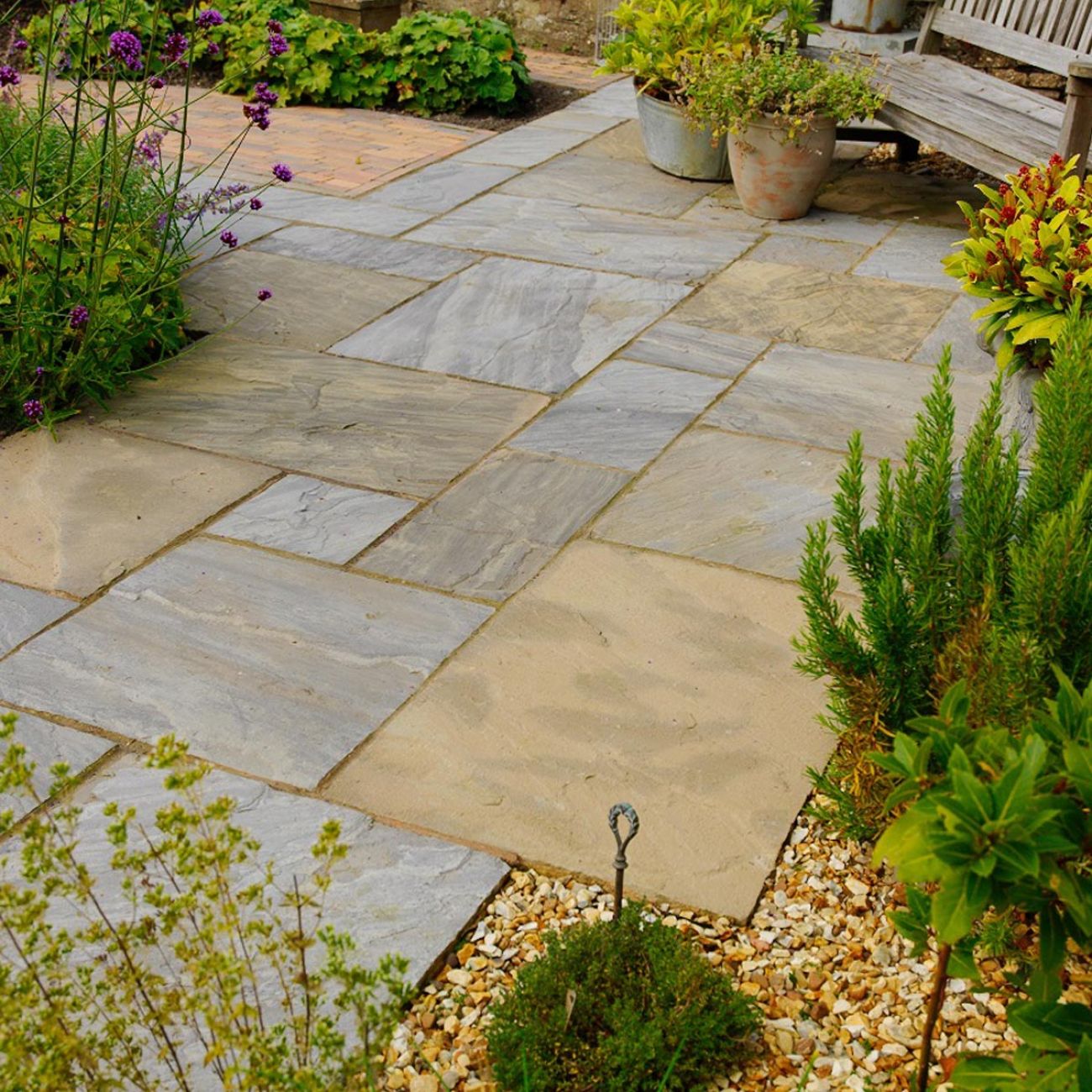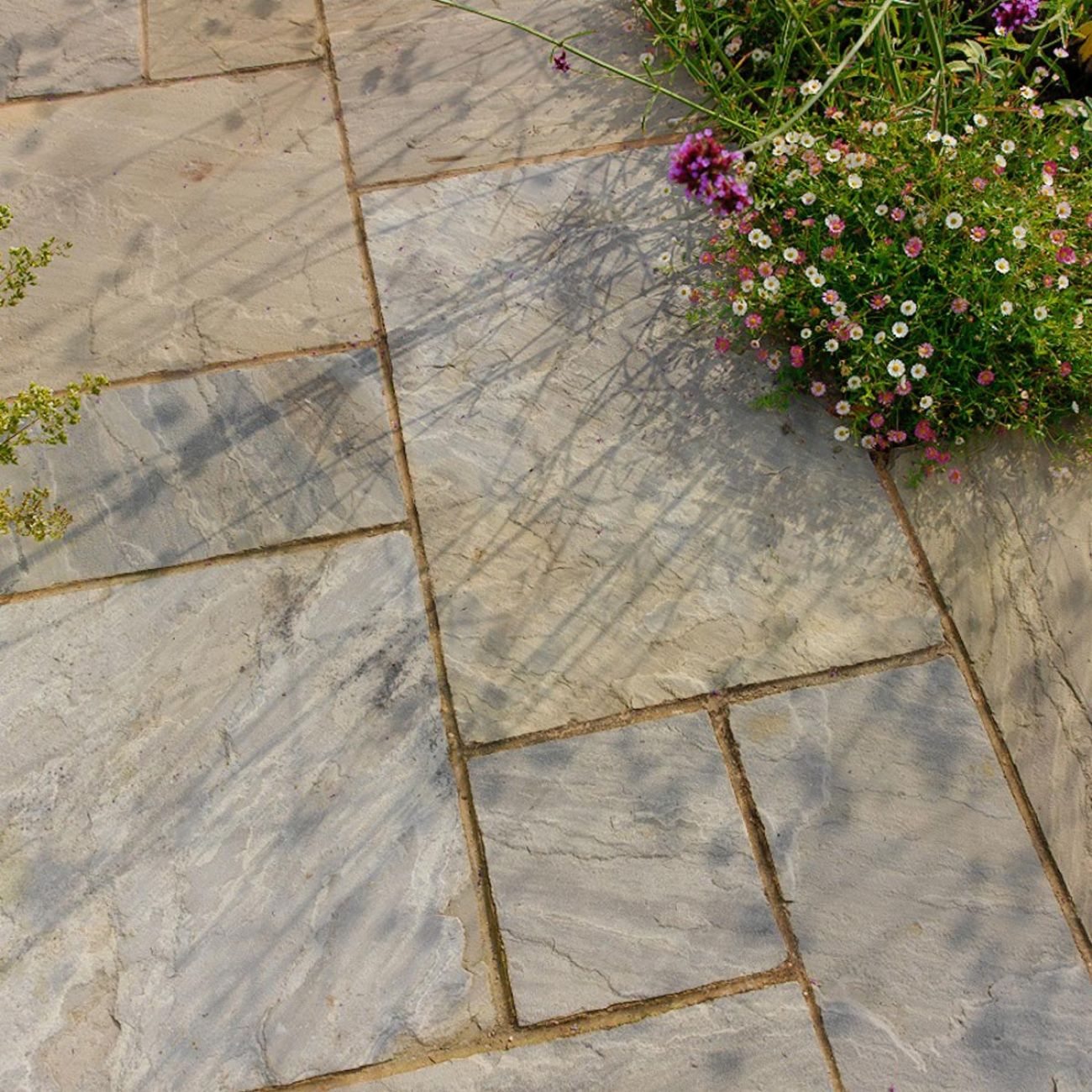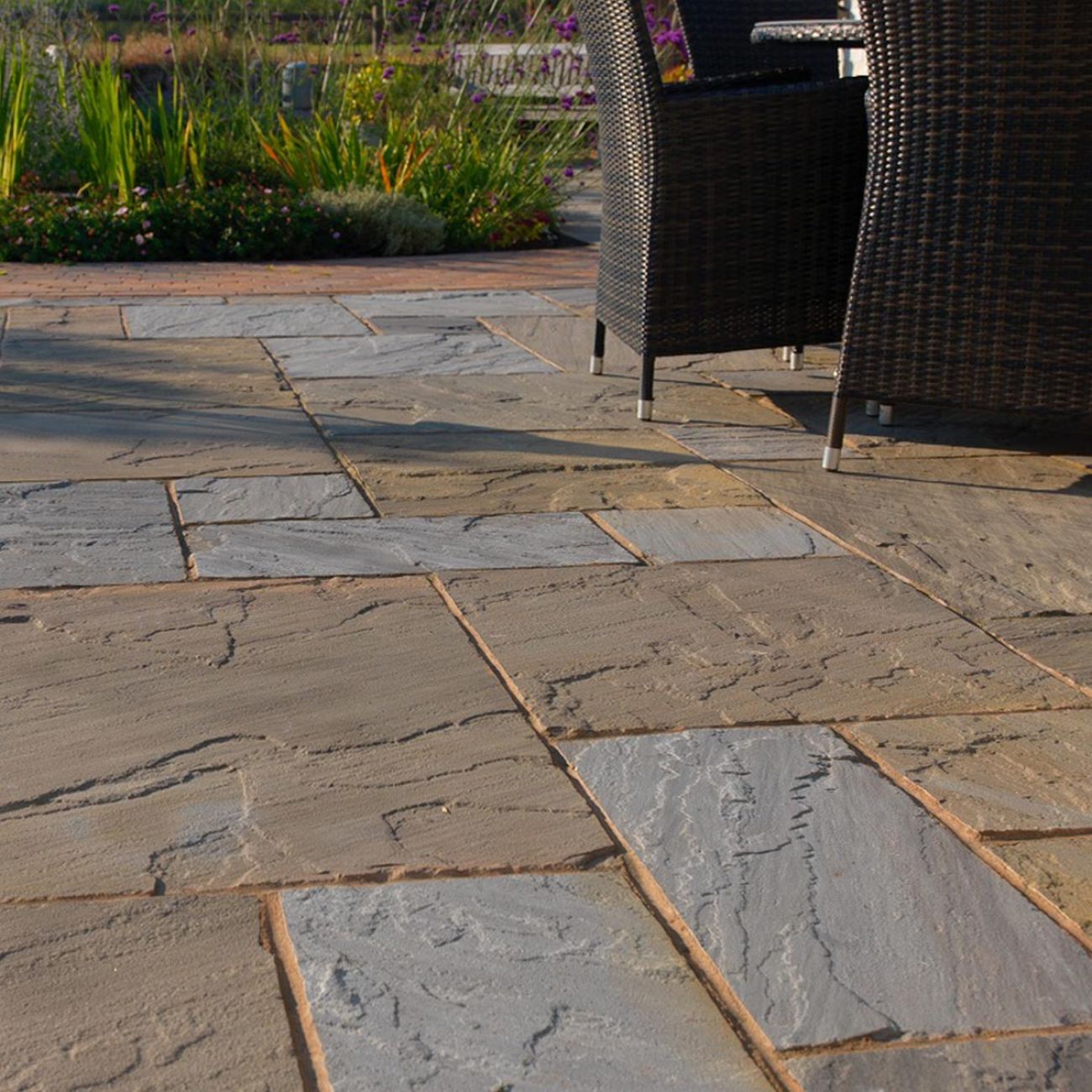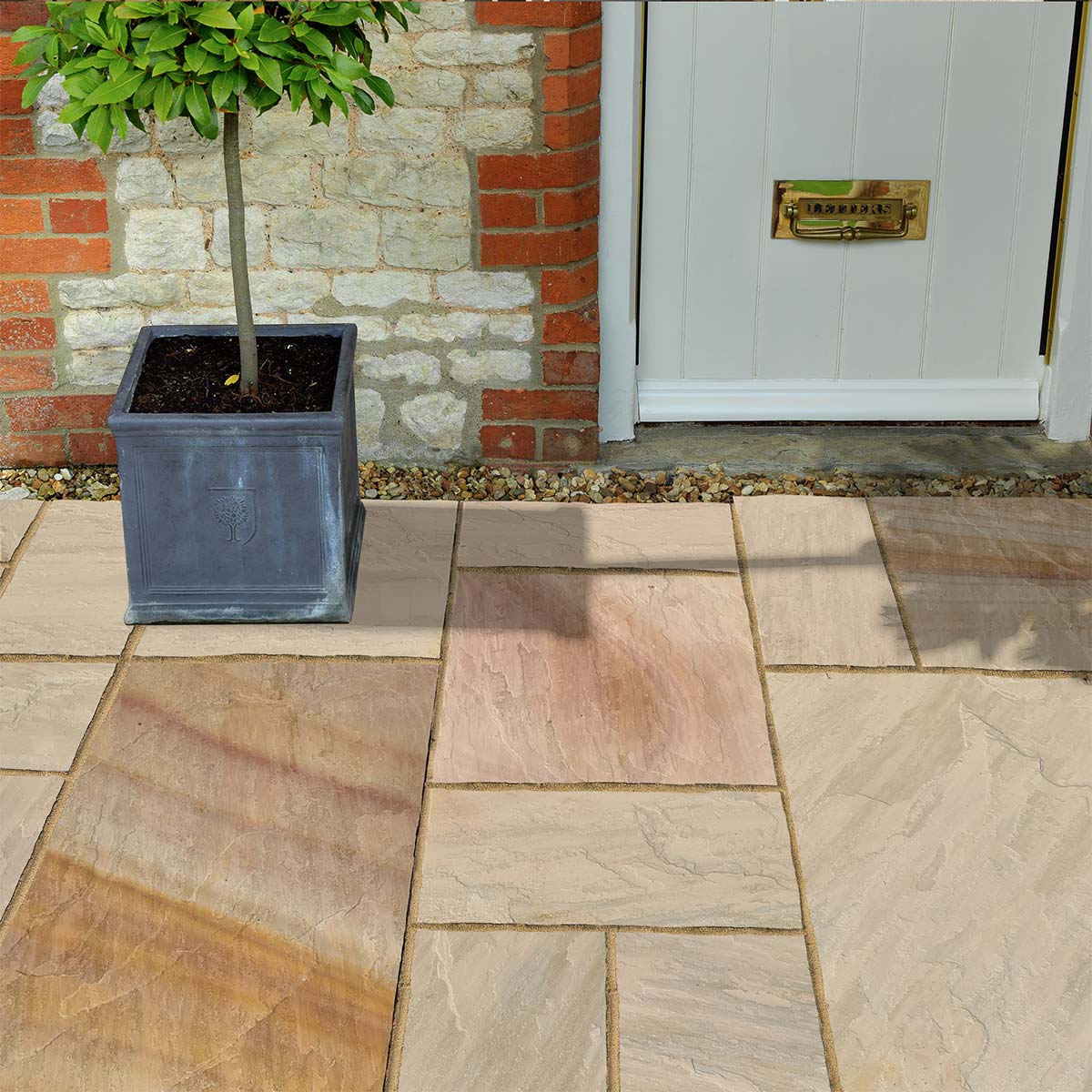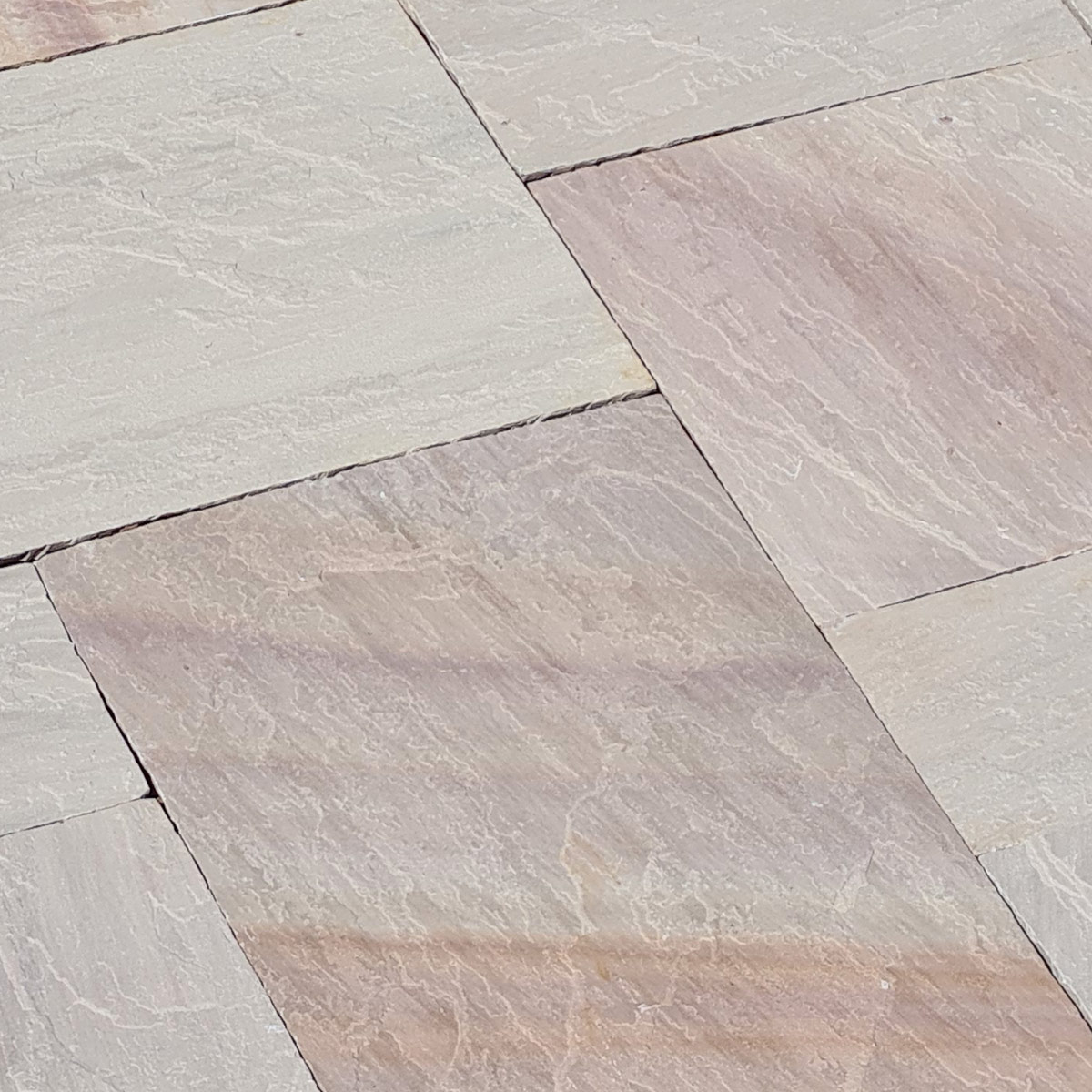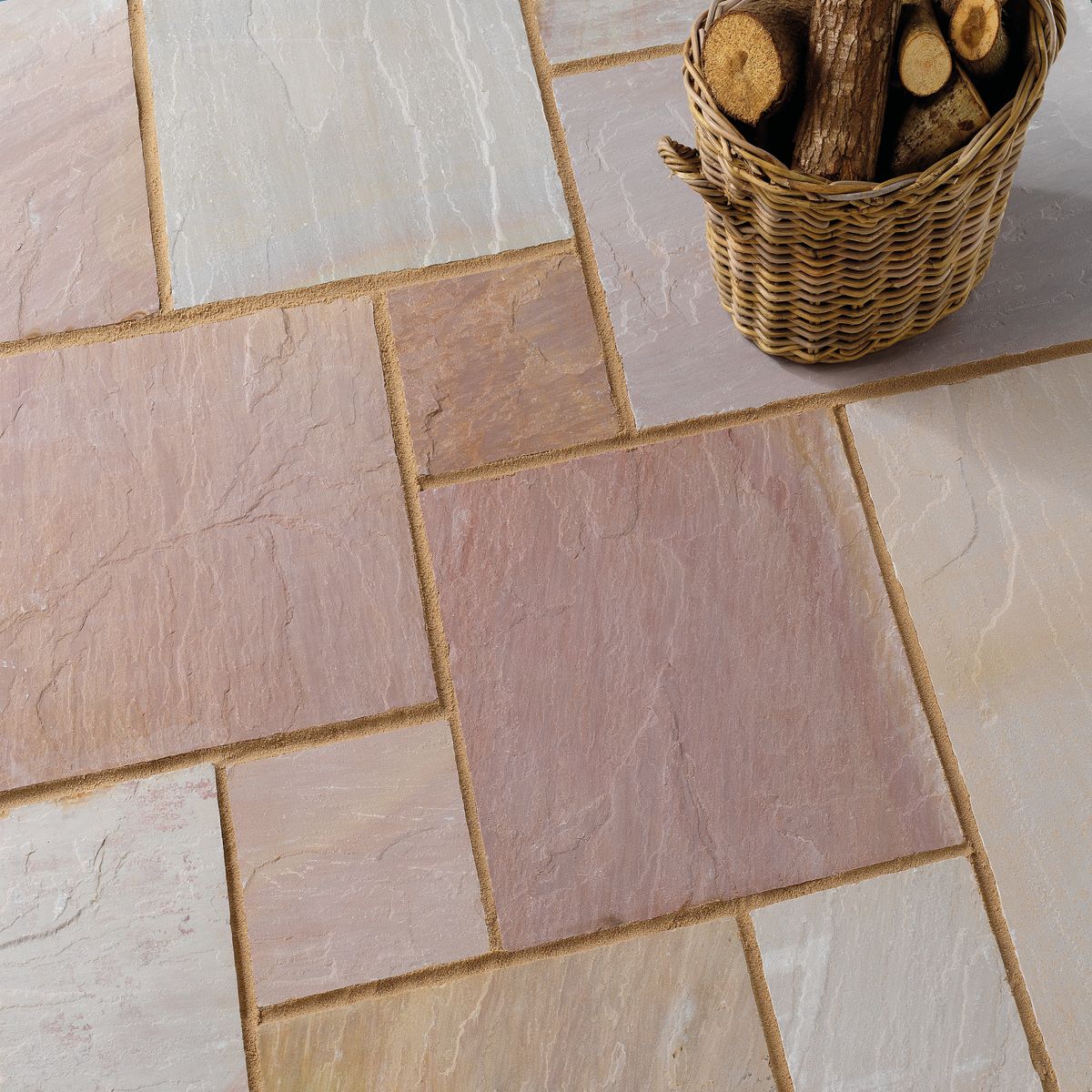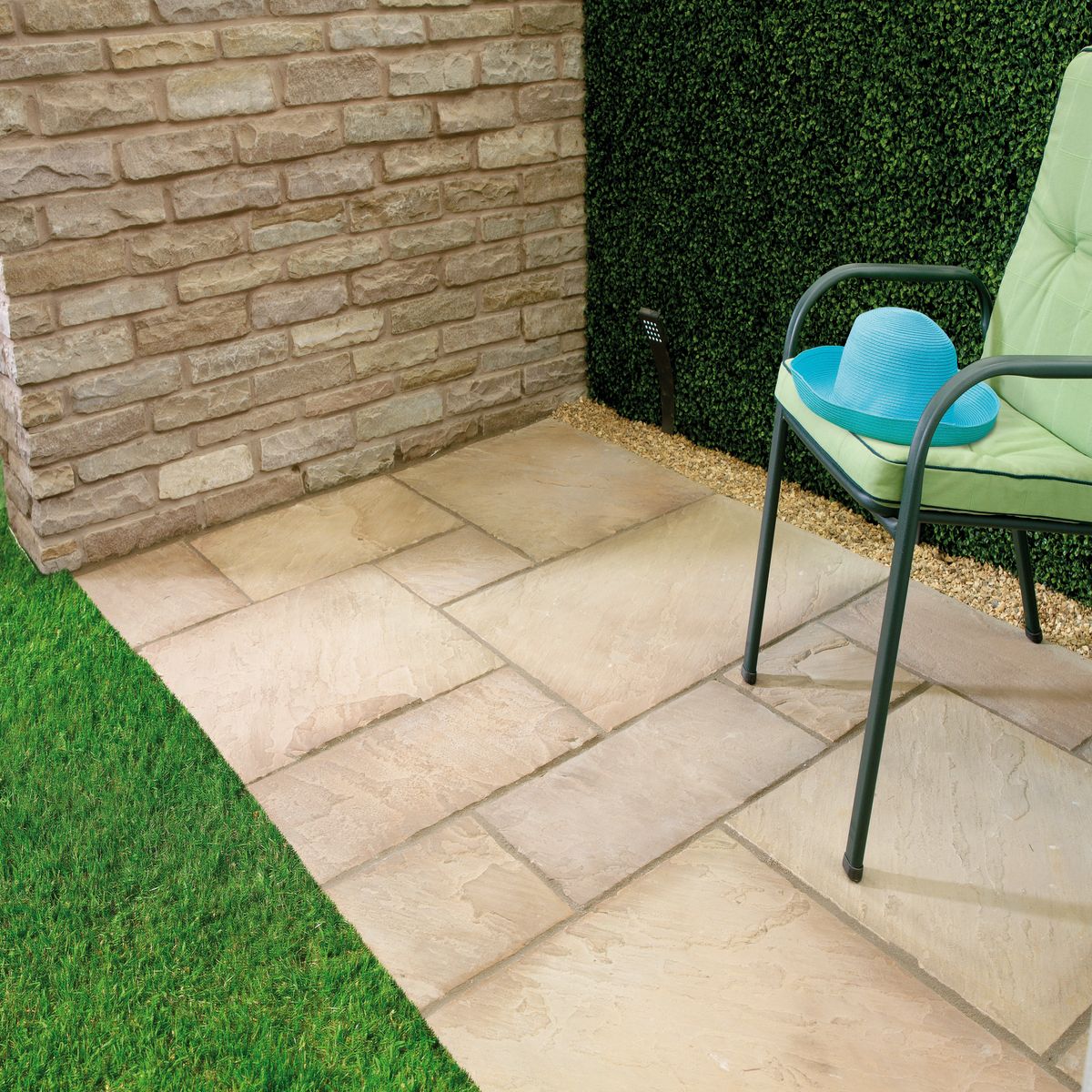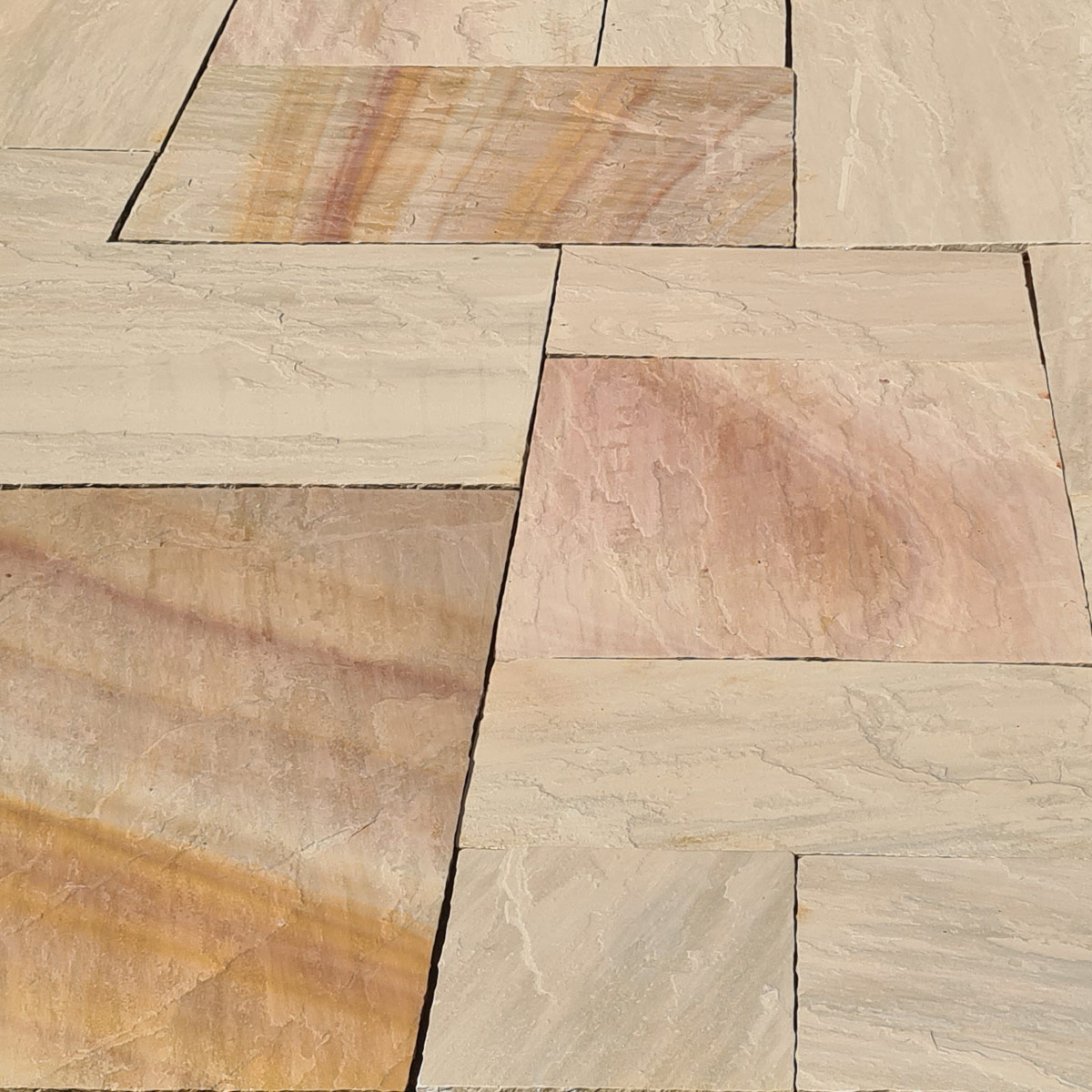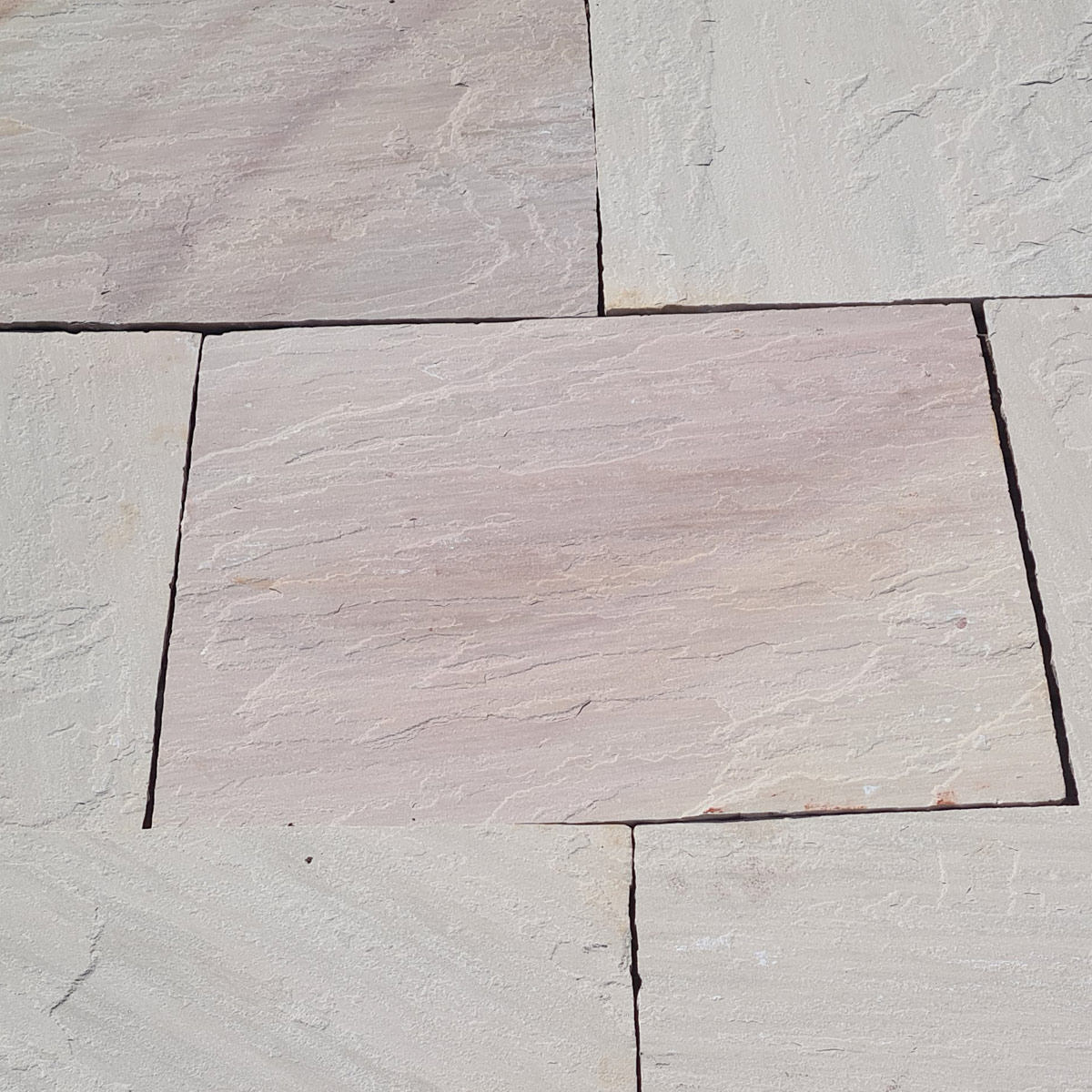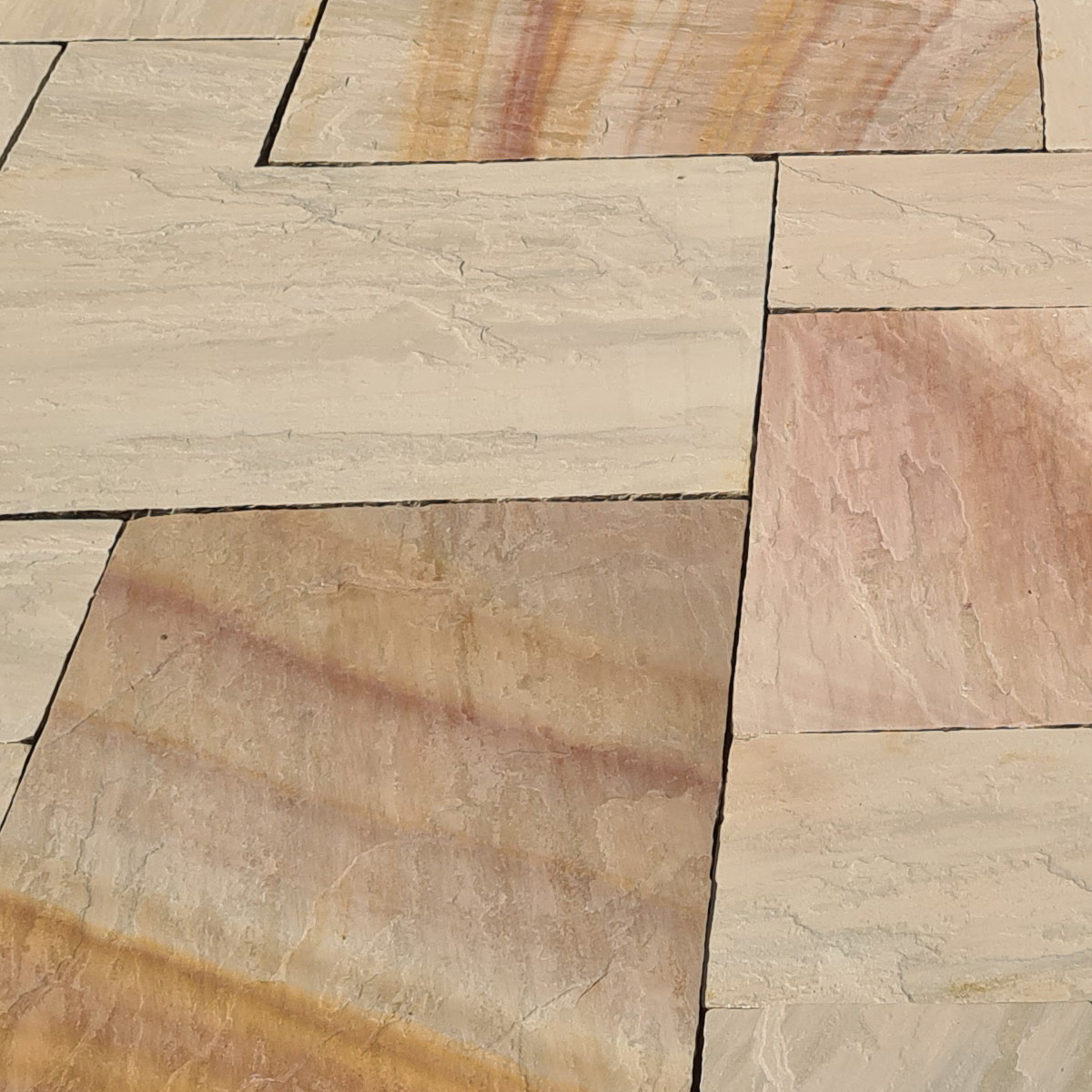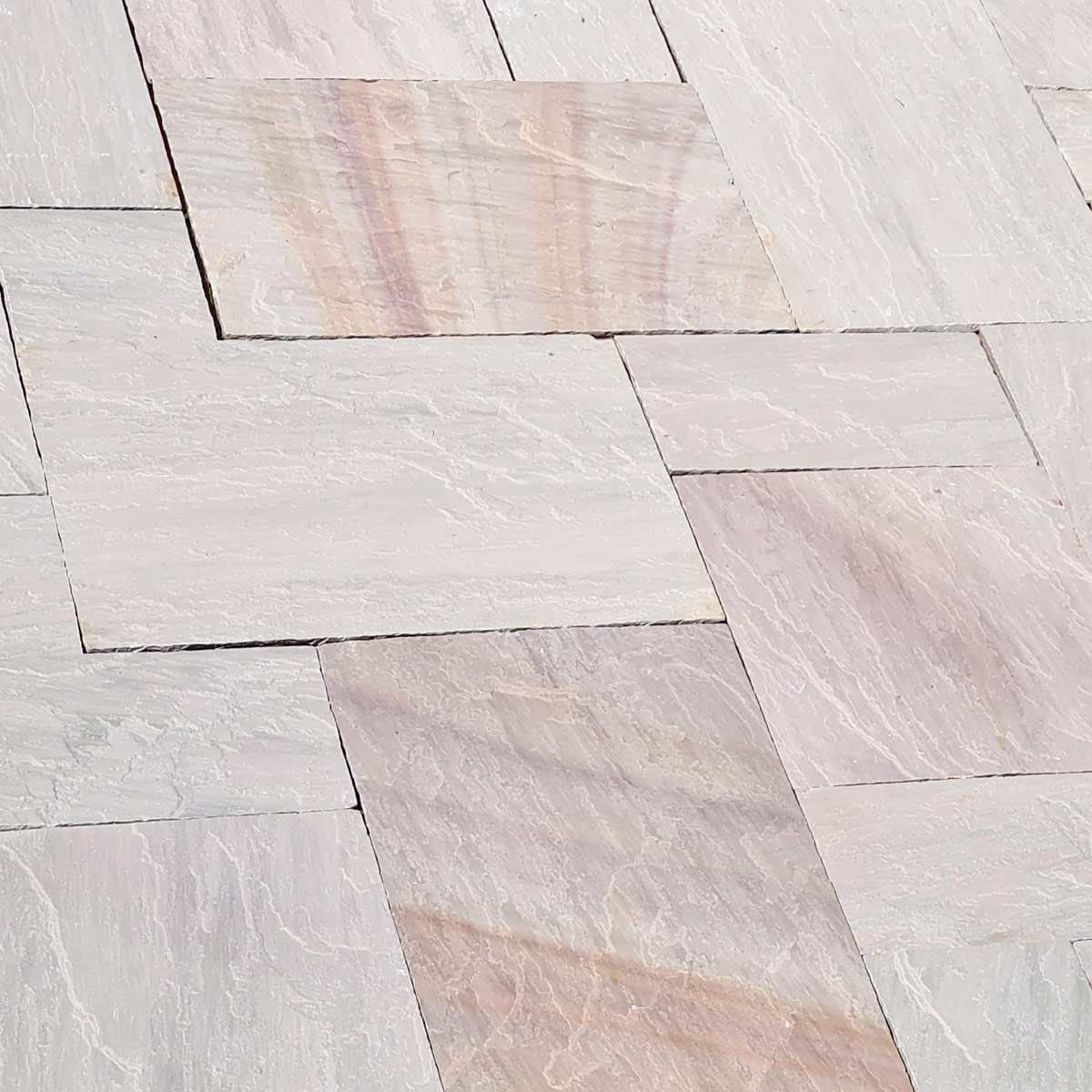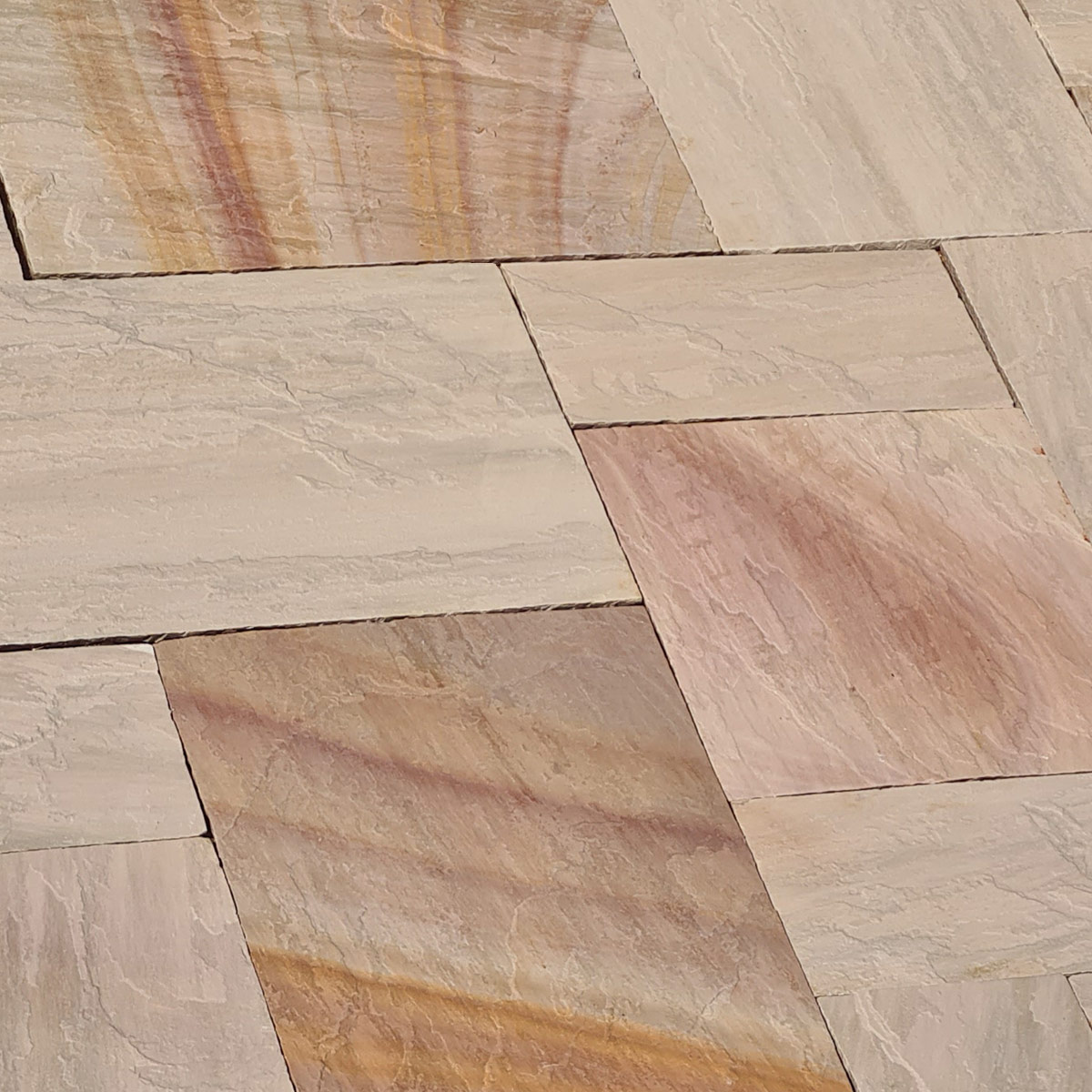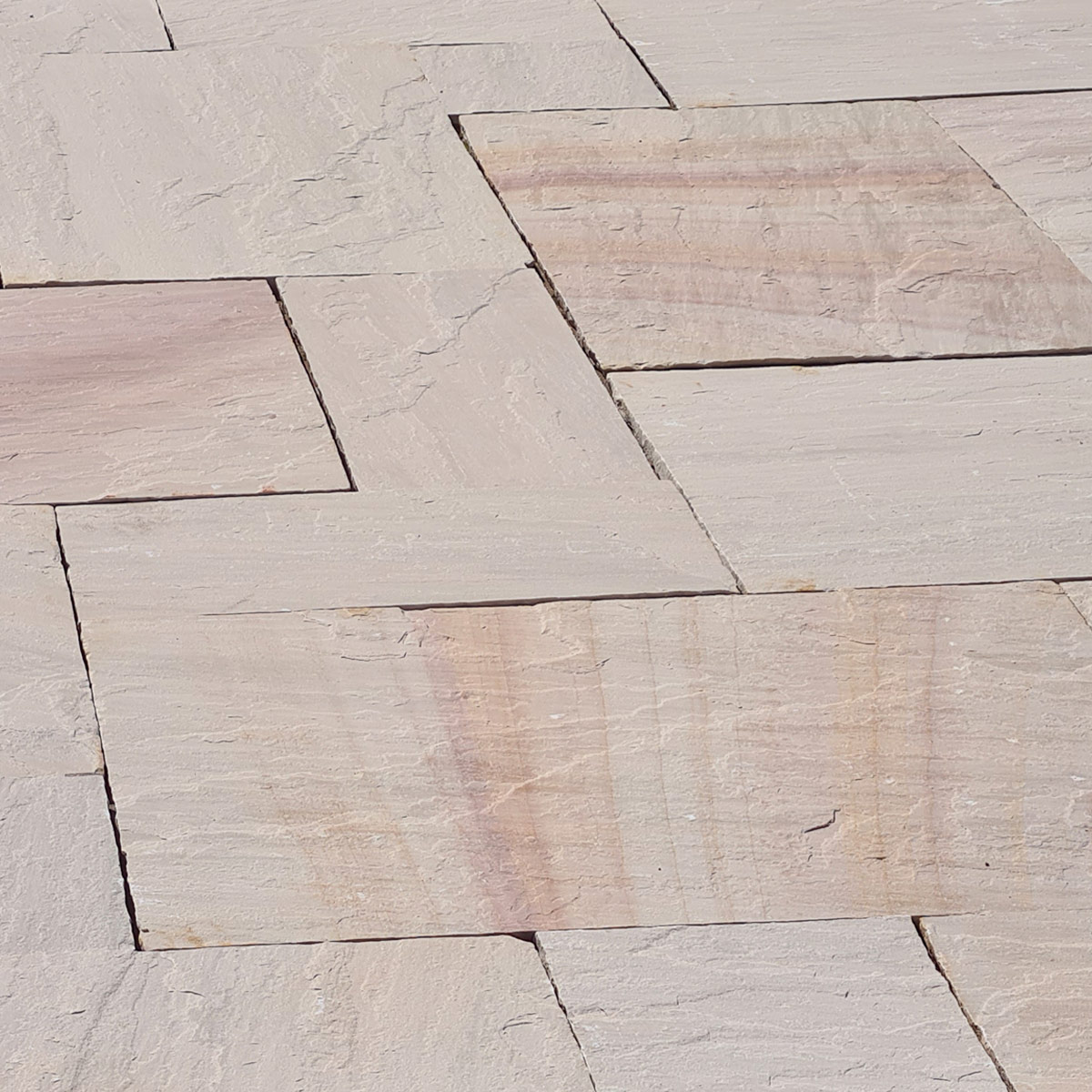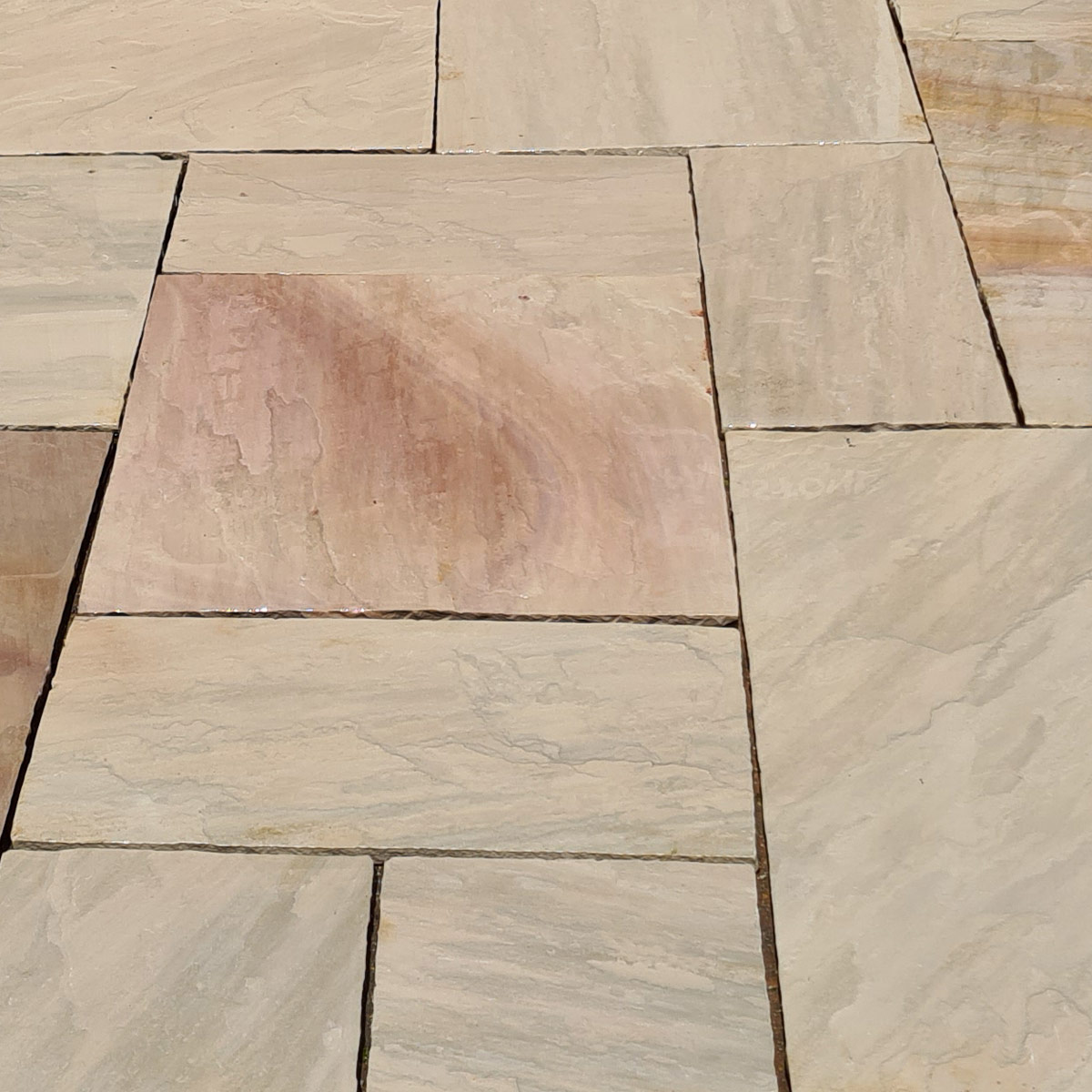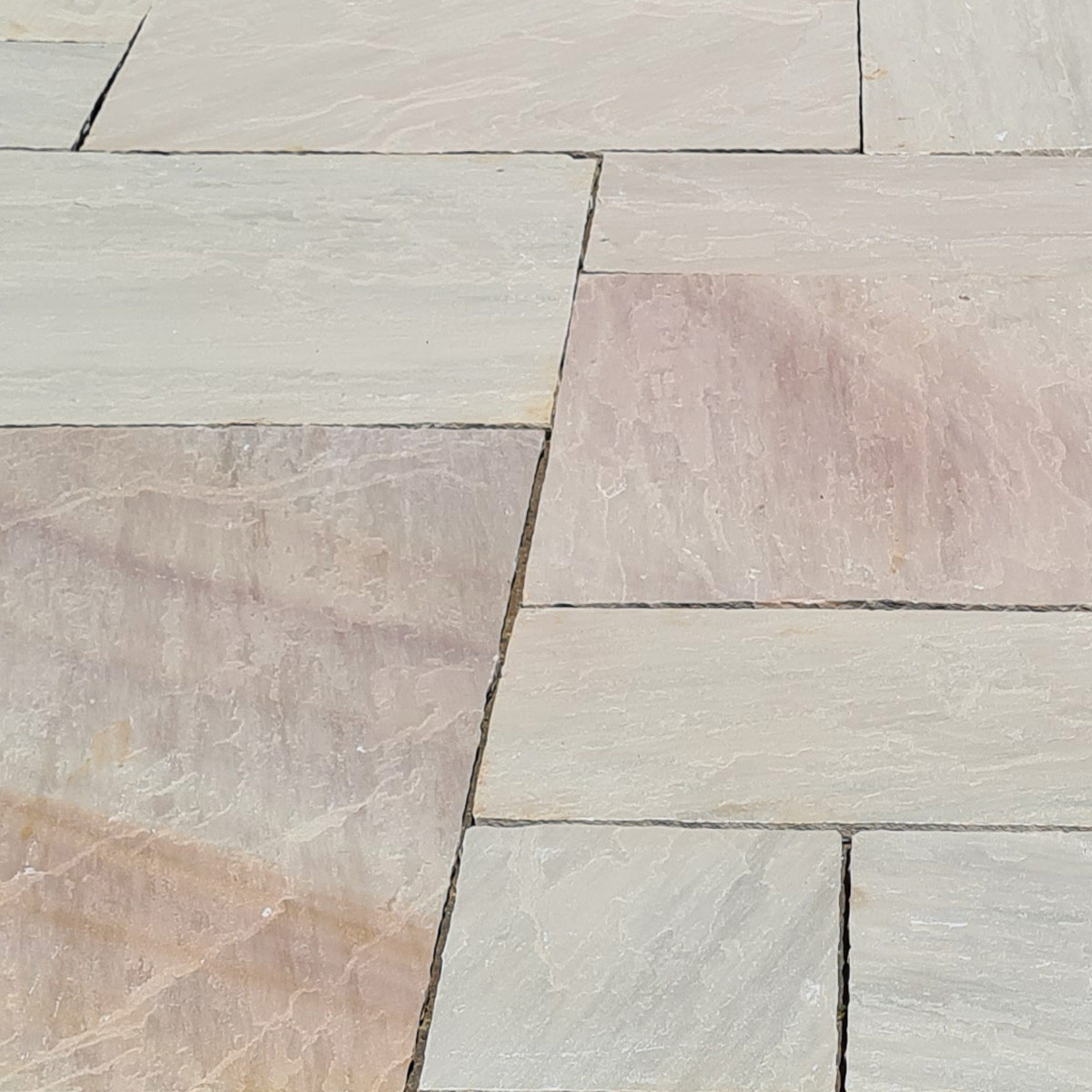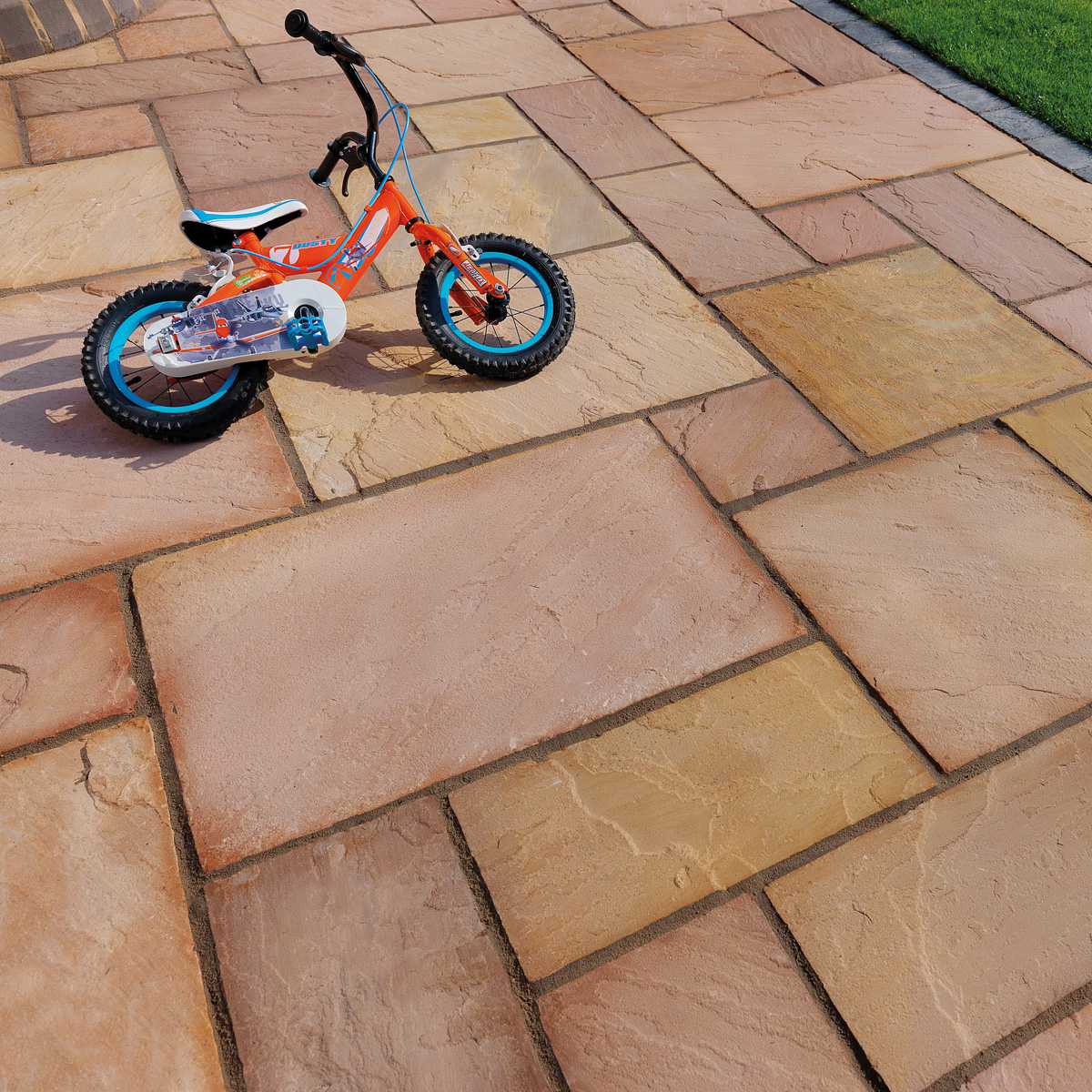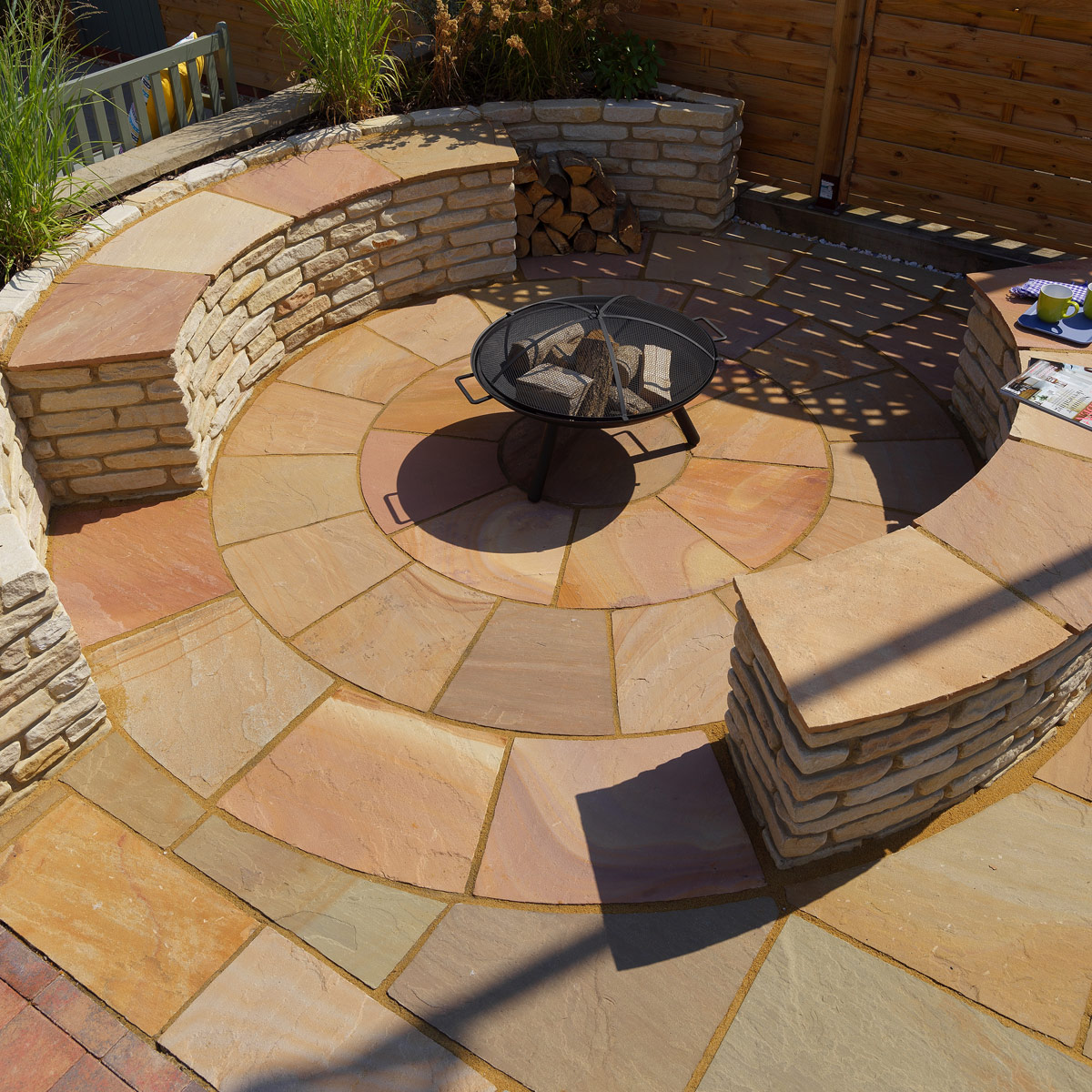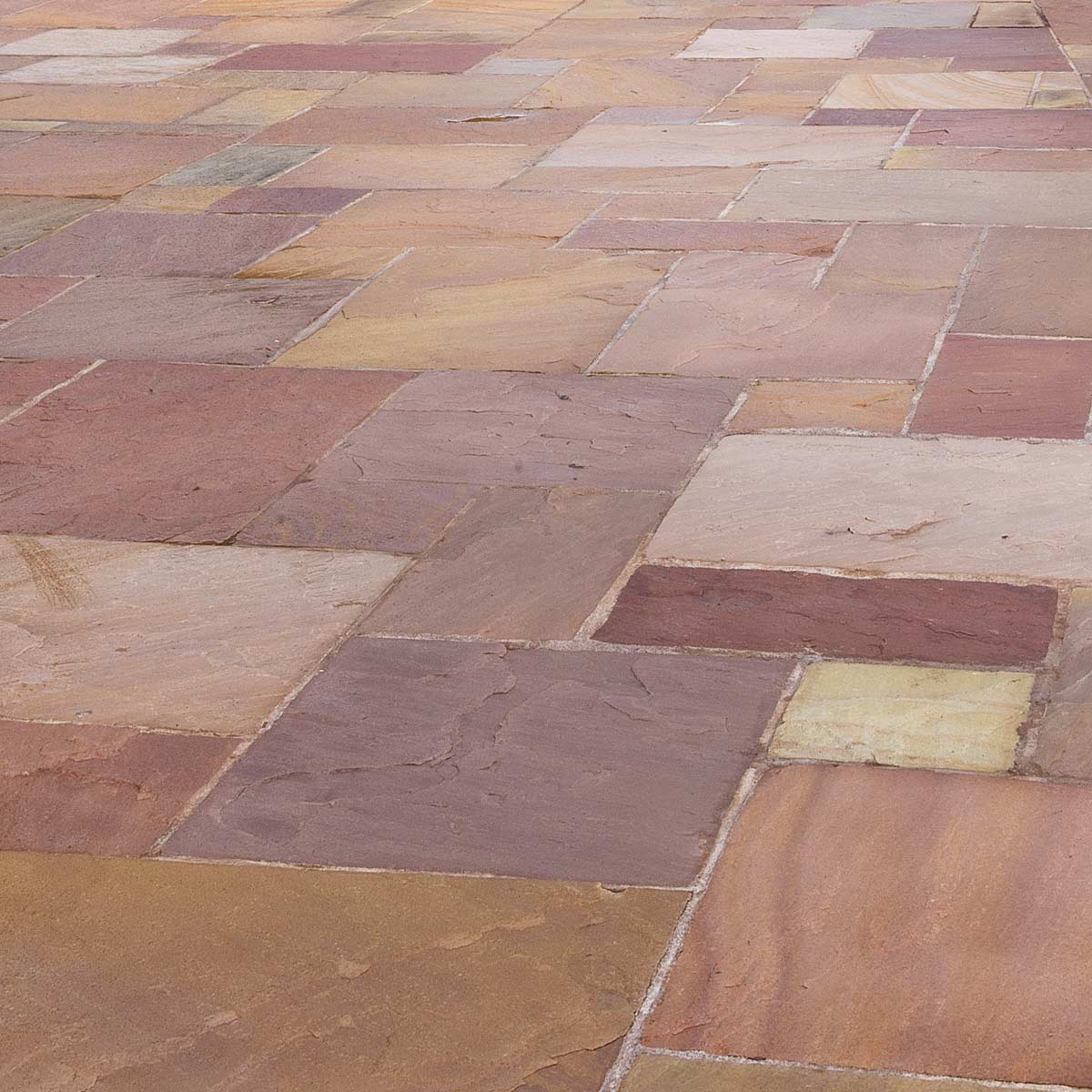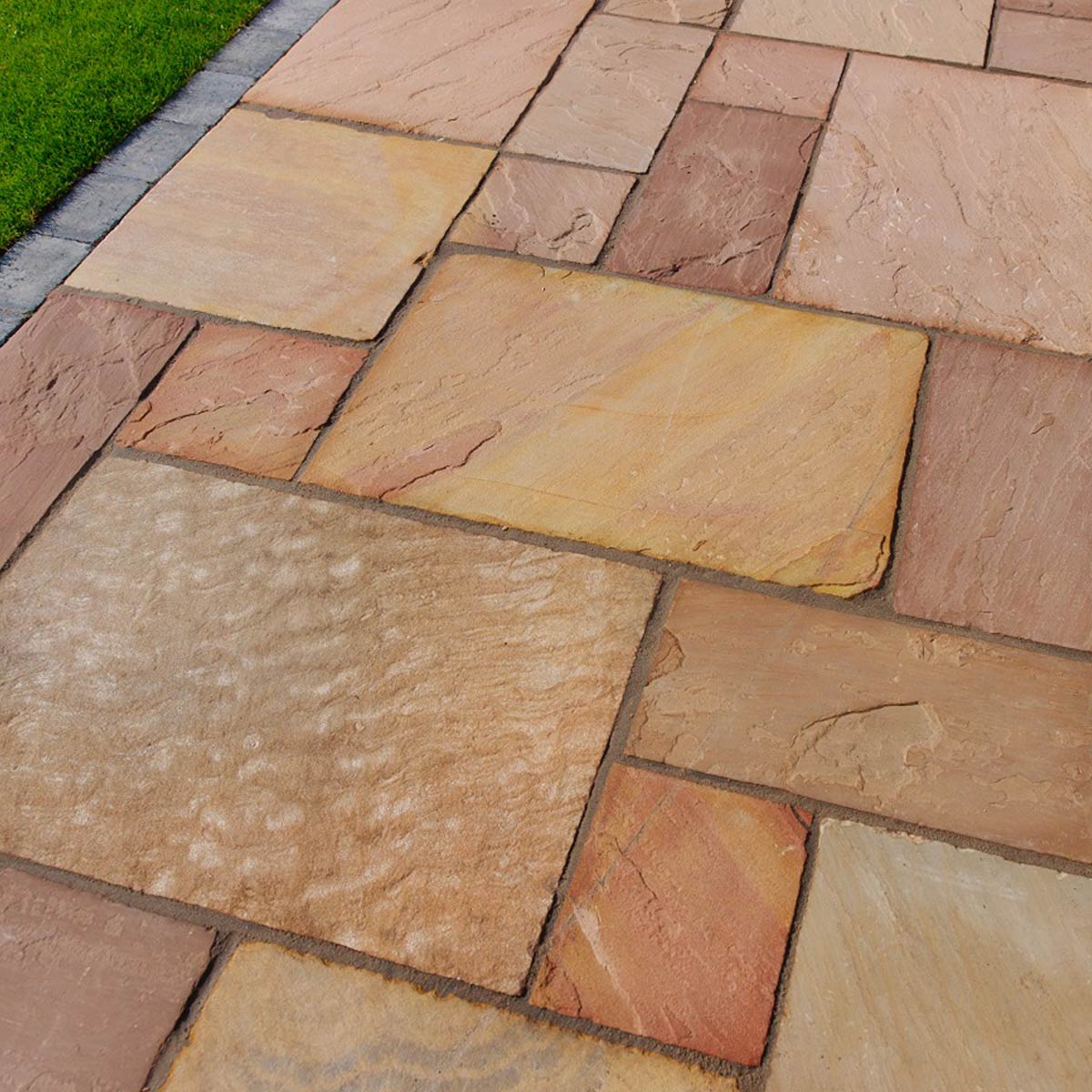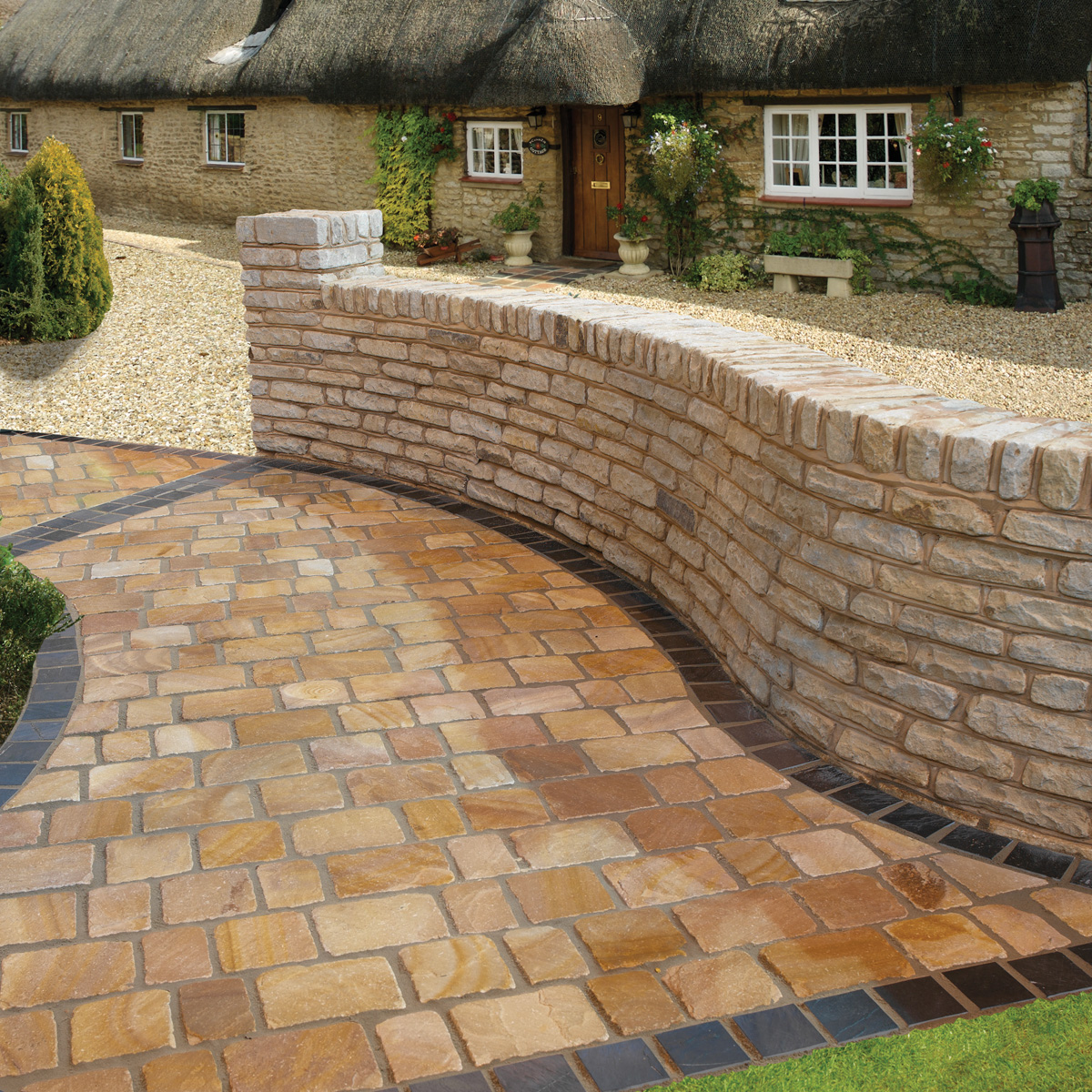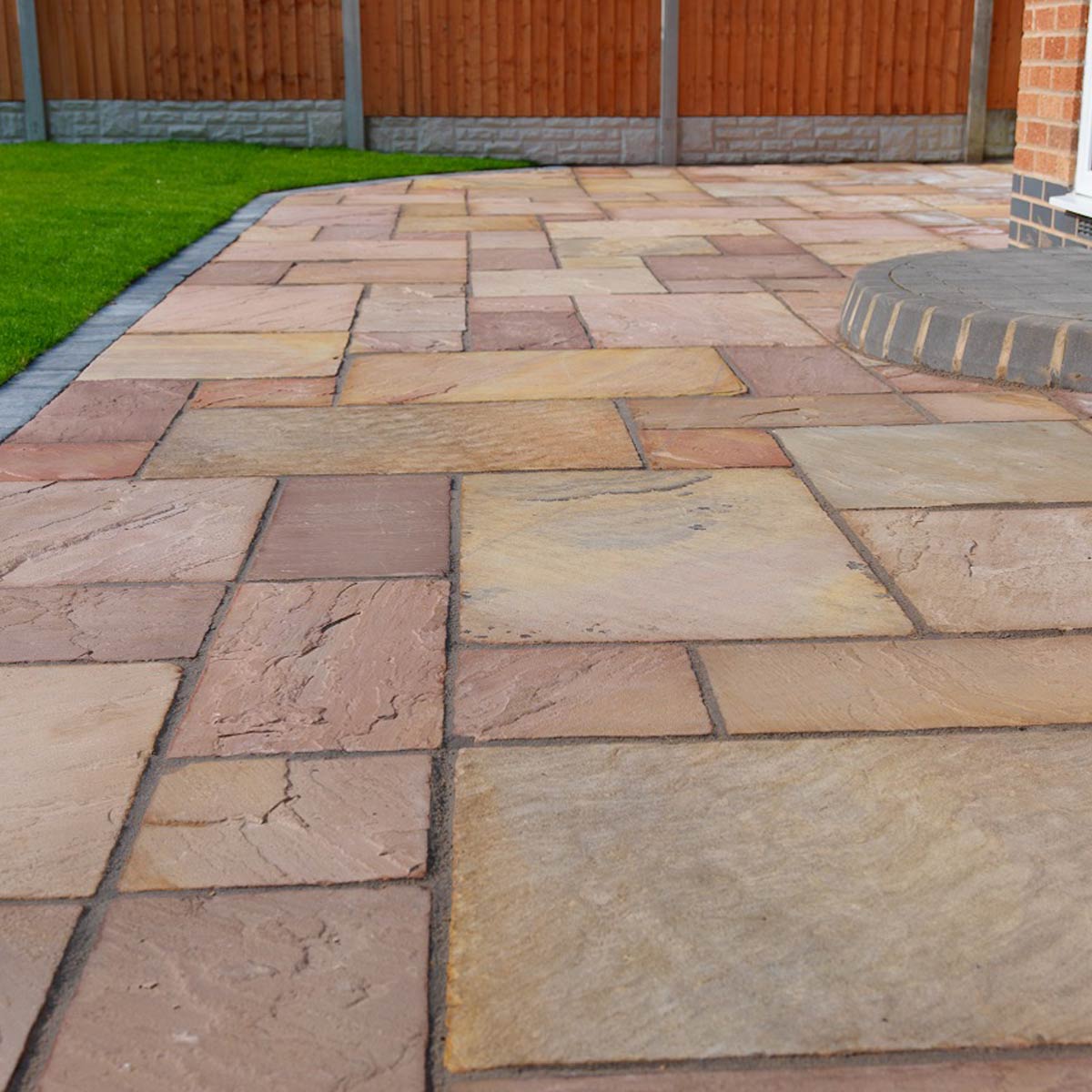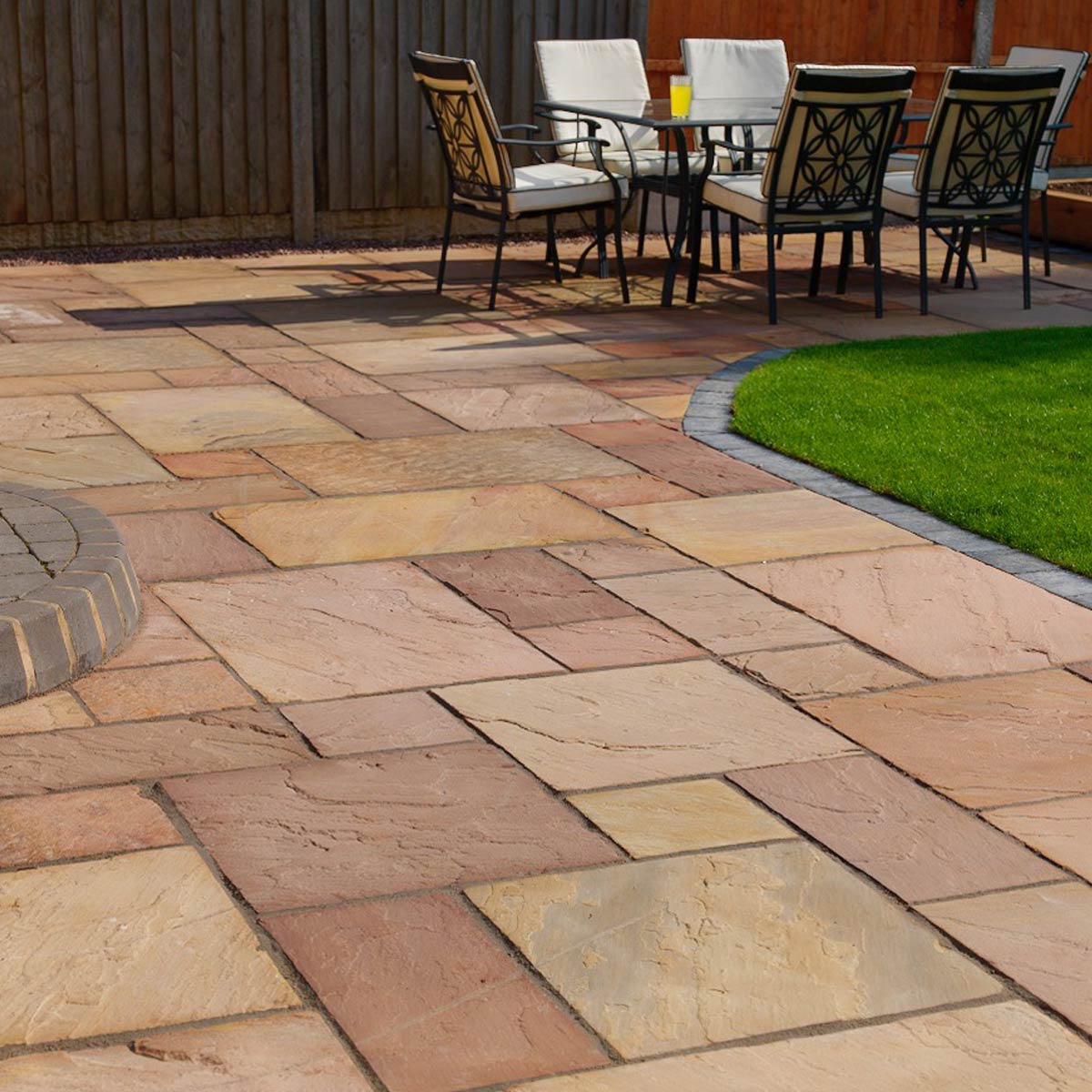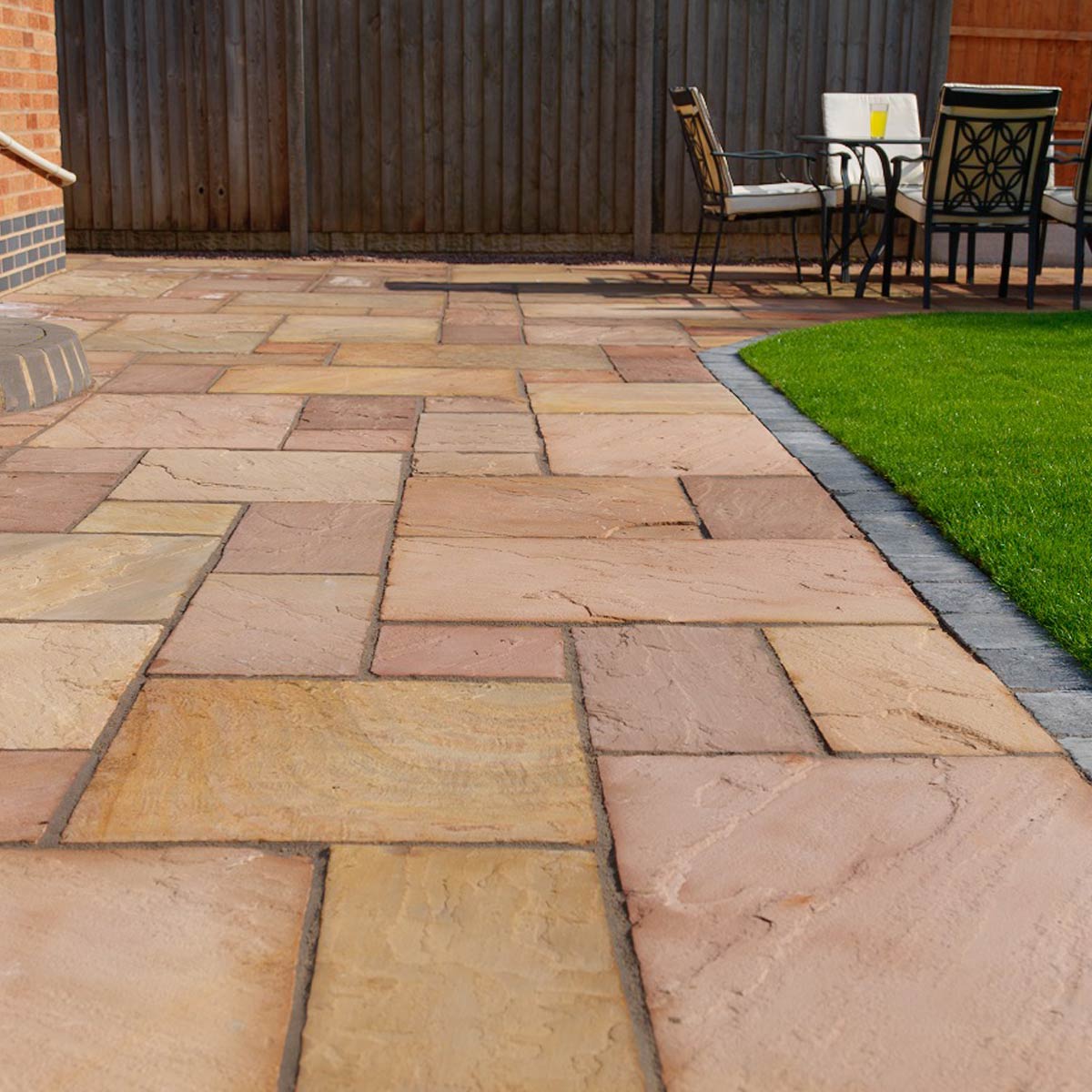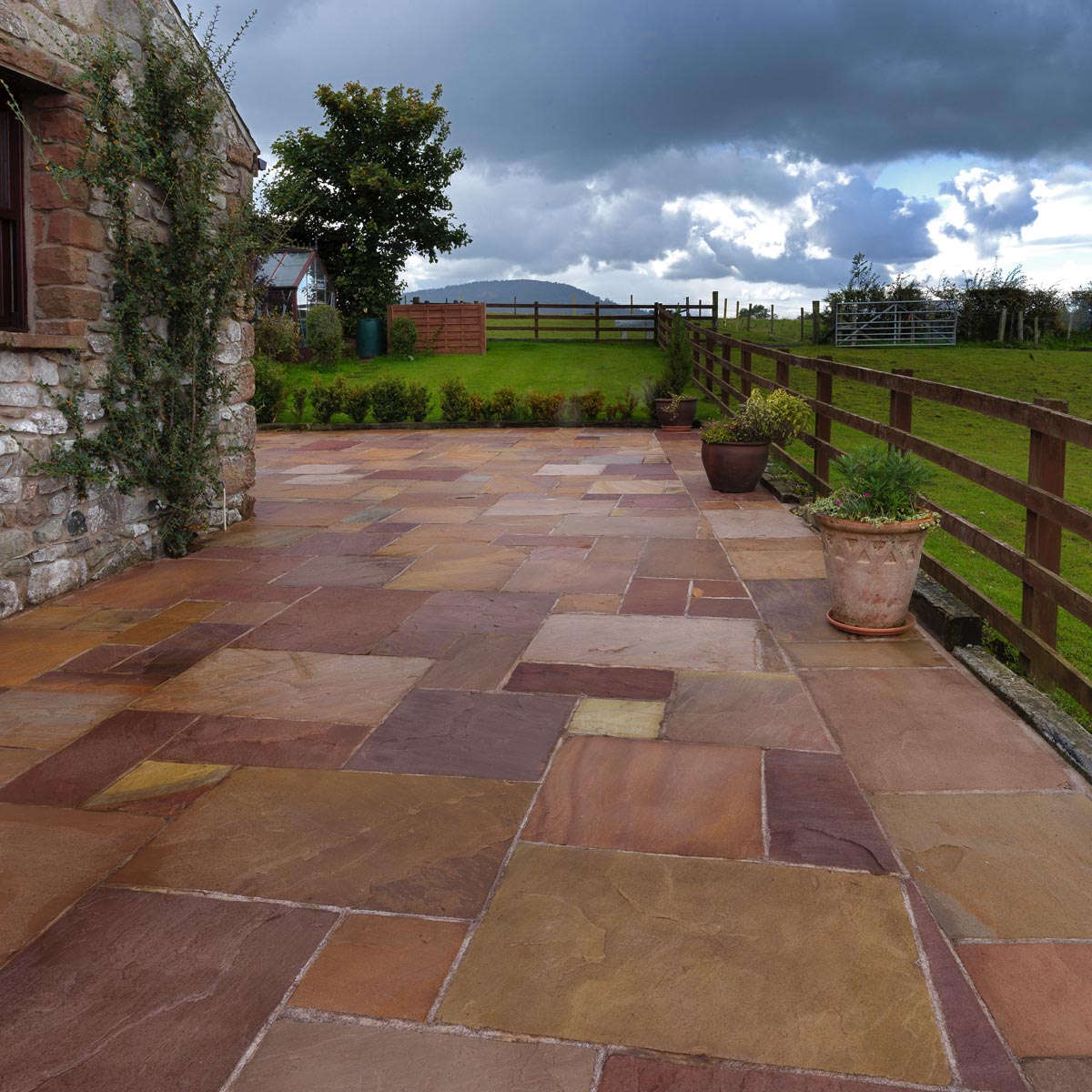In this guide we will explain what sandstone is, why it has so much variety in its colours, and show you examples of Indian sandstone colours for your patio paving.
What is sandstone & why is it good for paving?
Sandstone has been used as paving for millennia. It looks great and offers great natural variety and character within each stone. It is also hard-wearing and long-lasting, but easy enough to quarry, hewn and cut into desired shapes. Sandstone is also readily available and abundant. These factors explain its popularity, both present and past, and why it is so often used in garden design and landscaping.
Sandstone is a sedimentary rock, and is one of the most common on Earth. It is formed on ocean floors, sea and lake beds, where sands, silts and other clastic materials settle in the water. Over time, gravity, the pressure of the water above and often chemical bonding between the particles, start to fuse these sedimentary deposits together into rock (creating sandstone).
Why are there so many colours of sandstone?
Because sandstone is formed from deposits of sand and sediments, its colour can vary widely. The colour will depend on what sands, silts and mineral particles were laid down on the ocean bed as it was forming.
So this means that there is a very wide variety of colours from sandstone quarried in different locations. Where black volcanic sands are laid down, one sees black sandstone. Where golden sands are laid down, one sees gold and buff sandstone.
The nature of the depositing of materials also means that sandstone, from one specific location, will often have colour variation in its stone. Sometimes, these can be seen in blooms or cloud-like hues in contrasting colours. In other cases, the colour variation can be seen as stripes, waves or striations. You can also find fossils embedded directly in the sandstone, with ferns and ammonites being common examples.
Patio Paving Sandstone Colours
Let’s take a look at the groups of Indian sandstone colours available for your patio paving (and landscaping elements, such as edging, walling and coping).
Grey Indian Sandstone (Kandla Grey)
Kandla Grey Indian Sandstone
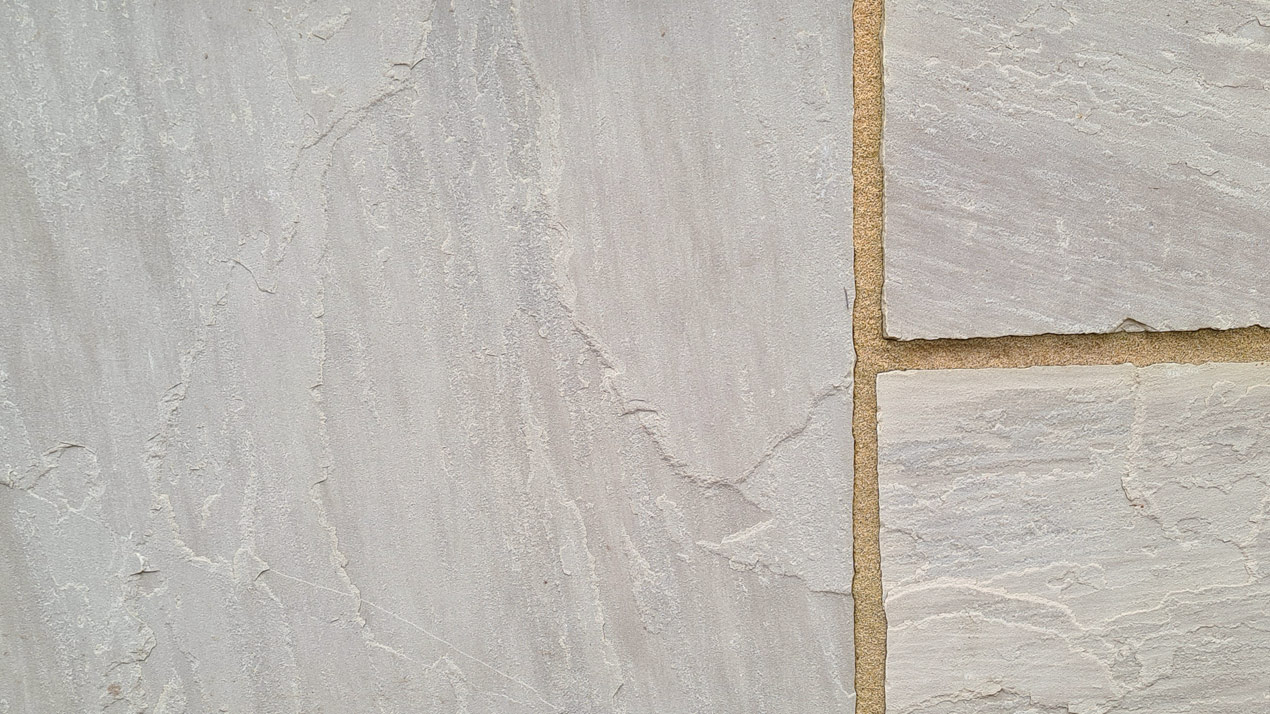
Kandla Grey Indian Sandstone is a light grey stone with silvery highlights and mid-grey hues. Some, stones will be darker, but generally the overall blend appears like a dove grey.
- Dry Appearance: Light Grey / Dove Grey
- Wet Appearance: Mid-Grey / Battleship Grey
Autumn Brown Indian Sandstone (Raj Blend)
Raj Blend Indian Sandstone
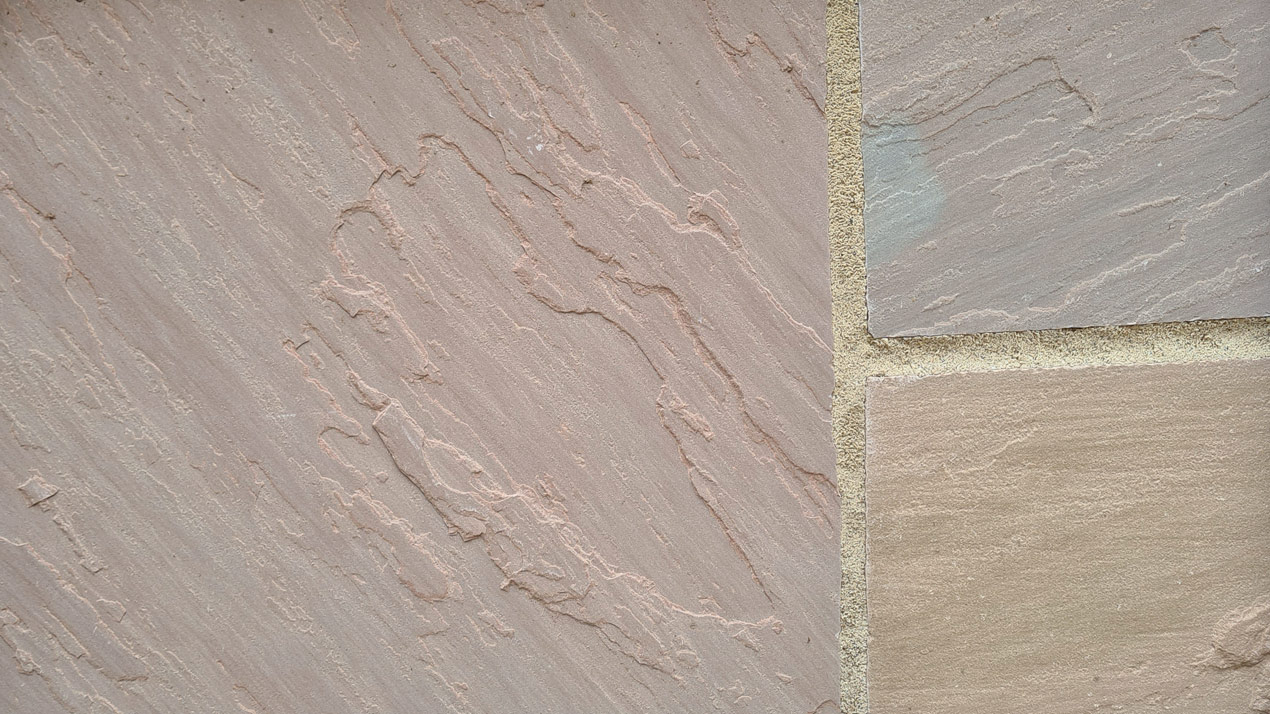
Raj Blend / Autumn Blend Indian sandstone is a mix of rosy browns, tans and browny-grey stones. It provides a nice neutral brown palette that works well with a variety of property types.
- Dry Appearance: Rosy Brown, Cappuccino, Light Grey
- Wet Appearance: Brown, Grey, Umber, Sienna
Gold / Buff Indian Sandstone
Buff Indian Sandstone
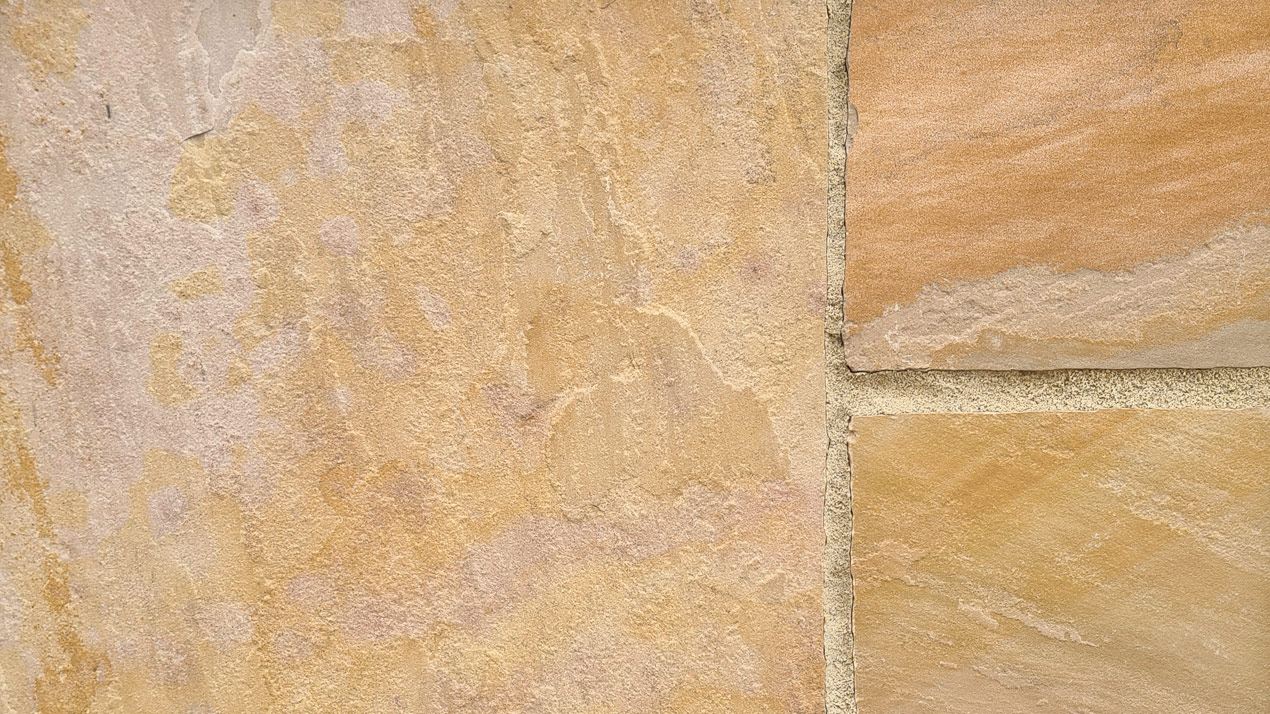
Buff Indian sandstone is a blend of sandy gold, dark gold, honey, tan, ochre, beige and khaki blend of stones. Buff stones will often incorporate different hues and natural variations that gently contrast each other, so each stone has its own unique character.
- Dry Appearance: Buff gold, honey gold, dark gold, beige, tan and ochre
- Wet Appearance: Dark gold, tan, ochre, brown, terracotta
Light Gold / Fossil Indian Sandstone
Golden Fossil Indian Sandstone
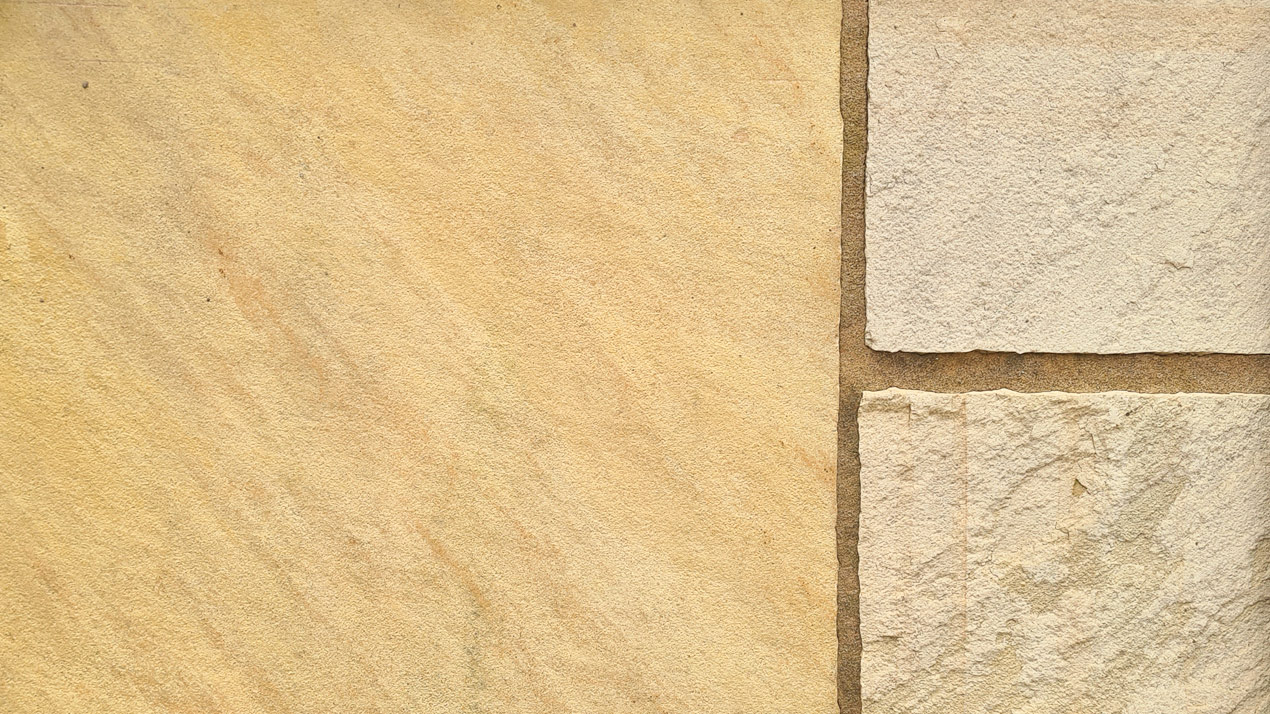
Fossil Indian Sandstone is a light gold, wheat, cream, butter, mustard and honey blend of stones. The stone has accent hues, blooms, waves and striations in contrasting darker tones such as tan, ochre and sienna. This sandstone also commonly incorporates fossils (ferns and ammonites being common).
- Dry Appearance: Light gold, honey and cream with darker patterns and hues
- Wet Appearance: Gold, butter, honey and mustard
Black Indian Sandstone
Old Black Indian Sandstone
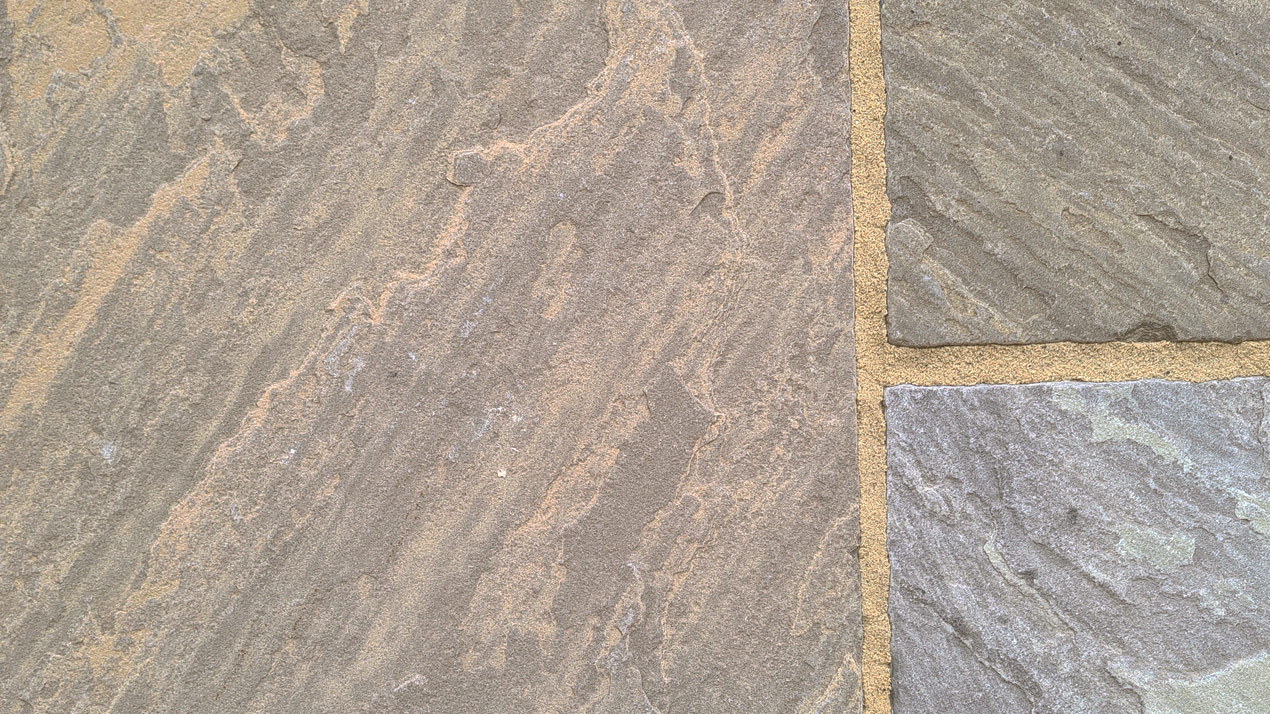
Black Indian Sandstone is a mix of dark greys, charcoal and anthracite colouring with dark gold hues and accents.
- Dry Appearance: Dark grey, black accents and golden undertones
- Wet Appearance: Black and dark grey, with dark gold accent colouring.
Cream / Pink Indian Sandstone (Rippon)
Rippon Indian Sandstone
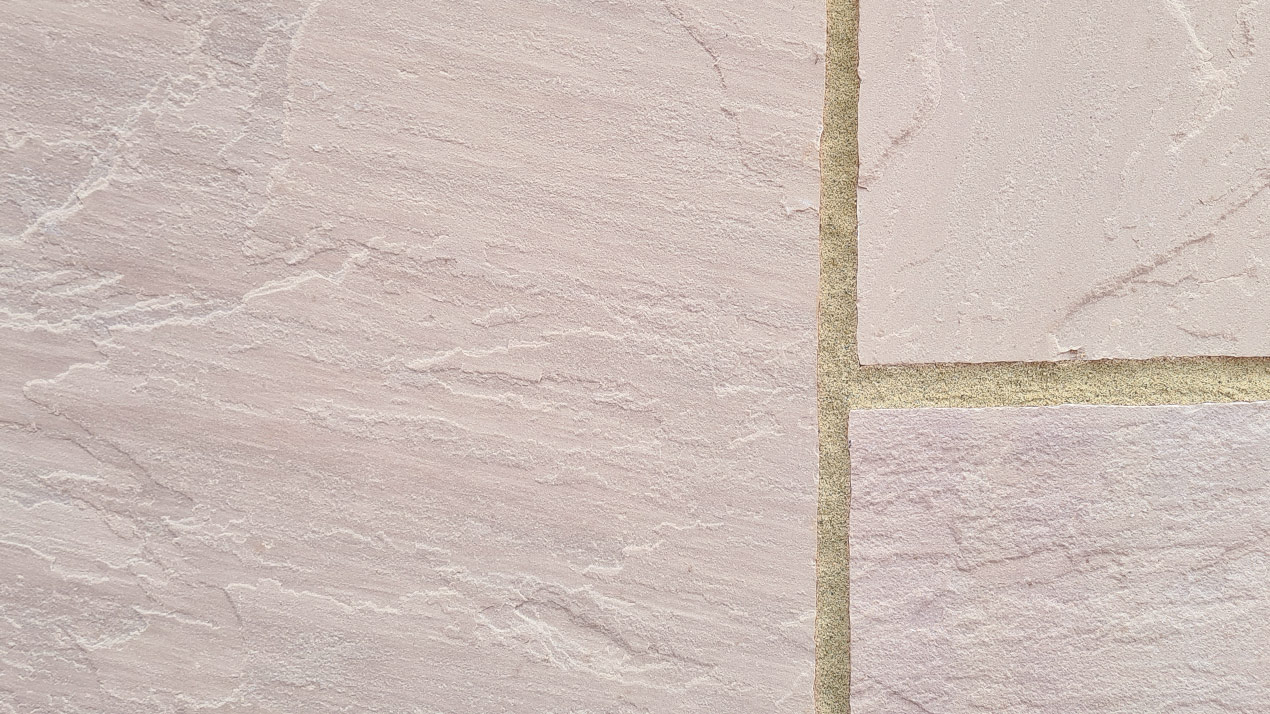
Rippon Indian Sandstone is a creamy / light beige colour with pink and rosy accent colours. When dry, it looks flatter, more uniform and subtle. When wet, the pinks and rosy hues come out, and it looks more vibrant and distinct.
- Dry Appearance: Cream, light beige, soft pastel pinks
- Wet Appearance: Wheat, beige, pinks and reds & golds.
Orange / Terracotta Indian Sandstone (Modak)
Modak Indian Sandstone
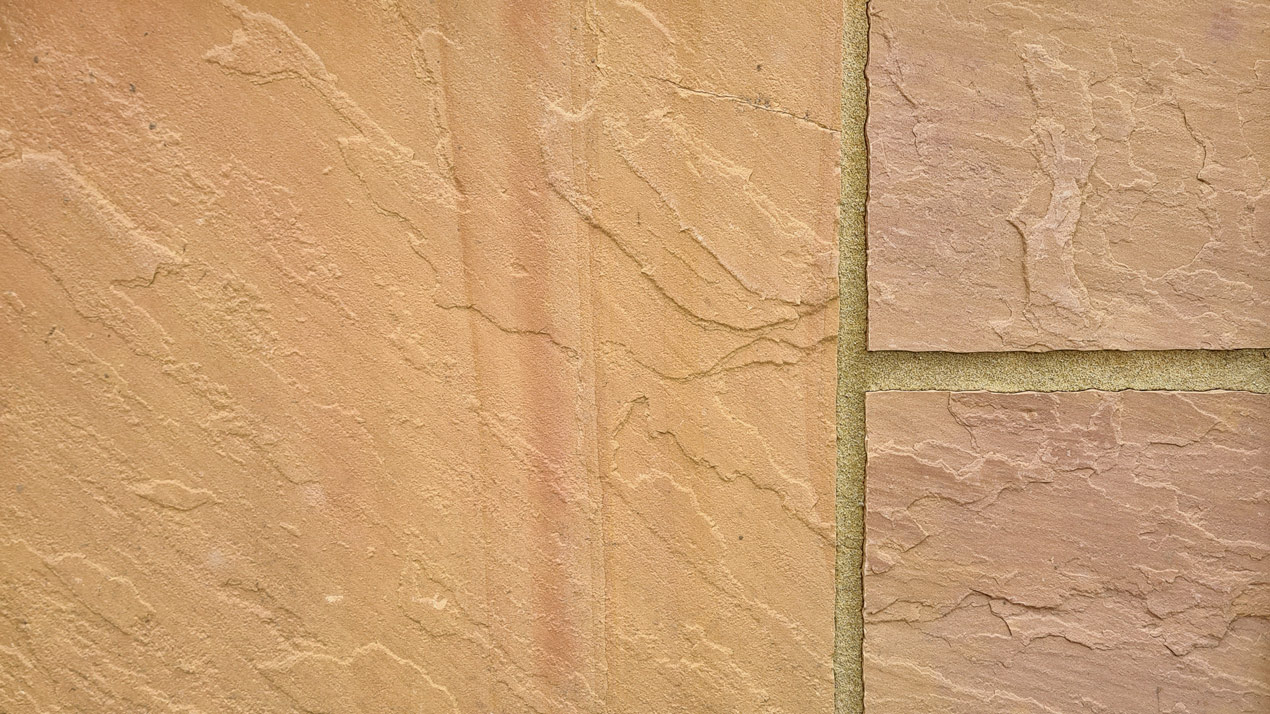
Modak Indian Sandstone is a blend of pinky-orange, terracotta, ochre, tan and brown. It has a warm, vibrant feel and really pops and show this off when wet, when stronger oranges, pinks and reds appear.
- Dry Appearance: Gold, Orange, Pink, Apricot, Tan and Ochre
- Wet Appearance: Dark Gold, Terracotta, Red, Bronze & Brown.
Conclusion
As you can see, there is a wide choice of Indian sandstone colours available for paving, walling, coping and edging.
To see additional colours and styles of Indian sandstone paving, see our complete range here:
If you need any guidance or advice about these products or anything else, please don’t hesitate to contact us and we will do everything we can to help.

